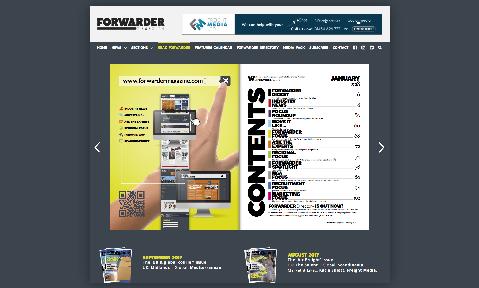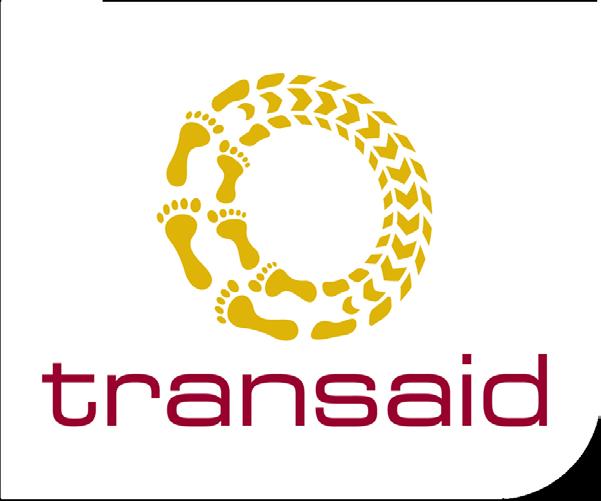FACILITATING FUNKIN GROWTH

A Europa Warehouse case study
ROAD/SEA/AIR...NOW WAREHOUSES
Europa spills the beans on their latest venture
RELIABILITY & PUNCTUALITY
...NNR’s hallmarks in European road freight

MOVE IT LIKE...

FACILITATING FUNKIN GROWTH

A Europa Warehouse case study
ROAD/SEA/AIR...NOW WAREHOUSES
Europa spills the beans on their latest venture
RELIABILITY & PUNCTUALITY
...NNR’s hallmarks in European road freight

MOVE IT LIKE...
C.O.O. OF EUROPA WORLDWIDE GROUP









AIR FREIGHT
If it flies and it's freight, we'll feature it.
SEA FREIGHT
If it floats and it's fr... you get the idea.
ROAD FREIGHT
By far the largest share of cargo transport in the USA.
RAIL FREIGHT
The second stalwart; road's right-hand man.
PROJECT CARGO
Oversized, heavy, high-value or mission-critical stuff.
PORTS & HUBS
Gateways to the wider world.
TECH & DIGITISATION
From data to drones. Welcome to the future.
EXHIBITIONS & EVENTS
From promo to expo, don't risk FOMO.
CUSTOMS & SECURITY
If only COVID had been subject to this...
INDUSTRY SERVICES
Everything from freight forwarding to insurance.

CRISIS RESPONSE
The latest emergency, from money to monkeypox.
RECRUITMENT & TRAINING
Growing, perfecting, and certifiying your business.
MERGERS & ACQUISITIONS
The other way to grow your company.
MEDIA & MARKETING
This is a vital industry. Let's shout about it!
Environment. Fundraising. Charity. The feel-good stuff.






Welcome to issue 82 of FORWARDER. We hope you enjoy Dionne Redpath's interview and feature article in the industry services section, as featured on the cover.

We also hope to see you at our next networking event on 5 October, with , in Heathrow.

A system of transporting goods by aircraft.
Related topics
AOG (aircraft on ground)
OBC (on-board couriers)

Air charter
Sponsored by
Silk Way West Airlines, the leading cargo airline in the Caspian and Central Asian region, expands its US network by adding weekly flights to and from Los Angeles International Airport, one of the world’s largest cargo gateways, handling millions of tons of freight annually.
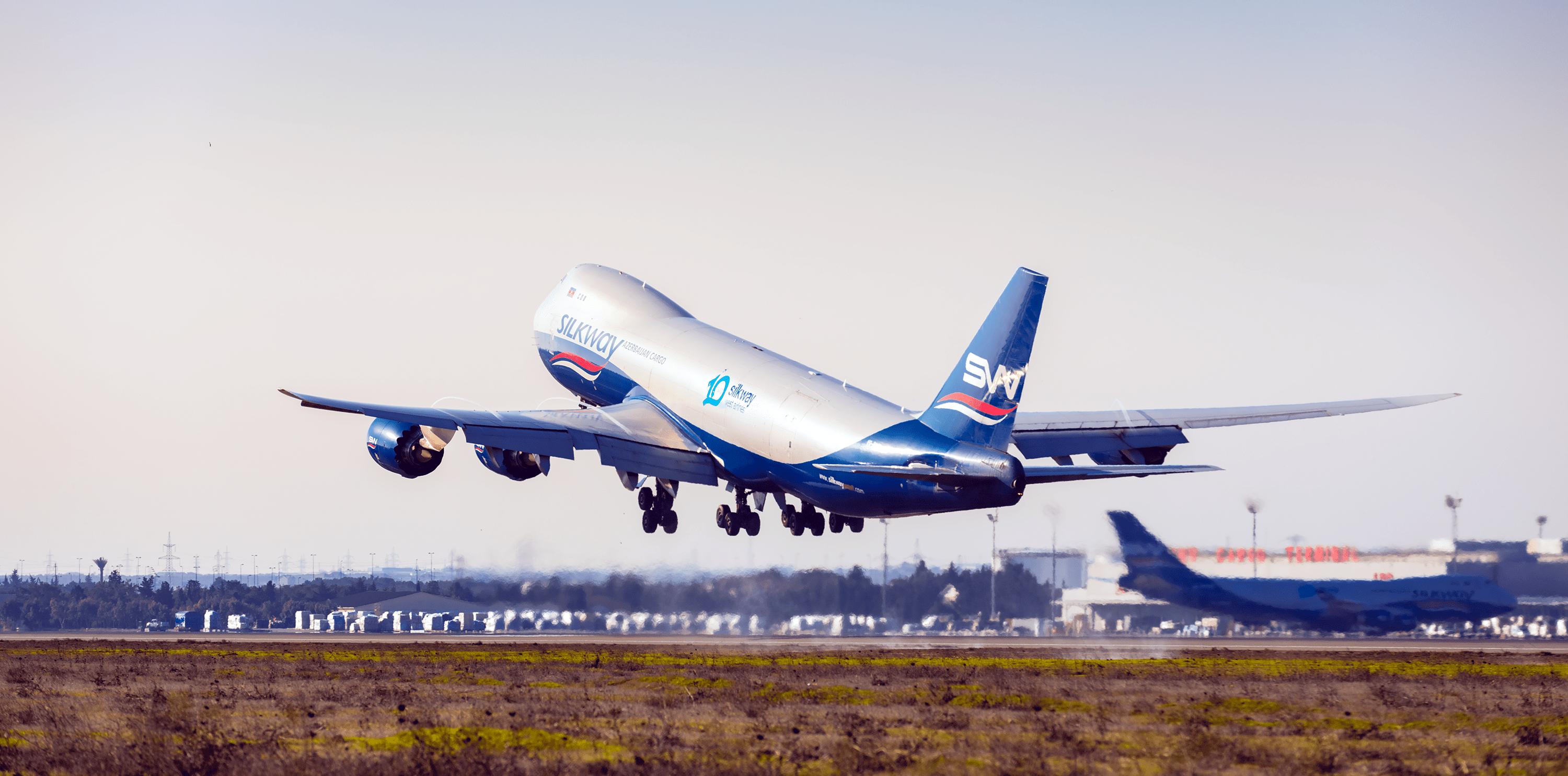
With this route expansion, Silk Way West Airlines enhances its presence in this key region by introducing an additional strategic destination. The addition of Los Angeles complements Silk Way West Airlines’ flights to Houston, launched in April of this year, as well as the previously established regular flights to Chicago and Dallas.
The addition of the California hub to its network reinforces the carrier's dedication to meeting the evolving needs of its customers and supporting global trade. The airline will transport a wide range of general cargo, perishables, oversized and e-commerce goods on the route.
We are delighted to announce the expansion of our network with the addition of Los Angeles International Airport as a new destination. The new route will greatly benefit our West Coast customers by providing freighter nose cargo load capacity and shorter transit times for US destinations west of the Continental Divide.
Fadi Nahas, Vice President Americas, Silk Way WestThe International Air Transport Association (IATA) released data for June 2023 global air cargo markets showing the smallest year-overyear contraction in demand since February 2022.
Global demand, measured in cargo tonne-kilometers (CTKs), fell 3.4% in June compared to June 2022 (-3.7% for international operations). For the half year, demand slid 8.1% compared to the JanuaryJune period of 2022 (-8.7% for international operations). However, demand in June was only 2.4% below June 2019 levels (pre-pandemic).
Capacity, as measured by available cargo tonne-kilometers (ACTKs), rose 9.7% compared to June 2022, which was a slower rate compared to the double-digit growth recorded between March and May. This reflects strategic capacity adjustments airlines are making amid a weakened demand environment. Capacity for the first half of 2023 was up 9.9% compared to a year ago. Capacity is now 3.7% above June 2019 (prepandemic) levels.
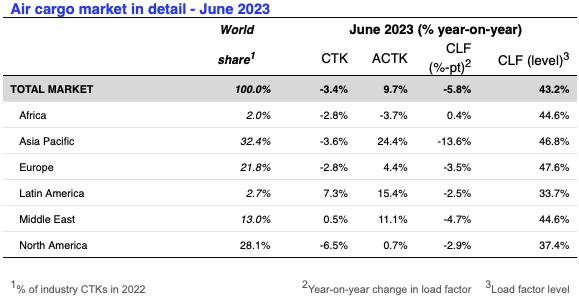
Key factors influencing air cargo demand include...
Global cross-border trade decreased by 2.4% year-over-year in May, reflecting the cooling demand environment and challenging macroeconomic conditions. The difference between the annual growth rates of air cargo and the global goods trade narrowed to -2.6 percentage points in May, representing the smallest gap since January 2022. However, the gap still suggests that air cargo continues to suffer more than container cargo from the slowdown in global trade.
In June, both manufacturing output Purchasing Managers Index or PMI (49.2) and new export orders PMI (47.1) were below the critical threshold represented by the 50 mark, indicating a decline in global manufacturing production and exports.
We remain hopeful that the difficult trading conditions for air cargo will moderate as inflation eases in major economies. This, in turn, could encourage the central banks to loosen the money supply, which could stimulate greater economic activity.
Willie Walsh, Director General, IATAShippers will hold the upper hand in the next round of winter airfreight rates negotiations after another month of falling demand in July saw volumes drop -2% month-over-month, and the general global air freight spot rate decline at a hastening pace of 40% or more for a fourth consecutive month, according to the latest weekly market analysis by CLIVE Data Services, part of Xeneta.
Last month saw global air cargo capacity recover by +7% compared to a year ago, as airlines’ summer schedules stepped up to meet heightened passenger traffic. In line with this, the July global average dynamic load factor, which measures cargo load factor based on both volume and weight perspectives of cargo flown and capacity available, was at 55%, on a par with June 2023 but -3% pts below the level of a year ago.
More capacity at a time of falling volumes placed added pressure on airfreight rates. The -41% drop in July versus the same month in 2022, pushed the average air cargo spot rate down to USD 2.20 per kg. This compares to a rate of USD 2.31 per kg recorded in June.
The month of July rarely provides any surprises in terms of unexpected performance levels in the global air cargo market, but what will be concerning airlines and forwarders is the constant monthon-month decline in average rates, and the quickening pace of this fall since the turn of the year. Going into the usually critical winter rates negotiation period, it’s clear shippers will have the upper hand. We are already seeing more shippers relaunching contract negotiations with their logistics service providers to push down airfreight rates. Shippers are also looking to agree longer, 12-month commitments to reduce their costs. Airlines will know they can expect the same pricing turbulence from forwarders. The airfreight rates merry-goround will be intense this winter, as we have indicated in previous months’ analyses. Many freight forwarders, who at the peak of the
pandemic chose multi-year contracts to secure airline capacity, are now reportedly bleeding cash, so they are under significant pressure to renegotiate rates which reflect the reality of today’s freight market and the expectation that the current market environment could continue for the foreseeable future into 2024.
Niall van de Wouw, Chief Airfreight Officer, XenetaThe key question for all stakeholders monitoring the global air cargo market demand is: ‘how low will it go?’
Looking at weekly developments in July, the global air cargo spot rate bottomed out in the second week of the month, while in the final week, ending on 30 July, it ticked up 3%, possibly reflecting an easing decline in cargo volumes and slower paced growth in capacity versus previous months.
In addition, the recent rise in jet fuel prices might also have contributed to the increase, having already been seen in some shippers’ monthly rate revisions. But the uptick in jet fuel surcharge will likely not manage to stick and provide any meaningful impact on freight rates, as demand and supply dynamics for the general air freight market remain unchanged. With shippers enjoying leveraging their enhanced buying power after the pricing pain of the pandemic, Xeneta expects a push back on the fuel surcharge adjustments, too.
Zooming into the corridor level, Northeast Asia (including China) trade lanes registered the biggest rate declines compared to last year. Both China to the US and US to China airfreight spot rates fell 60+% from a year ago. China to Europe and Europe to China took the third and fourth places, with spot rates down over 55% year-on-year.
The pandemic years brought record revenues from air cargo. With supply limited due to the grounding of passenger planes, and demand up thanks to booming ecommerce, prices per cargo kilogram soared. According to TAC Yields figures from the Trade and Transport Group, in 2019 air cargo from Hong Kong to North America cost $3.80/kg while the price from Europe to North America was $2.10/ kg. By 2022, these same services cost $9.00/kg and $4.50/kg respectively.
Unsurprisingly, this situation transformed the position of air cargo providers. Cargo revenue more than doubled from $100 billion in 2019 up to $210 in 2021 (these are the IATA's figures) while passenger revenue plummeted from $607 billion annually down to $239 billion. Cargolux's annual revenue grew from $2.2 billion to $5.1 billion over the course of the pandemic, and Silkway more than doubled its revenue and saw its margin transform from -10% to +30%. These huge gains, plus the long-term potential of ecommerce (which has led Airbus and Boeing to make optimistic forecasts for growth in air cargo), led many airlines to focus more on cargo.
However, increased belly capacity has led cargo prices to drop steeply once more. The IATA forecasts that year-on-year cargo yield will fall by 28.6% this year. This means air cargo, a notoriously cyclical sector, is once again entering a period of turbulence. This is the context in which airlines are deciding whether to purchase new freight planes.
Airlines and air cargo providers are pursuing different strategies when it comes to building up their freighter fleets. According to KPMG's latest report, last year, 35 orders were made for new 777200F aircraft, 33 were made for new 777-8Fs, and 20 providers bought new A350Fs. These orders were made by both dedicated air cargo providers (Cargolux, Silkway West, DHL, FedEx) and airlines (Lufthansa Cargo, Qatar, Air Canada, China Airlines, EVA, Air France, Etihad, SIA and Western Global). Meanwhile, annual passenger-to-freighter (P-to-F) conversions have reached historic highs with volume estimated to peak at 180 per year by 2025, and then settle at around 160 aircraft per year. This compares to 70 units per year before the COVID-19 pandemic.

A number of factors are affecting the choice of purchasing either new freighters or P-to-F conversions. Naturally, cost is a major one, taking into account variables like total order number, fuel burn and maintenance as well as the upfront production costs. Production lead times is another key factor, as is cargo volume and flexibility.
There is a massive difference in the baseline costs for new versus converter freighters. The upfront price for a brand new 777-200F or A350F is roughly $170 to $185 million, or a monthly lease rate of between $1.2 and $1.3 million. Looking at the order book of those who made purchases last year, the majority of these airlines have a significant amount of these types of aircraft in their fleet, particularly the combination carriers. In these cases, it is highly likely that the actual purchase cost was much lower than the $170 to $185 million range. Positive economies of scale will also be a factor in keeping costs down for these airlines. Nevertheless, despite these savings they will still be looking at monthly lease rates of $1 million.
By contrast, leasing a 777-300 P-to-F conversion will cost $0.6 million per month, or roughly $65 million to purchase outright. This aircraft is likely to compare well with its production rivals, but at a fraction of the cost.
Airlines will make savings on P-to-Fs when it comes to MRO. With access to the second hand market for parts, maintaining these aircraft will be considerably less expensive than keeping new planes in operation.
Naturally, alongside cost savings, access to second hand parts can also accelerate and simplify the maintenance process for airlines.
Fuel burn is another consideration. Historically, we have seen significant improvements in fuel burn when new aircraft come online. When the 777F was introduced as a replacement to the 747-400F, its 6,800 kg/h fuel burn was a huge improvement on the 10,230 kg/h offered by the 747-400F. However, with the new 777X and A350 we are unlikely to see improvements in fuel burn to match the 30% reduction seen from the 747-400F to the 777F. A 10% to 15% change is the most we can realistically expect.
On balance, while improved fuel burn and (in some cases) economies of scale may be able to soften the financial blow of purchasing a new freighter, in terms of costs P-to-F conversions are a far more attractive option.
New freighter aircraft have the potential to offer benefits in terms of delivery capacity and flexibility. Nose loading in particular offers a huge advantage. It enables aircraft to deliver outsized cargo such as large generators, engines, trucks and specialized technology. Crucially, this outsized cargo is lucrative, offering higher profitability than normal pallet deliveries.
However, new freighters being produced such as the 777X and the A350F do not offer nose loading. This levels the playing field in terms of the advantages a dedicated freighter has over a conversion, as both are now restricted to cargo that can fit through the side doors.
How do conversions fare in terms of volume, packing density and gross payload? Let's consider the 777-300ERCF compared to the 777F (which currently makes up half of the world's large freighter fleet) using data from a 2022 comparison by Aircraft Commerce.
While the 777F offers a larger overall payload of 106.6 metric tonnes, in terms of volume the 777-300ERCF comfortably outperforms the 777F. The 777-300ERCF offers almost 6,000 cu ft. more in total volume than the 777F (28,739 cu ft. compared to 22,971). Revenue per payload is also considerably higher. At 6.5lbs, it is 186,804 cu ft. and at 7.5lbs it is 190,900 cu ft, which compares to the 777F's 149,312 cu ft. and 172,283 cu ft. respectively. One important point
to note with this comparison is that it is volume, not gross payload, that matters most in ecommerce express operations, which are likely to be an important growth driver in the future. And in this area, the 777-300ERCF offers a clear advantage.

Airbus estimates that an additional 1,040 freighters will need to be added to the global cargo fleet by 2041 - Boeing's forecasts are even more confident. Buying new cargo freighters to meet this need carries significant risk for airlines. With cargo prices having fallen significantly, the CAPEX investment in a new A350 or 777F represents a massive financial outlay at a time when prices are falling fast. Investing heavily in a new $185-million freighter might have made sense in 2021 when air cargo prices were at record levels. However, in 2023 this is no longer a prudent policy.
Furthermore, there is little to be gained in performance and capacity from purchasing a new freighter. P-to-F conversions are capable of matching new production freighters in terms of volume, and they have notable advantages when it comes to maintenance and production.
Ultimately, conversions represent a much lower financial risk, enabling airlines to sustainably ramp up their air cargo capacity. That is why we are seeing significant growth in P-to-F conversions, while the delivery of new freight aircraft has stagnated. Quite rightly, many airlines are not willing to take on the financial risk of a new aircraft as prices tumble, and see little upside compared to refurbished passenger planes.
Gediminas Ziemelis, Chairman, Avia Solutions GroupA system of transporting goods by ship.
Related topics
Shipping lines
Biofuels
Ships' parts

Sponsored by
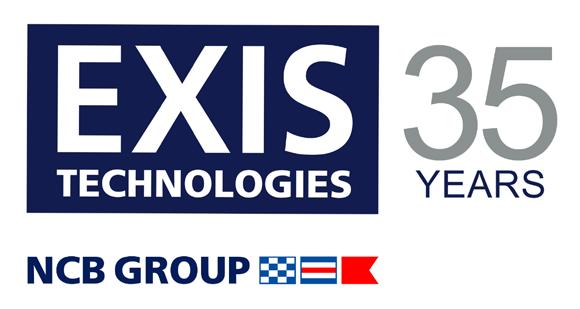
EA-LNG, the multi-sector industry coalition established to demonstrate the benefits of the LNG pathway as a route to shipping’s decarbonisation, today welcomes MSC Mediterranean Shipping Company, the world-leading shipping company, as its latest member.
In recent years, MSC Mediterranean Shipping Company has made investments in LNG-fuelled vessels in the different sectors it operates within. In 2022 MSC saw its first five newbuilding dual-fuel LNG capable container vessels in operation. MSC is committed to maintaining a modern fleet that will advance progress towards net zero decarbonisation by replacing conventional fuel vessels with dual-fuel capable vessels in the short term, including those fuelled by LNG. In the cruise sector, the company has launched MSC World Europa and MSC Euribia, whose maiden voyage was powered by bio-LNG.
We are committed to catalyzing the development, accessibility and uptake of net zero fuels and believe we have found another excellent partner to help continue to drive the industry in this direction. We look forward to working with SEA-LNG to further assess and collaborate on the exciting long-term prospects of bio-LNG, and particularly renewable synthetic LNG, as mainstream marine fuel molecules. In alignment with our net zero commitments by 2050, we view fossil-based LNG as a fuel in transition, and fully expect bio and renewable synthetic LNG to be a key part of our longer-term multi-fuel strategy for deploying net zero fuels.
Bud Darr, Executive Vice President, Maritime Policy & Government Affairs, MSC GroupAs the world’s largest ocean carrier, MSC endeavours to be a steward of the world’s oceans and has invested substantially in ship design, cuttingedge technologies and digital applications to improve energy efficiency. The company continues to focus on improving energy efficiency and is taking actions today to properly support meeting its target of complete net decarbonisation by 2050.
MSC is actively exploring a range of alternative fuels and propulsion solutions that will help the business move even closer towards net zero, and the vessel operator sees cross-industry collaboration as crucial to scaling these solutions for the maritime industry. MSC expects to operate its vessels on a range of fuel options in the future, particularly looking at those that might become available at scale within a small number of years. MSC is also an active partner and member of the Methane Abatement in Maritime Innovation Initiative (MAMII) and the Society for Gas as a Marine Fuel (SGMF).
As one of the world's leading shipping companies, MSC's decision to work with our coalition of companies across the LNG value chain demonstrates its confidence in the LNG pathway as a viable solution for flexibly advancing shipping along its decarbonization journey.
Peter Keller, Chairman, SEA-LNGKeller further emphasised the advantages of LNG, stating:
LNG is available at scale for deep sea shipping today. Existing LNG infrastructure can accommodate bio-LNG and renewable synthetic LNG as they become increasingly accessible, lowering investment barriers. Waiting is not an option; the LNG pathway offers immediate decarbonization benefits and a route to net-zero shipping.
The SEA-LNG coalition spans the entire shipping value chain and remains committed to sharing and developing credible, fact-based analysis of the LNG pathway.
The drought in the Panama Canal has worsened. There are now 154 vessels waiting to cross and a 21-day wait
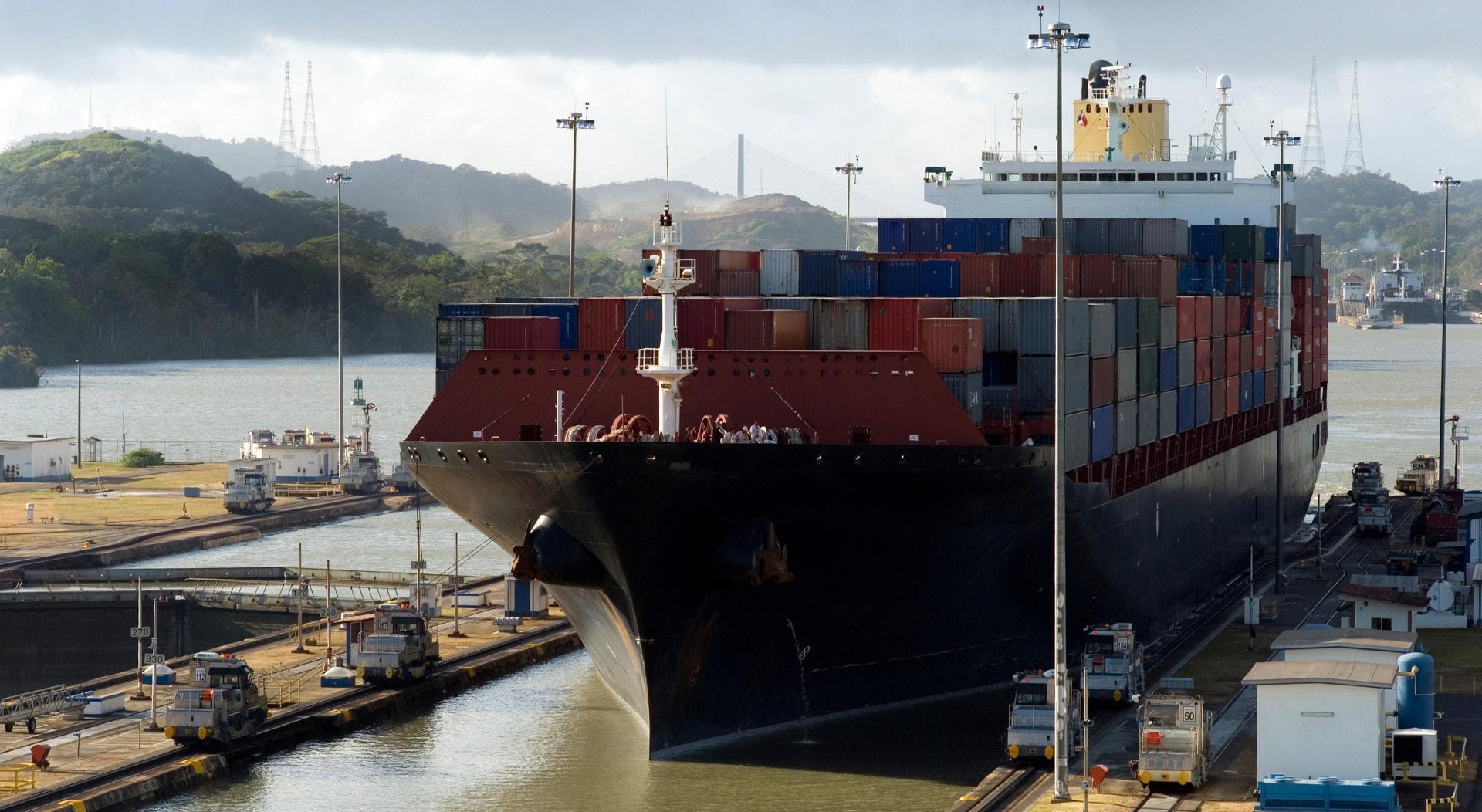
The Panama Canal Authority has put in place and keeps tightening water conservation measures as the drought continues. Currently, vessels can only carry 4,500 twentyfoot equivalent units (TEUs). The booking slots lowered from 23 daily to 14, a drastic decrease from 36 a day pre-drought.
Ships with reservations get priority. About 62% of vessels waiting are without reservations. In an attempt to reduce the congestion, 5 ships can cross the canal a day on a first come first served basis.
Some ships were in the queue before weight reductions occurred and were forced to offload some cargo at another port. Those containers will likely require another vessel to go pick them up.
Through regular updates, transparent dialogue, and close collaboration with shipping lines and stakeholders, we strive to manage expectations and provide real-time information that enables our customers to make informed decisions.
While some are choosing to wait, others are looking for alternative routes. Either way, shipping costs and time will go up and affect businesses down the supply chain, inevitably affecting consumers.
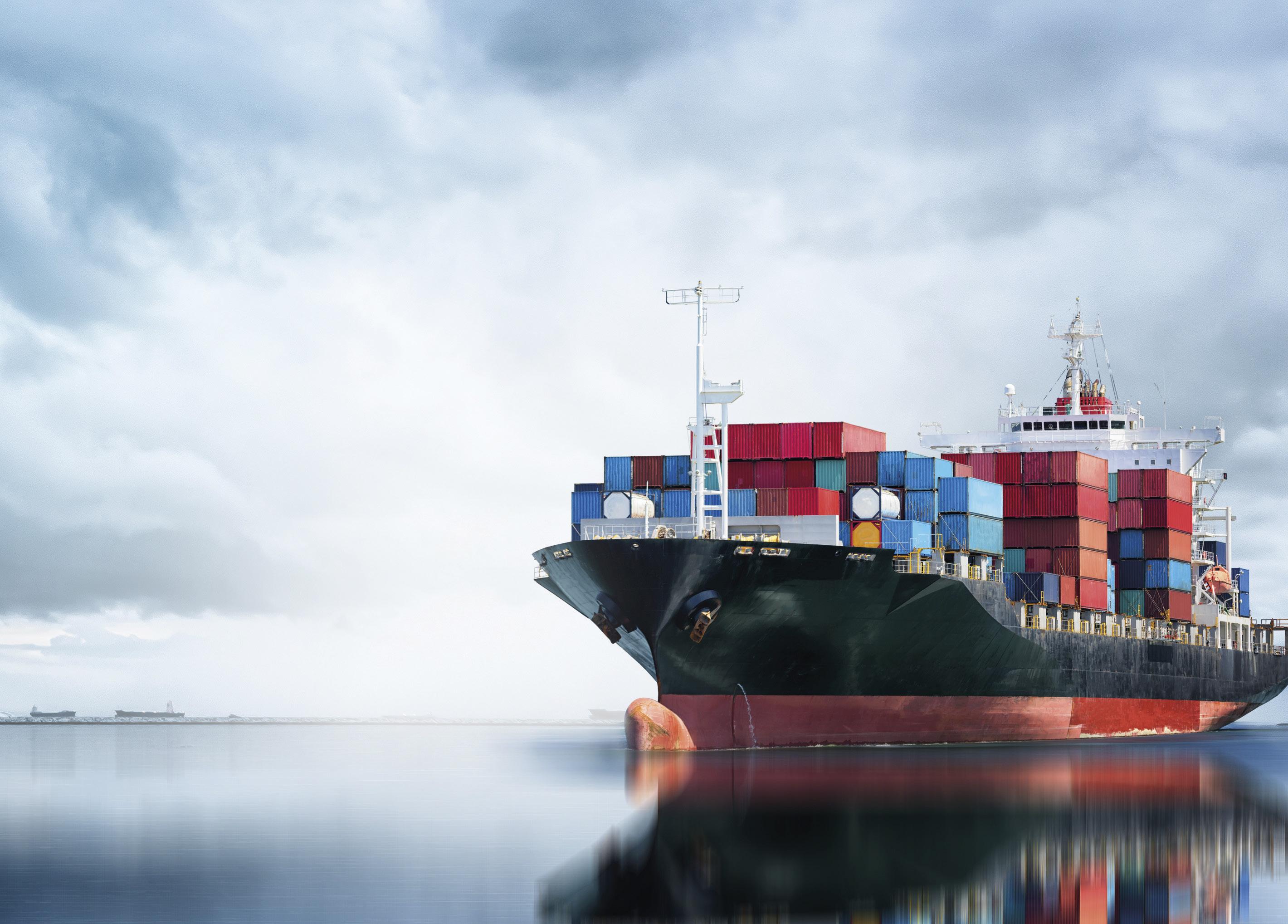























Majority of 2570 Supply chain professionals surveyed in July hopeful of container market rebound, Container Price Sentiment Index (xCPSI) reflects positive outlook
Container prices have remained stable in July, indicating a market improvement that offers favorable conditions for shippers entering the peak season
Container xChange, an online container logistics platform, published its August Container Market Forecaster today. Despite the ongoing market fluctuations, the Container Price Sentiment Index (xCPSI) has exhibited resilience and witnessed growth in July as compared to the month of June. The forecaster also noted that container prices have been relatively stable over the past 30 days (July) as compared to the previous 90 days (May-July).
The Container Price Sentiment Index (xCPSI) conducts market surveys concurrently and distils industry experts' collective insights about container price trends into a quantitative measure, providing insight into near-future expectations for the container market dynamics. In July, 2,570 supply chain professionals participated in the survey.
While the opinion is varied, still most respondents (42%) foresee an increase in container prices in the near-term which is indicative of potential market improvement, 28% foresee a further decline in container prices, suggesting a certain degree of pessimism in market conditions. 30% of those surveyed maintained that prices would remain unchanged.
This growth in sentiment underscores the industry's anticipation of an imminent turnaround, contributing a sense of positivity to the landscape.
Average container prices have been relatively stable in the last 30 days as compared to the price volatility over the past 90 days (30 days – July, 90 days – May-July).
Analyzing a 30-day price delta comparison across key regions, the market has witnessed average price fluctuations ranging from -4% to +5.20% in the month of July 2023. However, the container prices have experienced a visible dip over a 90-day period, with Southeast Asia reporting a substantial -15.73% decline from May to July 2023.
Despite this sustained dip, the sentiment index has stayed strong, even growing in July. The alignment of sentiment and pricing trends suggests an industry outlook that foresees a turning point, shifting away from skepticism towards a shared anticipation of market recovery despite ongoing price adjustments.
Asian ports have been witnessing steady changes in average container prices for 40 HC cargo-worthy containers. For shippers, engaging in container trading or leasing within Southeast Asia at present, compared to three months prior or even just one month ago, presents a viable business prospect.
These average prices for 20 ft cargo worthy containers (region-wise) as of 9th August 2023 is illustrated in the graph below.
According to Fitch Ratings, in the second quarter of 2023, China witnessed a 6% year on year increase in total container throughput, a significant improvement compared to 3% growth in first quarter of 2023. This expansion was primarily propelled by intensification of trade under the Regional Comprehensive Economic Partnership (RCEP), introduction of new foreign trade routes at the Dalian port, and upward trajectory of trade with nations participating in the Belt and Road Initiative.
A surge in demand for containers on Intra Asia trade lanes was observed on the platform, for example, the China to India stretch was popular in the month of July on Container xChange.
Leasing charges for 40 ft HC containers on stretches Ex-China are amongst the top 10 stretches on xChange Insights indicating a bounce back from low leasing pick up charges over the last months.
Indications from Drewry point towards Asia's entry into a peak season, resulting in a notable 42% surge in the Shanghai-Los Angeles spot rate over a four-week period concluding on August 3rd. Simultaneously, the Drewry Shanghai-Rotterdam index also saw a 20% upswing within the same duration.
Due to increased trade between India and the wider Asian region, ocean carriers are adding more capacity on the Intra-Asia trade route. This is also propelled by the sourcing diversification strategy in South Asia, particularly in countries like Vietnam and India. The aim is to increase shipment volumes and improve market presence. These changes in strategy allow these companies to optimise their operations and potentially strengthen their market position. This is important in a dynamic and competitive shipping industry.
The Global Ports Tracker forecasts, provided by NRF (National Retail Federation), indicate that import cargo volumes are poised to reach their peak in August 2023. This surge aligns with retailers' preparations for the winter holiday season stocking.
Real GDP increased at an annual rate of 2.4% for the April-throughJune period, after rising 2% in the first quarter this year, surpassing expectations and delaying concerns of a recession.
The S&P Global Flash US Manufacturing PMI posted 49.0 in July, up from 46.3 in June indicates market improvement. A decrease of 0.5% in wholesale inventories also indicates that the inventories are becoming leaner in the US.
As economists shift from predicting recession to a 'soft landing’, the industry holds its momentum. While some experts remain cautious, the foundation of a resilient economy, sustained consumer activity, and strategic federal investments improves the outlook of the upcoming holiday season. It’s a shipper’s market this peak season as rates stabilize at below pre-COVID levels and capacity is abundant. Prices are low and this offers a great opportunity for exporters this peak season.
Christian Roeloffs, Cofounder & CEO, Container xChangeIn the second quarter of 2023, seasonally adjusted GDP increased by 0.3% in the euro area and was stable in the EU, compared with the previous quarter, according to a preliminary flash estimate published by Eurostat, the statistical office of the European Union. In the first quarter of 2023, GDP had remained stable in the euro area and had increased by 0.2% in the EU. Therefore, avoiding a technical recession in Eurozone.
Although we did avoid a technical recession in the Eurozone, retail trade is down by 0.3%, along with high inflation rate. These high prices will continue to exert pressure on operating costs for shipping companies. Carriers and freight forwarders should anticipate rising expenses related to provisioning ships and providing for crew members. Shippers might also experience increased costs for transporting goods, affecting overall supply chain costs. Commented Roeloffs.
The shipping industry's course for the next few months is intricately woven with economic shifts, trade dynamics, and supply chain adaptations. As we approach the holiday season, the industry's resilience and adaptability will be put to the test.




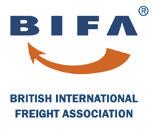











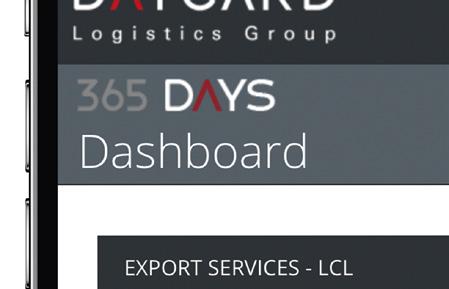
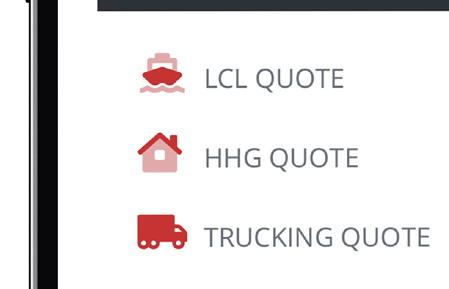
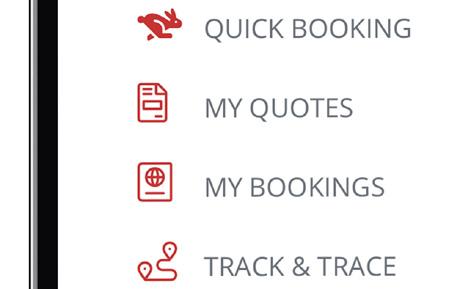







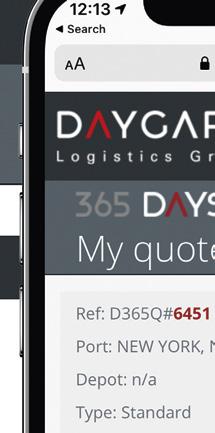
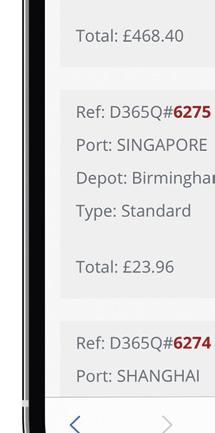



A system of transporting goods by road.
Related topics
Groupage Couriers
Last mile
Sponsored by
As the Heavy Goods Vehicle (HGV) levy is reintroduced today (Tuesday 1 August) after a three year pandemic pause [1], environmental NGOs are calling for greater ambition to green the freight sector.
Transport is the single biggest polluting sector in the UK, with road freight emitting as much as 5% of the country’s carbon emissions. While there has been progress on cycling and electric cars, the Climate Change Committee’s latest report expressed concern that freight emissions are higher than 2019 and that risks to decarbonising the sector have grown [2]. Indeed only 0.4% of new HGVs are zero emission, compared to 12.3% of new buses [3]. This is despite “Government and industry hav[ing] identified this as an area where there could be both emissions and economic benefits from the UK being a global first-mover” [2].
The environmental groups, Green Alliance, Transport Action Network, Possible and Transport & Environment are together calling for the government to go further in embedding the polluter pays principle into UK freight operations. They suggest a shift from the current daybased levy to distance-based charging, with a major discount, or initial exemption, for zero emission lorries. By contrast, the reintroduced levy will charge a new electric lorry the same amount as a new diesel one.
Any reform, the groups argue, should consider cost of living pressures by phasing in charges and help hauliers go greener by recycling money raised into financial incentives for clean trucks plus new driver facilities and recharging sites.
In order to encourage greener logistics and reduce wear on the UK’s roads, a distance-based levy was proposed at the Budget 2002 for delivery by 2006 [4]. Despite haulage associations and businesses
expressing a 'strong preference' for such a levy, the Department for Transport dithered, consulted upon it again in 2017 but has since stalled further progress. By contrast many European countries have since introduced this levy on their roads, with the EU agreeing to roll it out continent-wide by 2030.
It is important that the freight sector isn’t given a free ride to pollute. The reintroduction of the HGV levy is therefore a positive step. However, Europe is miles ahead at embedding the polluter pays principle into the road freight sector. There is a clear move toward tolling based on distance traveled and how polluting each vehicle is. These charges are far higher than the UK’s HGV levy and therefore provide a far greater incentive to plan journeys effectively and can help make battery electric trucks cost competitive.
Johann Beckford, policy adviser at Green AllianceThe road freight sector urgently needs to transition to cleaner vehicle types, and we need to increase the proportion of our freight transported by rail. Battery electric trucks are one solution and while costs are falling, more needs to be done to make them cost competitive with diesel trucks. Distance based charging is one solution that can help that.
Chris Todd, Director at Transport Action NetworkA greener lorry levy can cut carbon and congestion, while bringing us closer to pothole free roads and pollution free air. Having first been proposed over 20 years ago, we should not be kept waiting any longer for this to be delivered. What’s more, the funding raised can help our freight sector be world leading, supporting smaller firms to switch to clean trucks and trialing new technology like electric motorways. With London taking a decisive step to clean its air with the ULEZ, it’s high time ministers act quickly to speed the rest of the country along to a cleaner future.
Leo Murray, Director of Innovation and Engagement at PossibleAlogistics partnership which plays a vital role in getting household goods onto shelves as well as providing a significant boost to the environment has reached its 15-year milestone.
Coventry-based IPP, one of Europe’s leading poolers of sustainable wooden pallets, joined forces with Bedfordshire haulier F.A. Hawkins Transport to improve efficiency.
Together, they play an active role in reducing empty running – the environmentally-harmful process of a vehicle returning to base without any goods on board.
IPP’s transport planners work strategically with F.A. Hawkins to ensure efficient pickup and delivery of everything from cut flowers to paint and crisps, and significantly reducing unnecessary miles.
It’s a family affair at Eaton Bray-based F.A. Hawkins, with managing director Jim Hawkins running the company initially set up by his grandfather Frederick Alfred Hawkins in 1926 and later run by his dad, Peter James Hawkins, from the late 1940s.
Jim’s brother, Pete Hawkins, took over the running of the business in the early 1980s and built on the success of their father and grandfather until he retired in 2019.
The family-run firm has now entered its fourth generation with Jim’s niece, Lizzie Hawkins, joining him at the helm.
The relationship with IPP has played a significant role in the company’s growth and longevity, which started with one vehicle per day on IPP work and has swelled to anything between 20 and 28.
F.A. Hawkins now moves around 88,000 pallets per week for IPP, and more than 30 people are employed by the company as a direct result of the contract.
Jim said: We started working with IPP in 2007 after a phone call out of the blue, which has grown so much they are now one of my biggest customers. The work with IPP has played a big role in our company’s growth. We are fully loaded nearly all of the time we work for them, which is obviously good for the environment compared with running empty and has a significant impact on the carbon footprint of those goods. It’s also very varied work – we supply pallets for fruit growers in Kent to paint suppliers and crisp producers. Whenever we’re doing a job for IPP, we dedicate those vehicles to it, which is better for reliability as well as enabling us to backload effectively. We just run everything as efficiently as we possibly can.
As well as ensuring business success, Jim said the partnership had flourished due to the productive working relationships he enjoys with the IPP team.
IPP is a very easy company to work with. We have a great relationship; the team is very approachable and I get on with everyone there. They are always happy to help, he added.
David Bage, operations director of IPP, said: Empty running is an environmentally-damaging and costly process and leads to delivery vehicles clogging up the UK’s motorways when returning to depots without a payload. We work closely with our customers and hauliers to co-ordinate the back loading of used pallets on return journeys, eradicating the need for other vehicles to collect them for repair and repatriation. F.A. Hawkins is one of our most successful examples of this type of partnership, providing the essential transport link in the circular economy by delivering, retrieving and repatriating our pallets. Seeing how our working relationship has grown over the last 15 years is testament to this.
IPP is one of Europe’s leading poolers of sustainable wooden pallets, which are used by major customers including PepsiCo and Tayto to transport their products from factory to store.

























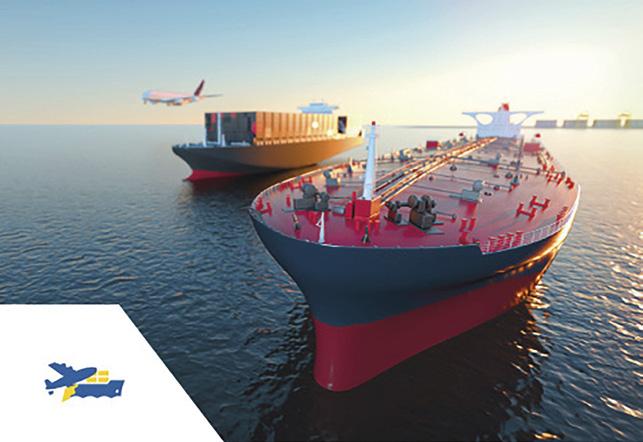




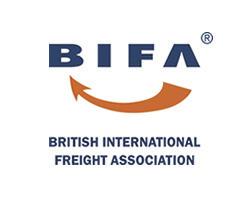

Inspired by the insights of Simon Hucks, the Head of Road Freight at NNR Global Logistics UK, we are here to share how NNR is exceptional in making their customers’ businesses better. With a wellestablished network, tailored solutions, a commitment to sustainability, and a customer-centric approach, NNR Global Logistics continuously improves the operational efficiency and competitiveness of businesses across diverse industries. Its dedication to technology adoption and ensuring timely, secure deliveries has positioned NNR as a trusted partner for businesses seeking streamlined road freight solutions in Europe.
Effective logistics solutions are no longer merely a convenience in today's interconnected world; they are an essential driver of business success. Among the various modes of transportation, road freight takes centre stage in facilitating timely and adaptable deliveries, particularly within the dynamic European trading landscape. NNR's extensive network of branches scattered across Europe creates a seamless web connecting countries, regions, and cities. Akin to Hucks' vision, the expansion of NNR European Road Freight has heralded transformative outcomes,
facilitating comprehensive end-to-end business contracts. Leveraging expertise in customs, compliance, and logistics, NNR's proficiency has significantly enhanced convenience and efficiency for its customers. This journey starts with meticulous implementation, encompassing transportation route establishment, technology deployments, warehousing arrangements, and robust communication protocols. Regular meetings and performance reviews ensure the successful execution of contracts.
One of the distinguishing features of NNR’s European road freight service is its unwavering commitment to reliability and timeliness, as aptly stated by Hucks. NNR UK accomplishes this through route optimisation and utilising cutting-edge data tracking and management. The emphasis on mitigating potential delays whilst maintaining frequent communication with customs authorities ensures a seamless flow of goods. It capitalises on modern technology and sophisticated systems to streamline its operations, heighten efficiency, and provide clients with comprehensive shipment visibility.

In the face of the Brexit challenge, NNR UK has demonstrated resilience and expertise. Leveraging years of proficiency in sea and air customs clearances, the company adeptly adapted to the new European requirements. The complexities introduced by Brexit necessitated adjustments in logistics operations to align with new customs regulations and border controls.
At the core of NNR’s operations lies an unwavering customer-centric philosophy, in sync with Hucks’ insights. Transparent communication, timely updates, and quick issue resolution demonstrate the company's dedication to exceeding client expectations. This approach has not only generated wonderful, long-term partnerships, but it has also been a pillar of NNR's success for more than a century.
In an era defined by environmental awareness, NNR is proactively embracing green initiatives and regulations. European nations' proactive stance on implementing sustainable logistics practices has prompted the adoption of stringent emission standards, carbon pricing mechanisms, and incentives for eco-friendly transport – a stance aligned with Hucks’ visionary thinking.

NNR Global Logistics stands out for having a thorough understanding of industry requirements. Catering to sectors as varied as automotive, fast-moving consumer goods (FMCG), and pharmaceuticals & healthcare, the company's expertise enables the provision of bespoke road freight solutions to businesses of all sizes. This tailored approach ensures that each client benefits from transportation solutions finely tuned to their unique needs.
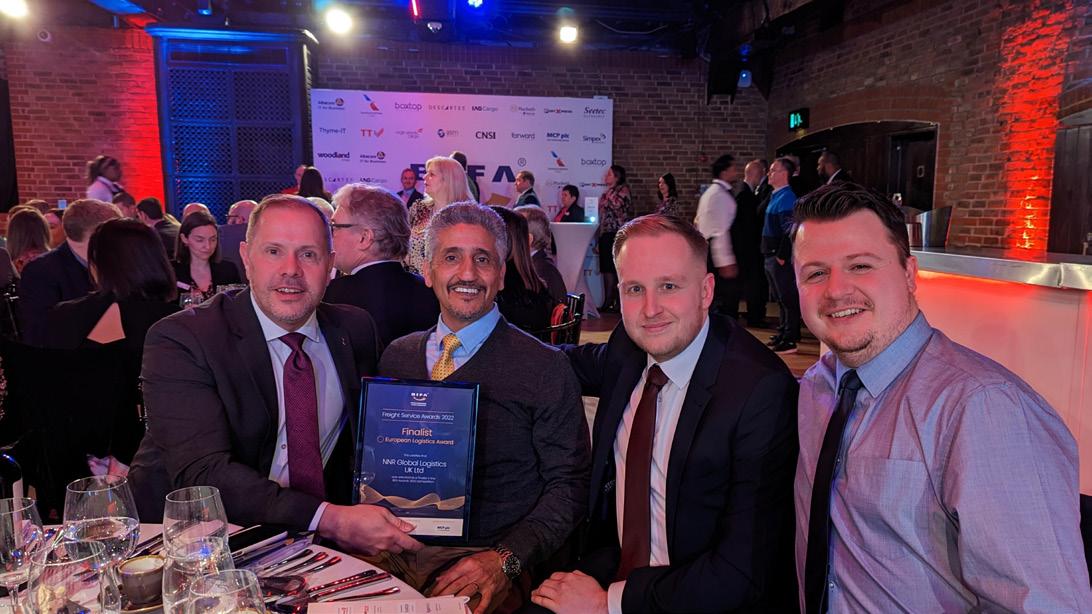 Simon Hucks, Head of Road Freight Development, NNR Global Logistics
Simon Hucks, Head of Road Freight Development, NNR Global Logistics
EV data and camera footage from Webfleet enables and verifies new world record.
Bridgestone Duravis tyres, engineered to minimise rolling resistance, helps optimise the range of the record-breaking FIAT E-Scudo.
The previous record of 258.85 miles was set in the USA
Webfleet, Bridgestone’s globally trusted fleet management solution, has smashed the GUINNESS WORLD RECORDS title for the greatest distance travelled by an electric van on a single charge – 311.18 miles (500.8 km).
The record-breaking feat was achieved by Webfleet-sponsored drivers Kevin Booker, Sam Clarke and Fergal McGrath in a FIAT E-Scudo, fitted with energy-efficient Bridgestone Duravis tyres.
Independently verified video footage, odometer, GPS and battery level data from Webfleet revealed that the compact van, with a 75kWh battery and a WLTP of 205 miles, averaged 4.5 miles per kilowatt hour (kWh) on a circular route across Cambridgeshire, Lincolnshire and Northamptonshire.
The journey took 13 hours and nine minutes during daylight hours. The FIAT E-Scudo needed no modifications and the route combined urban and rural roads to replicate ‘real world’ conditions.
The E-Scudo was specifically chosen for the challenge thanks to its bestin-class range and comfort-first design, which features measures such as a car-like driving position and top-level soundproofing, to minimise jolts and vibrations.
This remarkable achievement is testimony to the determination and technological ingenuity of all those involved. We’re thrilled to have become a GUINNESS WORLD RECORDS title holder. The previous record of 258.85 miles was set in the US, bringing it to the UK is symbolic of our nationwide commitment to become a global leader in e-mobility. The record demonstrates not only the capabilities of electric vans and advanced Bridgestone tyre technology for businesses and urban mobility, but also the impact that drivers can have on electric vehicle (EV) energy consumption.
Beverley Wise, Webfleet Regional Director for Bridgestone Mobility Solutions
Connected EV data plays a vital role in electrifying mobility, enabling business fleets to monitor driver behaviour, compare their energy performance and even analyse kinetic energy recovered through regenerative braking to provide targeted coaching where it’s needed most.
Taco van der Leij, Vice President Fleet Management Solutions Europe, Bridgestone Mobility Solutions
Webfleet’s chosen tyres for the attempt, Bridgestone Duravis tyres, were seen as a critical component in the world record attempt, offering outstanding mileage and low rolling resistance.
We are delighted that the FIAT E-Scudo has registered its first ever GUINNESS WORLD RECORDS title, and an impressive one at that as the furthest distance ever travelled by a van on a single charge. E-Scudo already has a range of 205 miles, which is perfect for businesses wanting to make the switch to electric, and this shows when driven efficiently just how much further the van can go beyond its WLTP range.
Damien Dally, Managing Director, FIAT UKMcGrath and Booker both hold held previous records for petrol and diesel fuel economy and energy consumption in an electric car. They have now amassed six and four driving related Guinness World Records titles respectively, while Clarke has now successfully completed his first.
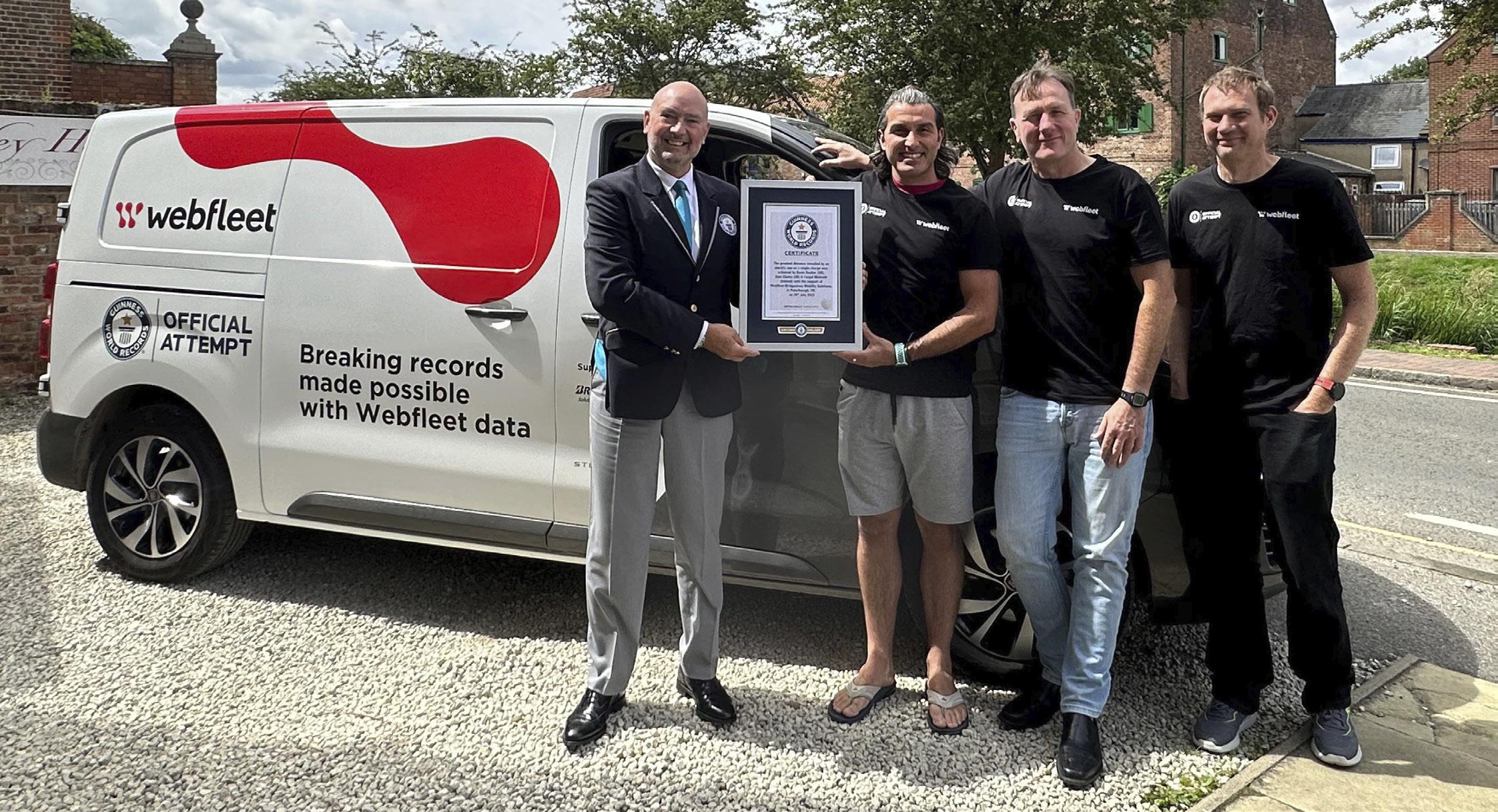
McGrath said: The reduction of carbon emissions and improvement of air quality are among the highest priorities for governments all over the world, especially in cities where air pollution is the worst. We are seeing the recent expansion of the London Ultra Low Emission Zone (ULEZ), for example, from 23rd August 2023. Trucks and vans are predominantly powered by diesel and so it is important that the
transition to pure electric with zero tailpipe emissions is as smooth as possible. By achieving this GUINNESS WORLD RECORDS title, we are hoping to demonstrate that pure electric commercial vehicles can meet and exceed customer requirements in the real-world, especially in large towns and cities.
Edmund King OBE, AA president, was delighted that the AA provided official adjudication and its leading EV support services for the record attempt.
He added: A huge well done to the Webfleet team for achieving the GUINNESS WORLD RECORDS title and showing us what’s possible in terms of EV range and how drivers can impact range. The achievement is all the more impressive being conducted in a van. We know range anxiety is a concern for some drivers, so demonstrating how far electric vehicles can run on one charge is hugely positive. We’re proud to be the number one provider of EV support services for drivers, helping individuals and fleets alike embrace electrification with confidence, so it was fantastic to play our part in this World Record achievement.
The use of railroads and trains to transport cargo, as opposed to human passengers.

Related topics
Belt & Road Initiative
HS2
Rail terminals and depots
Ruislip Lido Railway Society Ltd will use a £75,000 grant from HS2’s Community & Environment Fund (CEF) to convert diesel locomotive 'Graham Alexander' to low-carbon battery power, removing its reliance on diesel. The new diesel-free alternative will improve local air quality and reduce noise pollution on the UK’s longest 12-gauge railway line.

Ruislip Lido Railway Society Limited in Hillingdon has received a £75k grant from HS2’s Community & Environment Fund (CEF) to convert one of their diesel engines into low-carbon battery power.
Forming part of a fleet of six locomotives that operate on the site, Graham Alexander – currently a 4.5 Litre Perkins Engine weighing three tonnes in total- will be converted as part of a wider drive from the Society to reduce local noise pollution and remove CO₂ costs associated with running the 12-gauge railway.
I’m thrilled that HS2’s Community and Environment Fund can play a pivotal role in ensuring that heritage features like the Ruislip Lido Railway can continue to serve the local community for decades to come. This is a unique and creative project which highlights the flexibility the HS2 Funding schemes can offer to a variety of organisations operating near to HS2’s line of route. I would encourage organisations with creative project ideas, who are also impacted by the construction of HS2, to come forward and apply for funding.
Cathy Elliott , Independent Chair of the HS2 FundsRuislip Lido was originally built in 1811 as a reservoir to supply drinking water for London via the newly built Grand Junction Canal. After World War II, the Grand Union Canal Company developed the Lido as a tourist attraction for war-torn Londoners, including establishing a miniature railway running around the perimeter of the 60 acre lake.
Today the Railway runs over 200 days a year and is entirely managed and operated by a team of over 130 active volunteers.
HS2 Ltd has awarded £14,866,498 to 259 community projects on Phase One and Phase 2a over the last six years. Projects in the Central Area of HS2’s Phase One, including Buckinghamshire, Northamptonshire, Oxfordshire and Hertfordshire have received over £4.9 million in total.
Twelve projects in Buckinghamshire, Northamptonshire & Oxfordshire shared £540,485 in funding in the last year alone.

The CEF & BLEF schemes will provide up to £45m of funding throughout the construction timeline of HS2, supporting community-led projects that improve the environment, such as tree planting and energy efficiency measures.
The Funds also support initiatives that bring benefits to local communities, such as the provision of new community facilities or support for local heritage and culture.
Container xChange is closely monitoring the severe flooding caused by torrential rains and the remnants of Typhoon Doksuri in China. As the situation unfolds, we are tracking the potential impact on infrastructure, including ports, roads, railways, and other critical areas, to provide support and assistance to our valued customers in the shipping supply chain.
China has been grappling with torrential rains and severe flooding in several regions, including Beijing, for multiple days. The ongoing natural disaster has resulted in casualties, mass evacuations, and extensive damage to infrastructure, raising concerns about its potential impact on the shipping industry.
China’s National Meteorological Center (NMC) on Tuesday also issued a yellow alert for strong winds, as Typhoon Khanun approaches east China. Authorities have issued a reminder for all ships and personnel navigating and operating in sea areas affected by the strong winds, urging them to promptly return to ports for safety. Relevant departments have been called upon to strengthen port facilities and ensure foolproof preparations to tackle extreme weather conditions. (According to China’s official Xinhua News Agency)
Three railway trains were left stranded due to complete transportation cut-off in some places caused by severe flooding around the Beijing districts of Fangshan and Mentougou on Monday.
Railway services between southern and eastern Taiwan were halted as the flooding could damage road and rail networks, making it challenging to smoothly move goods to and from the ports. This could result in delays in inland transportation and create difficulties in cargo storage.
Doksuri made landfall on Friday, downing power lines and uprooting trees, affecting around 880,000 people in coastal Fujian with more than 354,400 people evacuated and resettled, and causing over 478 million yuan ($67 million) in direct economic losses, state media reported.
Twelve districts in Beijing will continue to remain on red alert for flooding on Tuesday as rainstorms are expected to persist across Fangshan, Mentougou, Yanqing and Changping districts.
The heavy rainfall and flooding may lead to labor shortages and reduced productivity, impacting cargo handling, customs clearance, and overall supply chain operations.
The incident may potentially affect trade routes in the region, with shipping lines considering rerouting vessels to avoid affected areas. This could lead to adjustments in shipping schedules and transit times.
Customers are urged to stay informed through reliable sources and plan their logistics operations accordingly. For any urgent queries or assistance, Container xChange's customer support team is available to provide guidance.
We understand the gravity of this natural disaster and its potential impact on the shipping supply chain. Our priority is to support our customers and ensure continuity in their shipping operations.
Christian Roeloffs, cofounder & CEO, Container xChangeOmni Transloading and Logistics, Inc., a rail transloader, warehouse and distribution services provider, announces the formation of Omni Bulk Services, Inc. Omni Bulk is a natural extension to its parent company serving marine, rail, and truck transloading of bulk chemicals, foods, and gases. Omni Transloading and Logistics was founded by Arturo Sanchez, president of Omni T&L.
Brian Nowak, an experienced tank truck industry leader, will serve as the CEO and president of Omni Bulk Services, Inc. Prior to joining Omni Bulk, Brian was president of Superior Carriers, Inc., one of the largest tank truck companies in North America, where he learned the tank business from the ground up, during his 30 years there. While president at Superior Carriers the company received the Heil Trophy for Safety, a prestigious tank truck industry award. Additionally, he has numerous Board affiliations including the National Tank Truck Carriers, Transloading and Distribution Association and Alliance of Bulk Carriers. In addition, Brian is a DOT Transportation Safety Institute graduate.
James Ridgely, Omni T&L’s VP of Operations, an expert in data analysis and transloading, will support Omni Bulk Services as it takes a foothold in the bulk transportation service market. The new division of Omni is backed by a senior management team well known in the logistics industry, over 75 years, for the safe handling of highly hazardous freight and food-based products.
Omni Bulk is a privately held transloader with strong relationships with all seven Class One railroads plus short lines. The company also has deep and trusted connections in Mexico which expands their service offerings for many types of bulk services on either side of the border.
Further, Omni Bulk offers above ground storage and is incorporating many U.S. Port relationships to enhance services to customers. In addition, Omni Bulk offers 3PL (third party logistics) services, from analyzing consignee data for optimum rail distribution to handling white glove truck delivery with carriers of choice, plus all reporting requirements. Omni Bulk has an aggressive growth strategy and will open new facilities per its customers’ needs.
Our goal in creating a new division for bulk transport was to create a preferred direct rail to truck transloading service for shippers throughout North America. I look forward to working with Brian as we grow this important freight sector, providing safe, reliable services for our bulk shipper customers.
Arturo Sanchez , founder & president, Omni Transloading and Logistics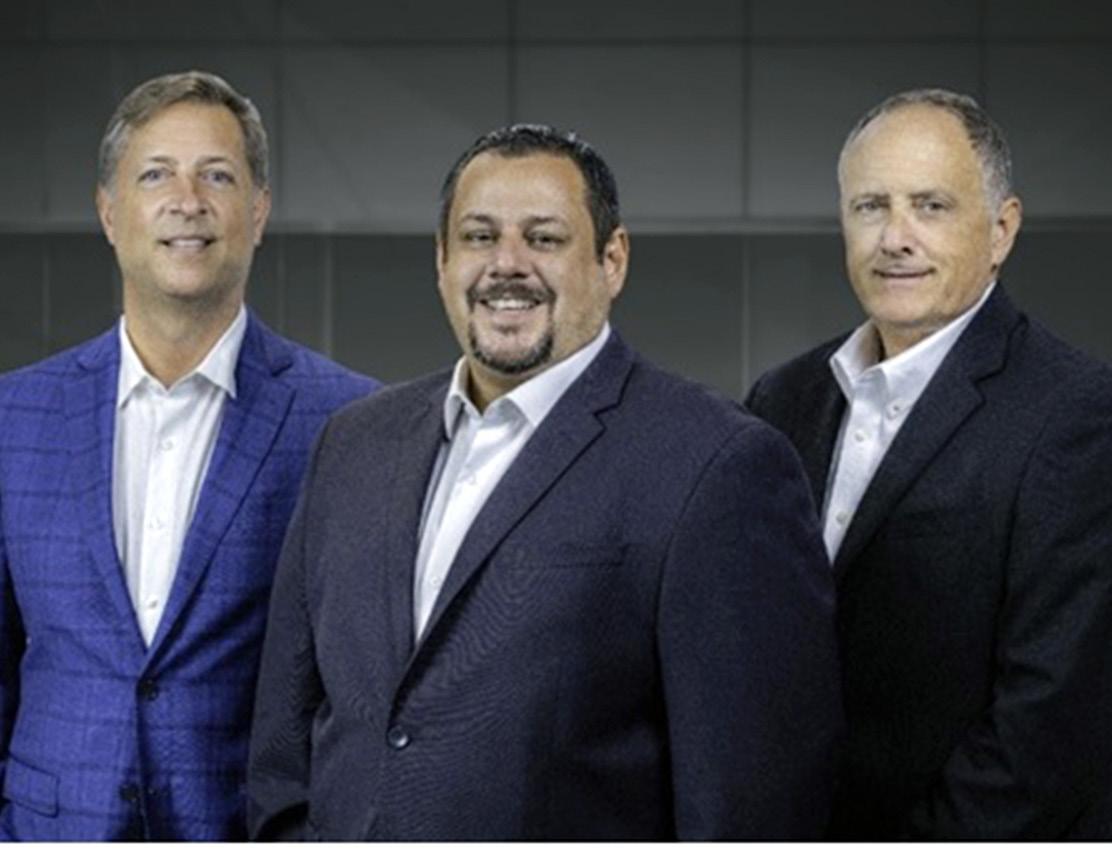
HS2’s construction has delivered a further boost to regional economies, with more UK businesses winning work and hundreds of people securing full-time jobs over the last three months, new figures show.
Despite the rephasing of works at Euston and on the West Midlands – Crewe section of the railway, HS2’s workforce grew by 1,185 for the period April – June 2023, taking the number of people supporting HS2’s construction to over 29,700.

The investment in upskilling, and getting people ready for work, saw a further 307 candidates who were previously unemployed secure jobs with HS2’s construction partners and wider supply chain. As a result, 3,528 people have now transitioned from being unemployed to securing new careers with long-term prospects.
The increase in the workforce reflects the significant progress made on HS2 over the last year, with the project reaching peak construction activity and huge civil engineering structures taking shape. Construction is now well underway at over 350 active sites along Phase One of the route.
HS2 is more than just a railway - it's powering up the British supply chain and offering thousands of high-skilled job opportunities across the UK. As the project continues to develop at pace, I take great pride in seeing the benefits of HS2 come to life by growing our economy, kickstarting careers and soon connecting our biggest cities.
Huw Merriman, Rail Minister
HS2 has placed a strong focus on addressing national skills shortages. Training academies along the route of the railway, and partnerships with local and national training providers are helping to create the skilled workforce needed to deliver HS2 and major infrastructure projects of the future.
Among those to have secured work is 64-year-old James Burke from Birmingham. James had been unemployed for over a year, but when he attended a HS2 careers event in nearby Chelmsley Wood, that soon changed.
The sense of teamwork and the level of professionalism from everyone involved in driving forward HS2’s tunnel boring progamme is just brilliant. Being on site is becoming addictive. The site supervisors are great mentors, I’m learning so much.
James signed up for a 20-day paid work trial with Balfour Beatty VINCI (BBV), HS2’s construction partner for the West Midlands. His previous experience working on construction sites, coupled with his appetite to

HS2 moved closer to achieving its target of creating 2,000 apprenticeships, with 38 new starters this quarter, taking the total number of people to have started an apprenticeship to 1,299.
20-year-old Sharoze Khan from Hillingdon began a Mechanical Apprenticeship with HS2’s construction partner, Align JV, after his advisor at the Carers Trust Hillingdon signposted him to a work trial opportunity. Sharoze is now combining work and study and based at Align’s South Portal site, where he plays a hands-on role in the construction of the Colne Valley Viaduct. Sharoze said...
I’m just starting out, but I absolutely love my team and my mentor. I feel really looked after and I’m confident this is the start of an amazing career. Getting to work at height on the launch girder is something else, I could never have imagined this. I can't wait to be able to say that I helped to make this happen.
A referral from Job Centre Plus also led to 39-year-old Justice Nkwakama from Milton Keynes successfully completing a work trial and starting a new career as an Apprentice Steelfixer with HS2’s construction partner EKFB. Justice will join the team constructing bridges between Twyford and Greatworth.
HS2’s investment in upskilling is making a huge difference to people’s lives across the country. Through apprenticeships and work trials, we’re getting people back into work and ensuring they receive the training and support they need to forge new careers in the transport infrastructure sector.
Natalie Penrose, Head of Legacy, HS2 Ltd.work, led to him securing a full-time role. He is now part of the team delivering BBV’s programme of tunnelling works in Birmingham and Warwickshire. James said...
A further 79 UK-based businesses won work supplying goods, services and materials to support HS2’s construction, taking the total number of British businesses in the supply chain to 3,092. Opportunities for small and medium sized enterprises (SMEs) also grew, with an additional 65 companies awarded contracts.
The transportation of large, heavy, high-value or critical (to the project they are intended for) pieces of equipment.
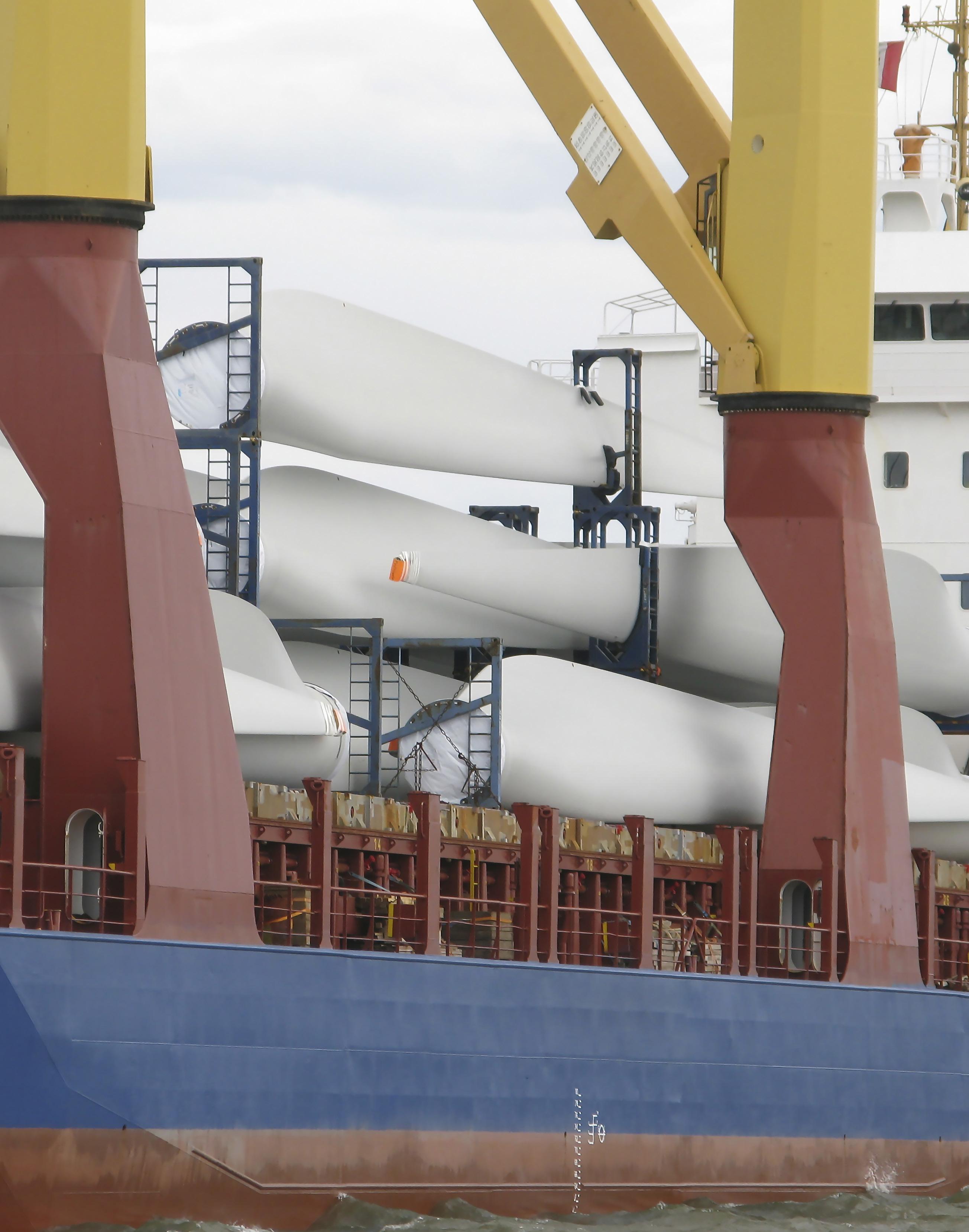
Related topics
Heavy lift
Abnormal load
OOG (out of gauge)
Sponsored by

Moldtrans are new members in Spain! They come recommended as a reliable and trustworthy company by PCN members and hold ISO, AEO, ATEIA, FIATA and IATA certification. Founded in 1979, they have a wide coverage of offices across Spain in Barcelona, Valencia, Madrid, Sevilla, Tenerife, Las Palmas, Lleida, Irun and Alicante.
The knowledgeable and helpful Moldtrans team are experts in project cargo handling, forwarding and transportation. Daniel Rodriguez (Overseas Manager) says they are looking forward to working with PCN members to generate mutual growth and business opportunities.
Daniel continues by introducing the company; With over 40 years experience in international freight transport and logistics, Moldtrans is a one-stop multimodal partner occupying a prominent role in the Spanish logistics sector. We offer detailed and quick responses with efficient logistics solutions for each complex project which requires specialisation, experience and know-how. Each shipment is executed uniquely and personally by our team of experienced professionals who analyse all available logistics options for the best solution fulfilling all the technical aspects required with competitive costs.
Moldtrans have a broad portfolio of specialised services including heavy lift and OOG cargo, breakbulk, RO-RO, railway logistics, cross-trades, contract logistics, liquid logistics and temperature-controlled transport.
Moldtrans make it possible!
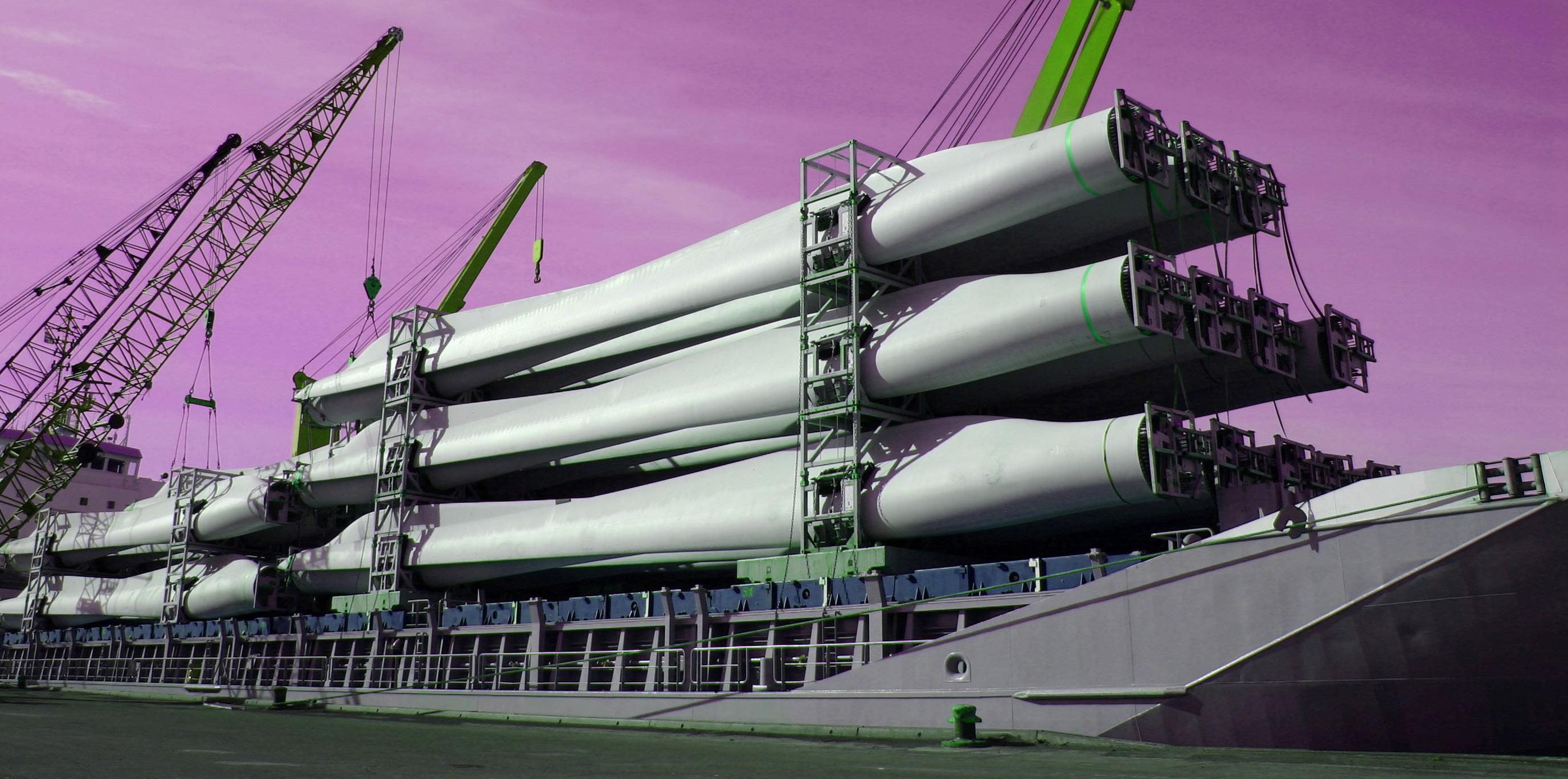
We are pleased to introduce International Logistics Solutions (ILS) as new members in Egypt. Focused on oversized project cargo and heavy lift, their offices are located in Cairo, Alexandria, Port Said, Suez and Sheikh Zayed City. Chairman, Mr. Ahmed Youssef says...
The ILS team are ready and enthusiastic to offer our services to the network and we look forward to getting to know the active and powerful members.
International Logistics Solutions deliver reliable and hassle-free cargo handling and logistics services with expert local knowledge.
We have the capacity and experience to handle full scale project cargo and heavy lift shipments. Our comprehensive project logistics service plans are tailored to meet specific requirements ensuring quality solutions.
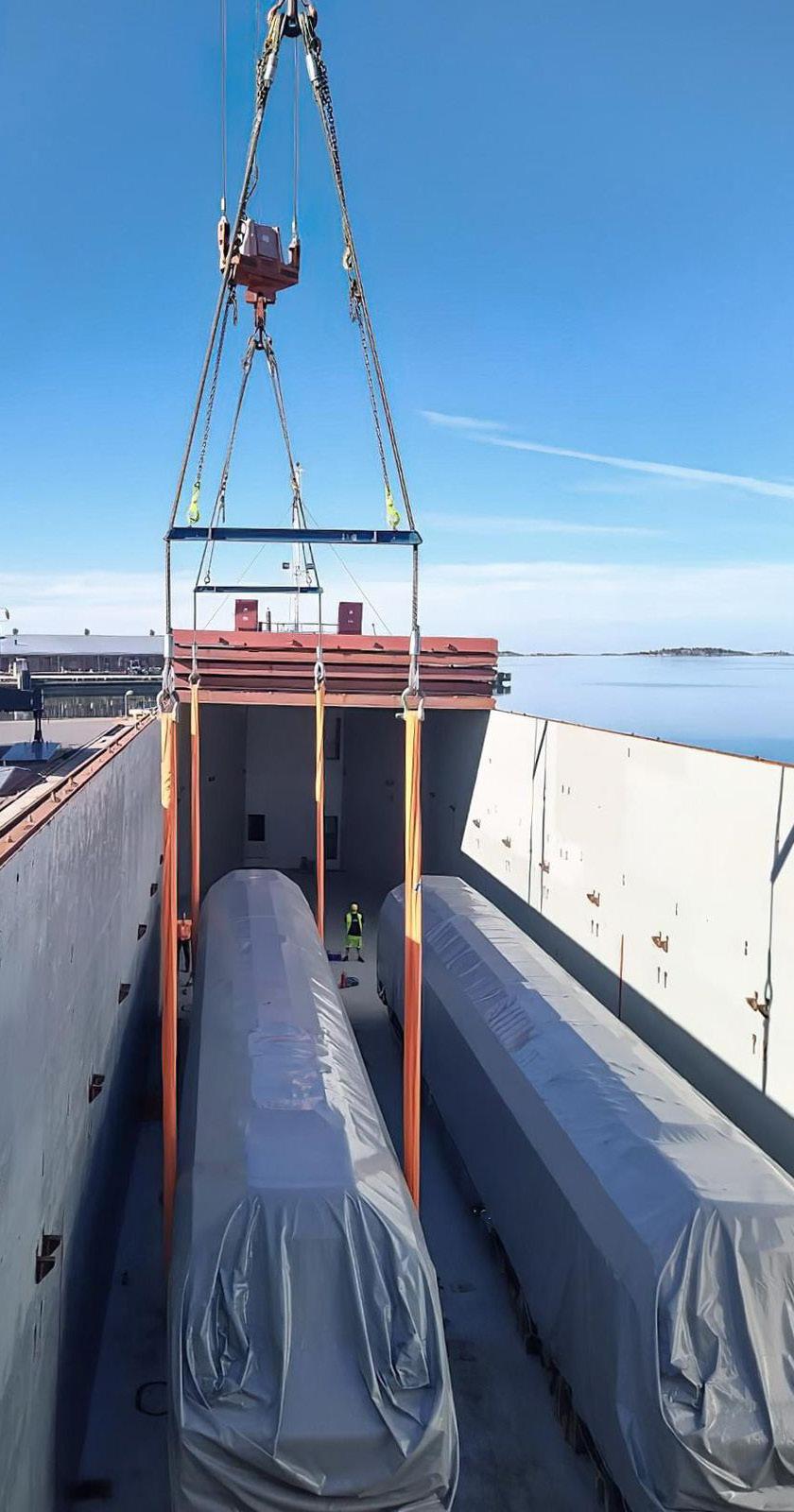
Our team of professionals can foresee different kinds of challenges while handling over-dimensional and heavy cargo and design high-efficiency logistics solutions with safety and competitive pricing. We have also established good strategic relationships with the major shipping companies in the world.
The main service scope of ILS includes project cargo handling, oversized and heavy lift cargo, breakbulk & bulk movements, RO-RO, vessel chartering, surveys, inspections & studies, loading & unloading, lashing & fastening, inland trucking, air freight, hazardous & dangerous goods, customs clearance, warehousing and insurance.
Anker Logistica y Carga are glad to share a recently handled project involving a heavy compressor, which was moved from Houston Terminals to Cartagena, Colombia.
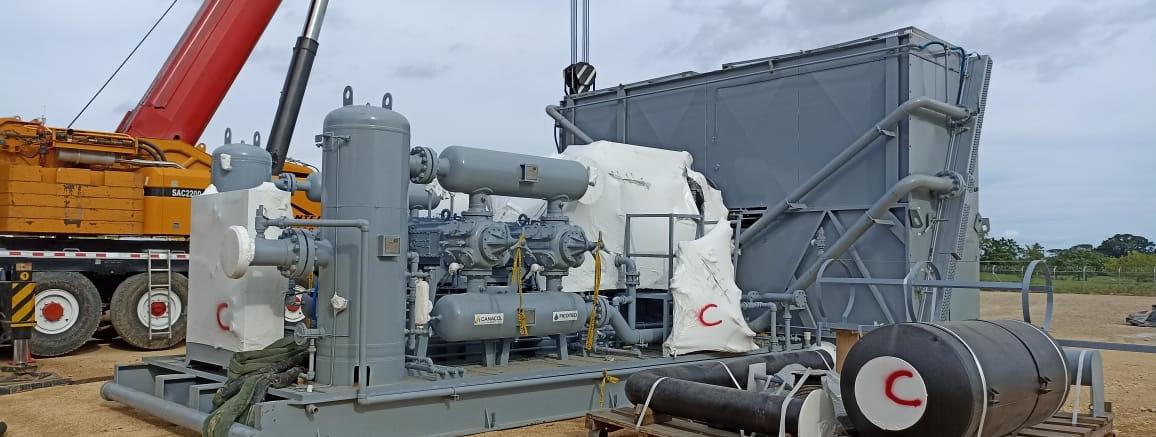
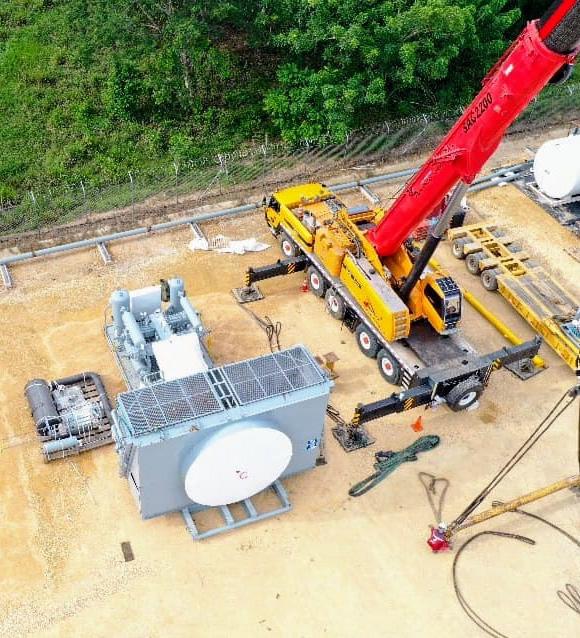
The total volume of the cargo in this shipment measured at 418 CBM, with a weight of 81 tons. The compressor was an ex-works service between an important supplier and Houston Terminals, where Anker Logistica conducted pick-up, customs processes and a complete international transport to Colombia.
Upon arrival in Cartagena, Anker secured the compressor, confirming all local cargo receiving & customs processes. Despite challenges due to regulations changing in Colombia, Anker efficiently handled the operations.
At the end of the day, we managed the cargo with benefits to our consignee and confirmed a 100% successful shipment for the client.
Any place where goods are allowed to pass, by water or land, into and out of a country and where customs officers are stationed to inspect or appraise imported goods | logistics hubs where goods are stored under ideal conditions, for onward distribution.
Related topics
Cargo handling
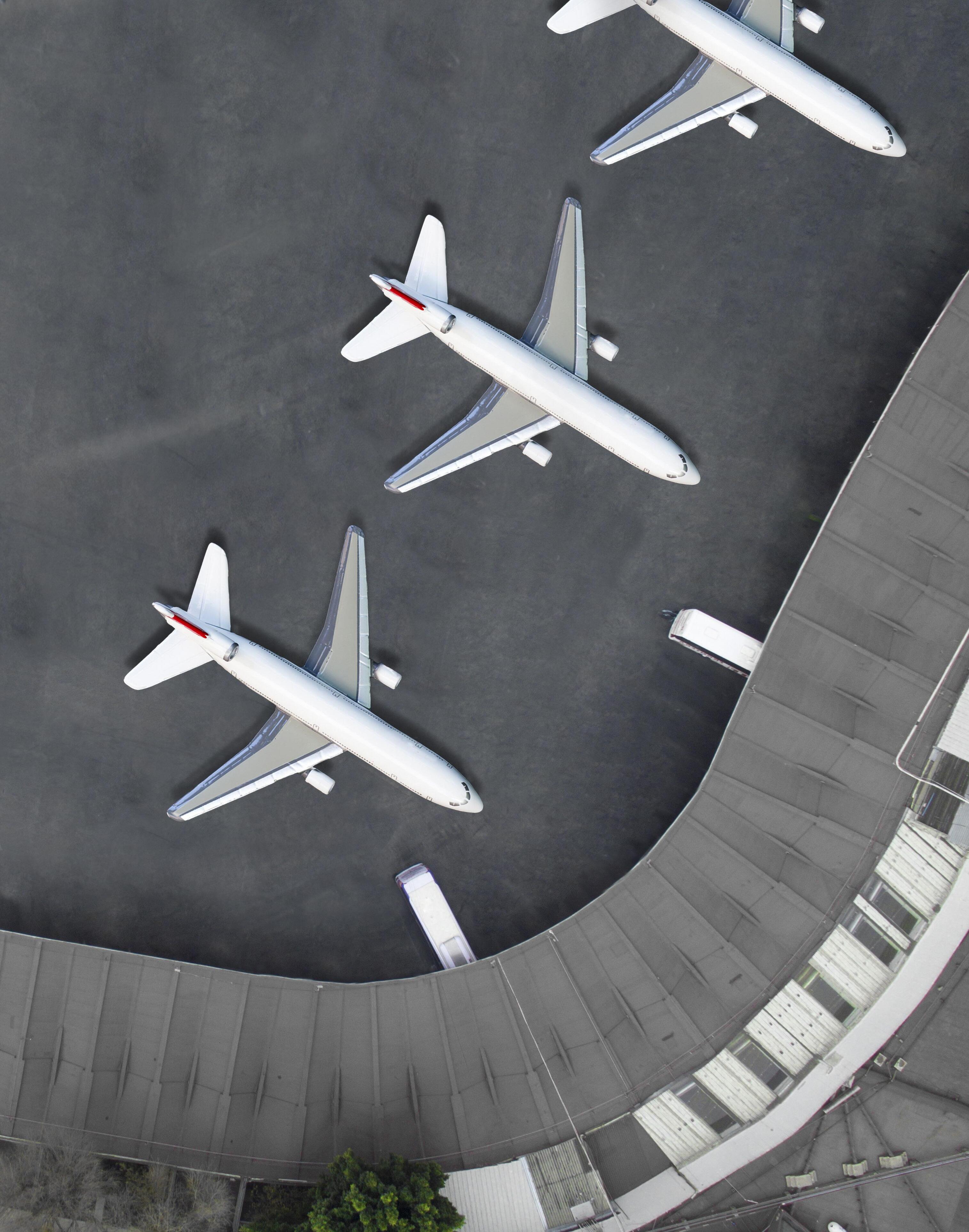
Container terminals
Drayage
Warehousing
Pick ‘n’ pack
Sponsored by

The freight forwarding and logistics company, Duvenbeck, is taking another step towards switching its fleet to low-emission vehicles. The firm tested a fully electric terminal tractor unit at its business site in Rastatt in July this year. It was used to move uncoupled (semi-)trailers at the factory site of a vehicle manufacturer.
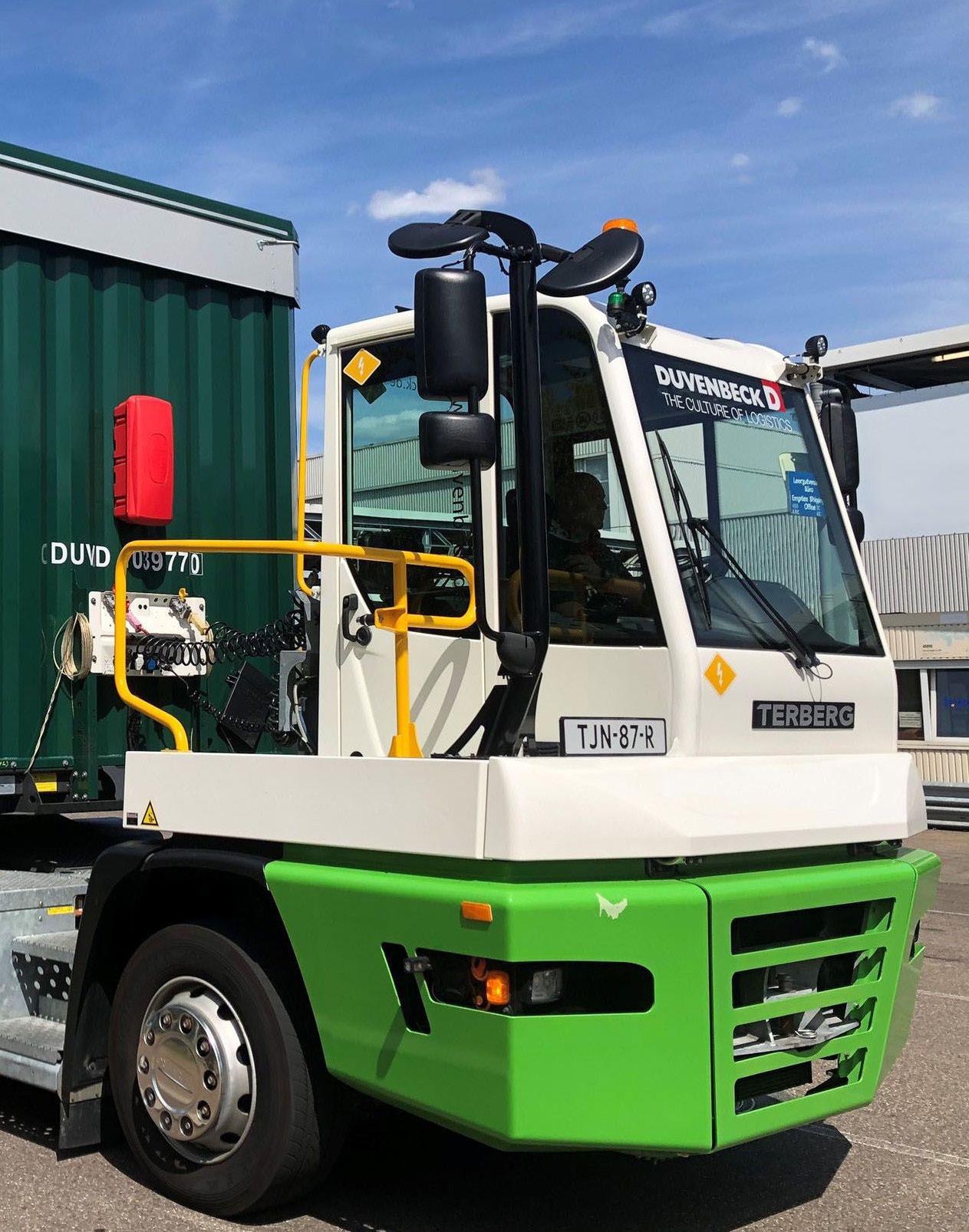
The terminal tractor unit made by the Dutch manufacturer, Terberg, has completed its first operations in everyday service without causing any problems, says Volker Mürb, the Duvenbeck Branch Manager in Rastatt, summarising the results. The performance of the electric motor is in no way inferior to that of a diesel engine. It was easily possible to complete a day‘s shift without having to recharge the battery.
Duvenbeck manages the trailer yard for a vehicle manufacturer. This involves a large-scale parking area where the truck trailers and swap bodies, which are full of components that have been supplied, are made available so that they can be driven to the relevant unloading points at the factory. Duvenbeck uses so-called handling vehicles for this purpose and operates ten of them at Rastatt. Duvenbeck completes several hundred handling movements there every day. Testing an emission-free electric variant forms part of the company’s response to the increasing calls for sustainability by customers in the automobile industry.
Duvenbeck and the customer will now examine whether the test should be turned into a long-term phase lasting one year. The company has used tractor units powered by a diesel engine to move the trailers up to now. The capacity of the battery of the Terberg YT203-EV electric variant, which has been tested, is 150 kilowatt hours (kWh) and the unit is roughly two-and-a-half times more expensive than the diesel version. It is also necessary to have the appropriate charging infrastructure. Overall, any switch to electrically powered terminal tractor units would entail significant additional investments, Mürb adds.
Duvenbeck has been working in the trailer yard management business in Rastatt for more than 25 years. Its services include coordinating and scheduling the incoming and outgoing truck trailers and swap bodies as well as opening, closing and making available the trailers, depending on the vehicle manufacturer’s needs and production procedures; Duvenbeck is also responsible for securing loads. Duvenbeck’s complete fleet includes 1,500 articulated units, consisting of a tractor unit and trailer, 3,500 trailers and 1,000 swap bodies. They are mainly used for customers operating in the automotive industry.
Leading maritime services provider, P&O Maritime Logistics has secured an exclusive towage contract with DP World in the Dominican Republic, which will increase the volume and size of vessels calling at the Port of Caucedo.

The contract, which starts on 7 December, will see P&O Maritime Logistics deploy three tugs to support operations at Caucedo, which has a capacity to handle up to 2.5 million twenty-foot equivalent units (TEUs).
Two of the tugs are new builds and all three will be equipped with market leading capabilities, helping facilitate higher frequency and the handling of larger vessels. This is in addition to Oil Spill Response and Firefighting capabilities.
The new contract is part of P&O Maritime Logistics’ growth strategy in the Americas. Located near the capital Santo Domingo, the Port of Caucedo serves as an important bridge between the Americas and the Caribbean. DP World has made major investments in the port, including a US$114 million to expand the main berth, and more than US$700 million to develop its logistics ecosystem.
We are delighted to have secured this new contract in Caucedo. This milestone further signifies the region’s importance to us. By supporting operations in the Port of Caucedo and facilitating an increase in both the volume and size of vessels calling at the port, we can make a positive contribution to the country’s economy. Beyond the business opportunity, it is equally important to us to make a positive impact on the communities we operate in. By broadening our offering in the region, we hope to not only create jobs for the country’s seafarers, but to provide ongoing training and career development opportunities for each and every employee.
Martin Helweg, CEO, P&O Maritime LogisticsP&O Maritime Logistics currently operates in the Americas covering ports and LNG terminal services including Canaport LNG at St. John, Canada and Atlantic LNG at Point Fortin, Trinidad & Tobago; Cargo services includes Inland Waterway Bulk Cargoes operating along the Paraguay and Paraná rivers; as well as Offshore services such as the ‘MPSV Captain’, which operates in Mexico and a shortsea services containerized vessel that has previously operated in the South Caribbean.
Voyager, the operations and demurrage management platform for bulk commodity shipping, is urging shipping companies to take a proactive stance and adopt a number of Best Practices in order to reduce the costs and risks of demurrage.
A dramatic surge in port congestion and associated supply chain disruptions have led to longer waiting times and higher demurrage costs, said Voyager co-founder and CEO Matthew Costello. This issue is particularly severe in the bulk shipping sector, where demurrage costs can exceed 20% of the total freight cost for a voyage. However, demurrage doesn’t have to be a substantial burden on a company’s resources. By implementing three key Best Practices, companies can significantly reduce the cost of demurrage and streamline their operations.
Voyager says companies should estimate and analyse demurrage in real-time, automate their Statement of Fact (SoF) data processing and logically analyse their charter parties.
These changes will give your company the necessary tools to stay ahead, making informed, data-driven decisions that result in savings and greater efficiency, said Costello.
According to Voyager, many businesses make the mistake of calculating laytime and estimating demurrage claims only after they receive a claim from the shipowner – leaving no room for adjustment. Instead, companies should take a proactive stance; by estimating and analysing demurrage immediately after the first load port, they can gain a realtime assessment of their demurrage risk at every stage.
By taking into account historical factors such as waiting times, congestion and lineups, operators can gain a realistic estimate of the demurrage risk for the entire voyage; these costs can be allocated to profit-and loss-statements accurately and any claim can be anticipated in advance. This also offers dynamic opportunities for risk mitigation by coordinating with terminals and other vessels to expedite discharge and avoid unnecessary delays.
Secondly, Voyager recommends that companies digitise all their SoF events data, to provide granular insight throughout the loading and discharging process – invaluable in assessing the efficiency of the terminal, the berth and the discharge itself. By automating the processing of this data, companies can streamline their demurrage calculations and gain real-time insights, informing decisions related to seasonality, congestion and efficiency.
Finally, Voyage urges companies to connect charter party agreements to demurrage logic. This involves more than just transferring data fields into a database – logic should be assigned contracts and fields, so that it can be understood how specific clauses in a contract are impacting demurrage claims. For example, there may be particular clauses that incur more cost at a certain berth or port. Analysis of the charter party enables dynamic optimisation of contracts across the company, which can highlight areas of potential savings based on data-driven decisions.
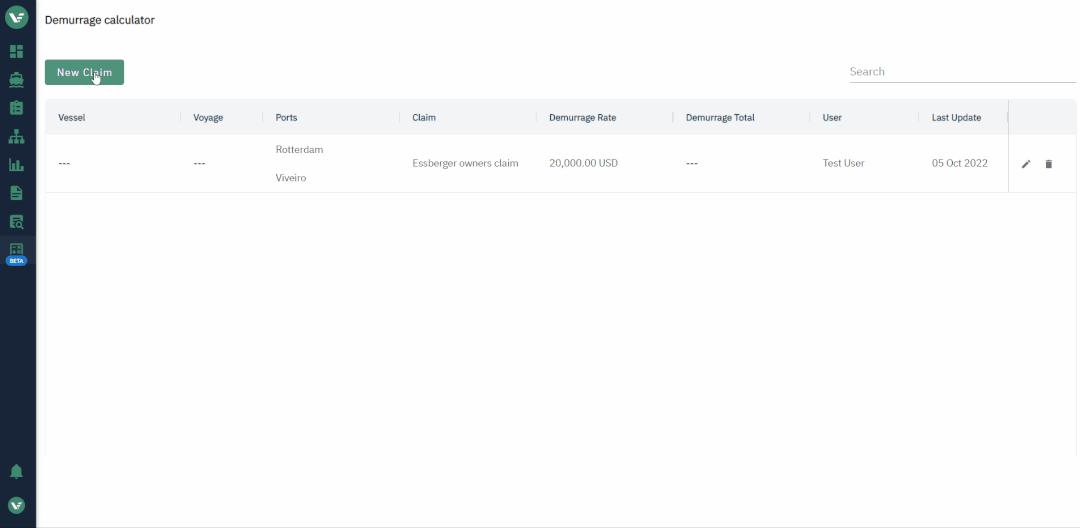
Related topics

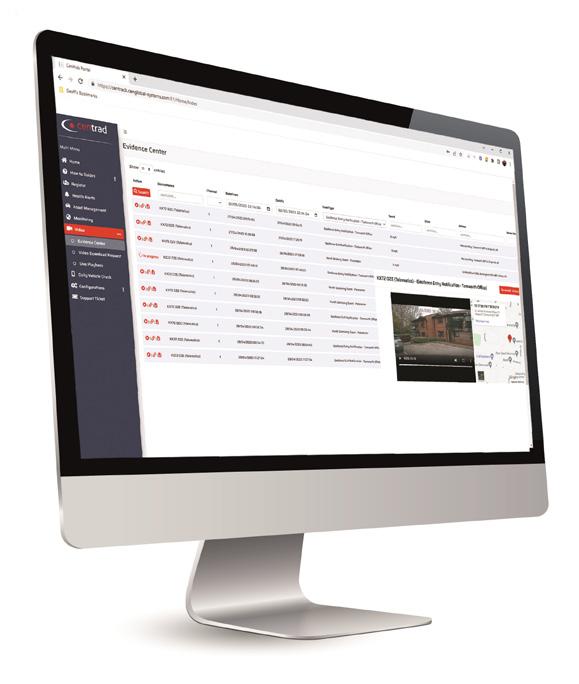
Centrad has announced a series of software updates along with multiple hardware upgrades including an AI-powered driver camera to their established Centrack Video Telematics System.
The upgrades are set to bring the highest levels of vehicle monitoring to the integrated end-to-end solution in aid of improving vehicle safety, increasing driver standards and reducing insurance premiums for fleet owners/managers.
Centrack works in conjunction with camera-based telematics systems to provide fleet managers with an accurate representation of what has happened in the event of an accident. This sophisticated system can accurately send a notification to the fleet manager’s desk-based dashboard in the event of: Harsh braking/accelerating, driver distraction or dangerous driving. It also provides integrated modules such as vehicle walk-around checks and automated accident management reporting.
Following listening to the needs and requirements of our customers, as well as taking stock of current and incoming legislation, we wanted to introduce a number of updates and innovations that would enable fleet operators to stay ahead of the curve with regard to vehicle safety and monitoring. These latest upgrades to Centrack will therefore not only bring increased intelligence and AI-driven systems to improve the safety standards of commercial vehicles in line with the latest DVS proposals, but also to considerably reduce insurance premiums.
Geoff Cross, Managing Director, CentradThe AI-driven driver facing camera is focussed on improving driver and road safety and will notify the fleet manager if a driver is captured in such actions as the use of their mobile phones, falling asleep at the wheel, smoking or lack of seatbelt when on the road and gives the fleet manager a clear perspective on how many of these situations occur and how to prevent them from happening in the future. This subsequently will allow operators to receive accurate reports of a driver’s behaviour while out on the road, ultimately enabling them to identify key areas that require improvement.
Additionally, Centrack has a geofence kerbside delivery feature that is activated automatically at the delivery location. Once the tail lift system is operated, the video footage of the delivery is automatically uploaded to the fleet managers dashboard software. This is done so each delivery or collection can be recorded in full to ensure the safe operation of equipment. The geofence system results in increased safety, compliance and a reduction in theft.
The Centrack Integrated mobile apps are provided for daily vehicle inspections, which can be recorded automatically with the geofence system. The inspection details and footage can then be uploaded to the fleet management dashboard with alerts going to the fleet manager if a vehicle leaves its geofence location without having been inspected.
The Centrack mobile app can also assist with delivery management, proof of delivery, vehicle tracking and also for live viewing and downloading of video footage. Mobile apps can run on Android and iPhones and tablets.
Centrack is already live with fleets that use the company’s Centrad video telematics across their fleets of hundreds of vehicles. The platform is designed to enhance the functionality of CargoWise and similar transport management systems.
The ongoing economic challenge is affecting all kinds of sectors and industries. In today's tough business environment, where costs are continually rising, companies across various industries are looking for innovative ways to streamline operations and reduce expenses where possible.
However, through technological advancements, businesses can utilise various new tools and strategies to overcome these challenges and drive efficiencies.
Forward Solutions, is a freight management software firm, know all about supporting organisations in becoming more efficient and slicker in their operations.
The company’s Managing Director, Richard Litchfield, discusses how technology can help with the continual rise in costs...
It is fair to say automation and artificial intelligence (AI) have revolutionised industries across the world, and the freight sector is no exception. Through the proper implementation of technologies, routine tasks can be automated, significantly reducing the need for manual labour in the process.
Our own software, Forward Vision, is famous for its live-tracking abilities, giving our customers the ability to follow the progress of shipments around the world in real time. This level of data can really help transform how a business operates, allowing predictions to become much more realistic and the mapping of resources can be more adequately applied, too.
Essentially, automation and AI can provide the user with more data to utilise and analyse, leading to quicker and more informed decisionmaking processes.
The role of predictive analytics should not be understated. Whether helping companies to forecast demand or optimise inventory levels, a thoroughly connected organisation leads to less waste and more gain.

By analysing past sales data, and other relevant factors, companies can make better-informed decisions about stock management, minimising the expenditures related to excess inventory and avoiding lost sales due to stock being unavailable. When correctly utilised, the use of predictive analytics in the supply chain can lead to a reduction in inventory costs of up to 15%.
Again, this is an area where more information, provided through technology, can help with predicting shipment arrivals, further lowering the associated costs when it comes to dealing with inbound logistics.
In the complex world of supply chain management, it is imperative to have seamless integration between various systems and technologies, in place.
While the potential benefits of technology in reducing costs and optimising operations are clear, organisations often face challenges when adopting new technologies. We know, from having onboarded hundreds of customers over the years, that there needs to be a thorough and clear process in place, to ensure processes and systems are accurately captured. Otherwise the technology that is designed to help, could instead hinder a business and its operations.
By investing in the right technology solutions, businesses can achieve substantial cost savings and increased efficiency. Moreover, technology can open up opportunities for creating additional value-added services and revenue streams that simply were not there beforehand.
Technology, where appropriately utilised, can be a powerful ally for companies in the face of rising costs. Through automation, AI, predictive analytics, and system integration, the freight industry can streamline operations, optimise efficiency, and unlock new opportunities for company growth. Fully embracing technology is not just an option but a necessity for businesses striving to thrive in today's dynamic and competitive landscape.
HOW CAN TECHNOLOGY HELP COMPANIES ADAPT TO CONTINUAL COSTS RISES?

Airbus partnership extension reaffirms commitment to support Astrocast's SatIoT technology roadmap, reinforcing Astrocast’s position as the leading provider of cost-effective and reliable satellite IoT solutions
Astrocast, a leading satellite IoT operator, announces the extension of its partnership with Airbus Defence and Space (Airbus), a global leader in the aerospace industry. This partnership enhances the capabilities of satellite Internet of Things (SatIoT) technology. It enables Astrocast to further increase its network capacity to provide the most reliable and cost-effective SatIoT solutions to its customers.
In recent years, the collaboration between Airbus and Astrocast has been instrumental to Astrocast. Since 2017 this relationship has enabled Astrocast to develop its communication protocol and modem software stack more effectively. This forms a core part of Astocast’s wider SatIoT technology. In building upon this successful collaboration, both companies have agreed to extend their partnership. Airbus will continue to provide extensive support to Astrocast, focusing on further enhancing both the Bandwidth and the Quality of Service. The reliability and quality of Astrocast’s SatIoT connectivity is already well recognized by the market since its commercial launch in 2022. Many organisations are currently benefiting from it. This includes the EU’s CiRROCCO initiative, the EU’s XGain initiative, and the likes of Avirtech, Digitanimal and ArrowSpot, to mention a few. Through this partnership with Airbus, Astrocast expects to continue capitalising on their shared technological successes and further enhance SatIoT Bandwidth and Quality of Service for all customers. This will allow them to benefit from a continuous improvement of data transmission capacity, efficiency, latency and security. Customers will, in turn, be able to further optimize their operational efficiency according to their needs.
Through this partnership extension, Airbus reaffirms its commitment to Astrocast's technology roadmap and its leadership in the SatIoT space. This collaboration also lays the important foundation for potential convergences with the future 5G NTN IoT communications standards that are currently in discussion for LEO constellations. In time, these enhanced capabilities for collecting and exchanging critical data with IoT assets from multiple applications will benefit users across various key industries worldwide.
Astrocast is not only poised to address these challenges, its roadmap is designed to take them head on for the industry. Therefore, we’re excited about working together and achieving more success.
François Gaullier, SVP Telecommunications & Navigation Systems – Space Systems, Airbus Defence and Space.
We are thrilled to deepen our partnership with Airbus and leverage its unique expertise in advanced satellite IoT technology. This collaboration reinforces our commitment to continuing to provide our customers with the most reliable and efficient SatIoT connectivity solutions on the market. With Airbus's support, we will further solidify Astrocast's position as the go-to satellite IoT operator.
Fabien Jordan, CEO, AstrocastThis extended partnership between Airbus and Astrocast strengthens the strategic technology collaboration between the two companies, and will bring critical benefits to their customers, and the SatIoT sector. It exemplifies Astrocast’s strong commitment to its customers – and continuous enhancement of its core technologies, that continue providing end-users the most reliable and cost-effective SatIoT solutions on the market today. Furthermore, it underscores the strong confidence Airbus places in Astrocast's capabilities, as they work together to jointly push the boundaries of satellite IoT.
Logistics company relies on sustainable transport on Rab and Lošinj. Electric vans used for deliveries to final customers in urban areas

Providing delivery services on Croatian islands with their small towns and narrow streets has never been easy. This is why Gebrüder Weiss has started to offer its customers a particularly eco-friendly transport solution this summer: the logistics company now uses electric tricycles for deliveries to private homes and companies located on the islands of Rab and Lošinj. These vehicles have a low-noise but high-performance electric motor and are easy to maneuver, which makes them perfect for deliveries in small towns, tourist resorts and national parks – above all during the holiday season.
It is important to maintain the islands’ authenticity and uniqueness. By using our electric tricycles to provide delivery services we help the island oases retain their charming character. And our customers will receive the goods they ordered online in an eco-friendly manner, says Barbara Bujačić, Country Manager Croatia at Gebrüder Weiss. The vehicle can transport consignments with a total weight of up to 500 kilograms and cover 50 kilometers per day on one battery charge.
In addition to electric tricycles, Gebrüder Weiss Croatia has recently started to use electric vans for deliveries to final customers in Zagreb as well. Whether furniture, washing machines, fridges and freezers or sports equipment – Gebrüder Weiss delivers the products wherever the customers need them. An electric van is able to cover 170 kilometers on one battery charge, allowing up to 35 eco-friendly deliveries per day. These vehicles are perfectly suited for transport in urban areas,
and even reduce the roar of traffic thanks to their low-noise electric motor. Their batteries are charged via the company’s own Photovoltaic system recently put into operation at the company’s main location near Zagreb. The solar panels installed on the roof of the logistics facility boast an annual total peak performance of 500 kilowatts and contribute to saving about 107 tons of CO2 per year.
Gebrüder Weiss implemented these sustainable measures in Croatia to take another step towards achieving the climate neutrality targets by 2030. For several years, the company has invested in alternative drives for heavy load transport, developing ecologically compatible solutions for the last mile. Thus, for instance in the Greater Vienna metropolitan area, electric trucks are used for local transport and for deliveries to final customers in Austria and Hungary. Moreover, one of the first hydrogen trucks worldwide has been in use in Switzerland since 2021. The acquisition of additional hydrogen and electric trucks in Germany is scheduled for 2024.
Opportunities to network and promote your services.

Related topics
Conferences
Expositions
Networking
Sponsored by
The biggest names in breakbulk, project cargo and heavy lift will be exhibiting at AntwerpXL when it returns to Antwerp Expo 28-30 November 2023.
It’s fitting that an event hosted at the home of breakbulk will feature suppliers from around the world and across the entire breakbulk supply chain. Cargo owners and carriers, ports, freight forwarders and a host of shipping, maritime and supply chain experts will be showing their products, services and latest innovations at the three-day event.

Major names already signed up include C.Steinweg, Conti-Lines, Grimaldi Group, MSC, Spliethoff, Fednav, BBC Chartering, Konecranes, Varamar, and Zuidnatie. They will be joined on the expanded show floor by companies such as Mammoet, Chipolbrok, Saudi Ports Authority, Katoen Natie, Deufol Belgie, Caribbean Line and Aertssen, Mantsinen Group, Aprojects, Navonus, Q Terminals, Port of Sunderland, Ultrabulk and Fracht Polytra.
Many exhibitors use the event’s platform to showcase their products and services, launch new technologies and make major announcements. Others are drawn by its the huge networking opportunities. After all, as the only event solely dedicated to the breakbulk industry, and hosted at a global gateway, AntwerpXL is an ideal place for the industry to meet, connect and do business.
Margaret Dunn, Portfolio Director at AntwerpXL, comments,
Speaking at last year’s event, Frank Voet, commercial manager at Grimaldi
We’re in Antwerp because it’s one of the biggest ports in Europe. AntwerpXL is a great opportunity to show off Grimaldi Group’s vast range of services all around the world.
Reinaaart Van Den Broek, Northbound Trade Coordinator Europe Service at Universal Africa Lines agreed: Antwerp is the gateway to Africa and breakbulk, so we have to be present and meeting all our partners and prospects.
The maritime breakbulk industry is growing fast and facing a pressing number of changes, challenges and opportunities. This means innovation, new thinking, getting even closer to current partners and forging connections with new ones are all more important than ever –and as our exhibitor list already shows, AntwerpXL is going to be the place for this to happen.
Five Transport Managers are celebrating today (xx August 2023) after being announced as finalists in Logistics UK’s Transport Manager of the Year 2023 competition, supported by BP, which recognises and celebrates Transport Managers across the UK and their contributions to industry.
Finalists took part in an online legislation and compliance knowledge test, as well as a case study presentation detailing their achievements and examples of leadership in the past 12 months to fight off the competition and become shortlisted.
I would like to thank everybody who applied and took part in Transport Manager of the Year 2023 and congratulate all those shortlisted. The logistics industry is vital to the growth of our economy and Transport Managers play a significant role in the process. We have witnessed a tremendous display of skills and knowledge across the judging process and I look forward to seeing who comes out on top!
Kevin Green, Marketing & Communications Director, Logistics UKThe shortlisted entrants for Logistics UK’s Transport Manager of the Year are:
Andrew Moore
Transport Manager at FSM
Chris Pratt
Transport Manager at EPD Insulation Group Ltd
Fiona Hamilton
Regional Transport Manager at ACS&T Logistics
Kori Rewcastle
Transport & Compliance Manager at JR Dixon Limited
Sarah Wilkes-Jones
Transport Manager at Brakes/Sysco
Those shortlisted will be granted free entry to Logistics UK’s Transport Manager conference in Birmingham on 30 November 2023, where the winner will be announced. Prizes include a £1,000 holiday voucher for first place and a £500 shopping voucher for second place, with both also receiving two tickets each to the eagerly anticipated 2023 Logistics Awards.
Following the success of Multimodal 2023, organisers have announced next year’s event will take place from 11th–13th June 2024 at the NEC in Birmingham.
Delegates were spoilt for choice across the four theatres to attend sessions, training and talks covering an array of topics. Some highlights include:

Multimodal 2023 was the biggest yet, enjoying a sell-out exhibition, record visitor numbers and the most ever entries to its awards event. Over the three days of the show in June, 320 exhibitors showcased their products and services to a record 12,267 visitors – an increase of 25% on last year. In addition, the coveted awards ceremony received over 250 entries, beating previous numbers for this leading industry event.
Organisers were pleased to welcome exhibitor newcomers including Plan Transport, PwC, MG Invest, Calais Promotion, 3squared, ErgoPack, Miran Logistics, Ziegler Group, ICL and Payoneer, joining established supply chain industry exhibitors.
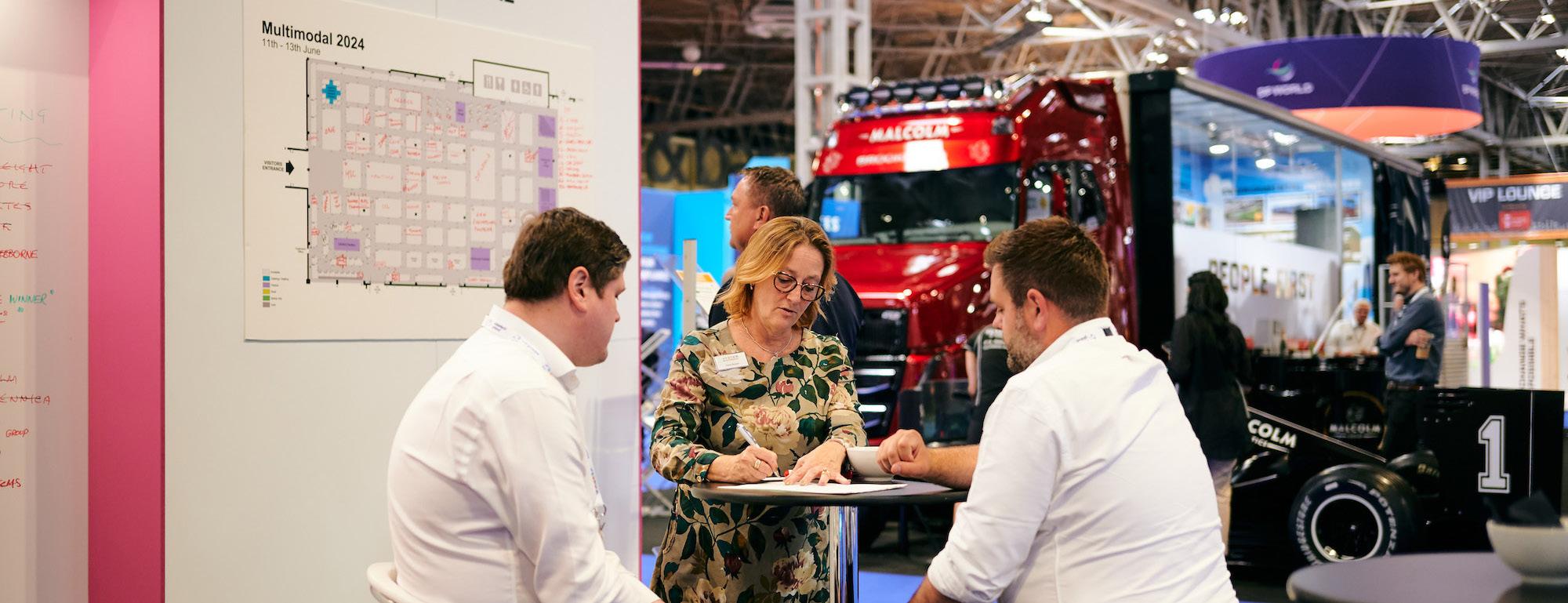
But the success of this year’s event cannot be determined by numbers alone. The assortment of expert speakers played a large part in its triumph. Among the 55 speakers were:
• Jon Gore, Head of Primary & Global Logistics, Tesco
• Sally Wright, Head of Delivery Transport Hub, Nestlé UK and Ireland
• John Lucy, Director, Liverpool Freeport
Lunch
• Hizmy Hassen, Chief Digital & Supply Chain Officer, Apollo Tyres
Keynote speaker
• Christian Pryce, Chief Commercial Officer, Port of Dover
• Joep Kusters, Senior Vice President, Head of Europe, Coyote
Details to follow...
Peak Season Preview 2023

Digitalisation of International Trade and Transport
A Rail Retail Revolution
Roadblocks to sustainable freight – and how to overcome them
Cargo integrity
The UK’s new approach to import controls
– understanding the Target Operating Model
The 2023 event saw the introduction of The Google Digital Garage, where visitors received free training to improve their digital skills.
With the buzz Multimodal 2023 still in the air, there’s no better time to save the dates of 11th – 13th June 2024, for what will be another popular exhibition.


Don’t miss out on any of the latest news, sign up to the Multimodal newsletter to stay informed. 16

Documented permission to pass that a national customs authority grants to imported/exported goods so that they can enter/leave the country.
Related topics
Bonded warehousing
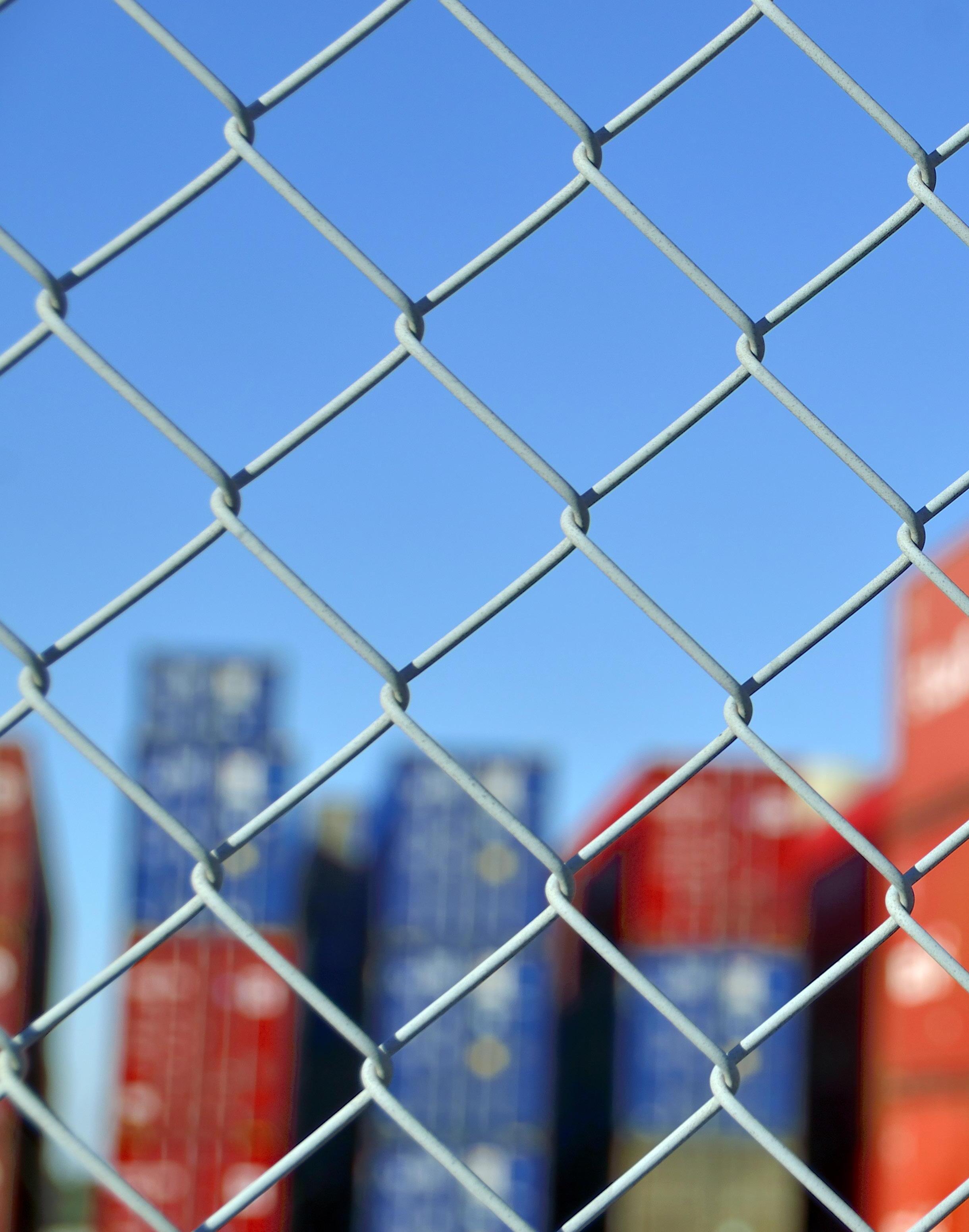
Customs brokerage
Duties & taxes
Sponsored by
As Operation Brock - a contraflow system designed to keep traffic in Kent moving when there is disruption to travel across the English Channel – once again caused delays to those travelling in Kent and across the UK border last weekend, business group Logistics UK is urging government to find a longer-term solution to protect the UK’s supply chain.
While the implementation of Operation Brock can help the flow of traffic during peak periods, it disrupts the flow of vehicles – and goods – to and from the Continent and its implementation does not take into account the needs of drivers, who can be stuck in their cabs or cars for hours on end with no food or access to hygiene facilities. Leaving vehicles idling at the side of the motorway causes delays and disruption to supply chains, increases operating costs for importers and exporters and will ultimately deter businesses from sending their vehicles to the UK. Our members need a long-term solution to crossing the UK’s borders which keeps freight moving freely, rather than the on again, off again Brock scheme: the constant uncertainty it causes creates unnecessary confusion and delays that are not helpful for the future competitiveness of UK trade.
Nichola Mallon, Head of Trade and Devolved Policy, Logistics UKAs Ms Mallon continues, part of the solution for improved cross-border flows could be found in infrastructure investment. Road and rail improvements are crucial to help ease congestion heading from the Short Straits and government must act to reduce the economic harms caused by issues on critical parts of the network. Following the UK’s departure from the EU, every passport has to be checked. Despite the best efforts of the Port of Dover and Le Shuttle to keep transition times through the border down, these new checks are causing delays at peak passenger periods, and this is even before the new EU Entry and Exit Scheme is introduced next year. “To ensure that freight can move as seamlessly as possible to its final destination, we are urging government to engage with the EU to ensure opportunities for digitisation of documents can be maximised, so that checks can be completed away from the border, reducing the knock-on disruption and delays for goods consignments. It is of huge concern that the government has yet to set out a workable model for the Short Straits under its new Border Target Operating Model, which will introduce new controls on imports from October this year. Serious questions remain as to whether the Short Straits will be treated as a single point of entry, what charges the government might apply and whether drivers selected for any checks will have the flexibility to stop at either the Border Control Post on the M20 (Sevington) or the A2 (Bastion Point) depending on their route and destination. Logistics UK and its members have been pressing for a workable solution at the border since the UK left the EU: after years of talking, it is now time for government to take action to protect the UK’s highly interconnected supply chain.
The Operation Brock traffic management scheme controls the flow of traffic into and out of the Port of Dover, and has an impact across Kent. When the scheme is in operation, HGVs are queued along the hard shoulder of the M20 until space is available for them in the Channel ports.
As the market leader in overland trailer services between Türkiye and the UK, Davies Turner welcomes today’s news that the UK and Türkiye have committed to negotiate an updated Free Trade Agreement (FTA) designed to deepen the trade relationship between the two countries.

As a major facilitator of trade between the two countries, Davies Turner operates multiple daily two-way overland and multimodal trailer services between the UK and Türkiye in a long-standing partnership with Istanbul-based Ekol, one of the country’s largest freight and warehousing operators.
Tariff-free arrangements like the one signed in 2020, which was rolled over from when the UK left the EU, covering goods, but not areas such as services, digital and data, support the trading relationship between the UK and Türkiye, and bring benefits to UK importers and exporters, as well as the freight forwarding and logistics companies that manage their supply chains. That’s the opinion of Alan Williams, company director, who adds that a new broader deal could boost trade and help businesses maximise opportunities in this area.
Williams adds: The tariff-free trading agreement signed in 2020, along with the problems in long distance supply chains, which have increasingly prompted traders to turn to Türkiye as an alternative source of supply to countries in Asia, has had a major impact on the uptick in trading volumes between the two countries over the last two years. In welcoming the news, we would also be delighted to provide input into any consultation that is conducted ahead of the start of negotiations, which is expected in 2024.
The CNS suite of products is designed to provide users with the most efficient and robust technology, combined with a world-class support helpdesk.



Simple, intuitive, and easy to use cloud-based platform to submit CDS, CHIEF and UK transit declarations. Our technology allows users to submit declarations for CNS, Pentant and MCP ports, with CCS-UK integration on the roadmap.

Our suite of Cross-border Management products, BEEMS, has been developed to remove complexity and reduce paperwork, saving significant time and offering reassurance that movements are complying with relevant regulations.






BEEMS Border Management products support businesses managing movements across borders on RORO pre-lodgement routes between the UK and EU, providing direct access to all the relevant customs systems.










HMRC-approved port community system that supports many of the largest maritime ports in the UK, enabling business and government stakeholders to securely and reliable exchange information and collaboratively manage cargo movements.
The system is fully approved by HMRC for imports, exports and transhipments at temporary storage locations, and provides users with real-time visibility of unit and cargo status as cargo moves through the port environment.
Organisations and bodies that provide essential support to the freight and logistics industries.

Related topics
Warehousing
Insurance & legal
Vehicles & equipment
Sponsored by
The integration offers instant access to competitively-priced Less-Than-Truckload (LTL) cargo insurance to Uber Freight’s network of shippers facilitated through Redkik’s robust software. This seamless, real-time insurance coverage is available at the point of booking a shipment for transport, aligning with the fast-paced, evolving demands of the modern transportation industry
Today marks a significant milestone in supply chain management as Redkik, a leading global software company, unveils a dynamic collaboration with Uber Freight. This strategic collaboration will revolutionize per-load cargo insurance, integrating Redkik’s stateof-the-art InsurTech software into Uber Freight’s Shipper Platform.
We are proud to join forces with the forward-thinking team at Uber Freight. Together, we are bringing substantial time and cost savings to the Uber Freight network, and reinforcing our commitment to delivering progressive, intelligent insurance solutions.
Chris Kalinski, CEO & Founder, RedkikUber Freight has built one of the world’s largest digital freight marketplaces and managed transportation networks. Leveraging worldclass logistics technology and industry expertise, Uber Freight arms shippers of all sizes with the tools, transportation services, and insight they need to manage today’s complex freight market. In collaboration with Redkik, the latest Insurtech integration further streamlines the booking process, providing shippers with real-time access to LTL cargo insurance in just a few clicks.
Our mission is to enhance our customers’ supply chain strategy and equip them with the necessary tools and service to deliver –cargo insurance is no exception. By integrating Redkik’s innovative Insurtech solution directly onto our Shipper Platform, we’re able to streamline the process for our shippers and ensure they have the coverage they need 24/7.
Michael Bailey, Product Manager, Uber FreightRedkik is a trailblazing global software company, on a mission to streamline and enhance the insurance industry within the logistics and transportation sectors. Through leveraging advanced artificial intelligence and machine learning, Redkik’s proprietary technology produces instantaneous quotes, backed by premier insurance companies, and based on accurate data sets. This approach ensures reduced risk and maximized coverage for all shipment types.
Uber Freight is a logistics platform and partner that is reshaping global logistics for shippers and carriers of all sizes. Backed by a suite of logistics solutions and services grounded in innovative marketplace technology, Uber Freight transforms entrenched practices around pricing and booking freight and brings reliability, flexibility and transparency to the movement of goods. With over $18 billion FUM, Uber Freight has built one of the world’s most comprehensive logistics networks consisting of approximately 100,000 digitally-enabled carriers and thousands of shippers, from small businesses to Fortune 500 companies, including AB Inbev, Nestle, Land O’Lakes, and many more. For more, visit uberfreight.com.
Transporting day-to-day goods like food and toiletries has always come with challenges and pressures and having items that are daily necessities for millions of people around the world and must be available at all times is a given. I’m sure we all remember the drama when toilet roll shortages swept across Europe during the height of the pandemic.
However, when analysing the current state of the market, we can see two distinct trends. On the one hand, the market is softening and the capacity crunch is reducing after tightening in 2021 and the first half of 2022. Indeed, the future prognosis for the global FMCG market is generally positive. It is predicted to grow by €284.4 billion by 2026, largely due to the growing preference for eCommerce online distribution.
However, at the same time, impending recession and rising inflation is causing production demand to drop and prices to rise. Consumer goods companies are now dealing with billions in additional costs, thanks to rising prices for raw materials and transportation. These are generally higher for FMCG products, due to specific temperature and humidity requirements.
This is likely to continue throughout 2023. But, the big question is, what does it all mean for businesses in terms of driving future growth and success?

With these trends in mind, FMCG businesses are facing a delicate balancing act of keeping costs down while meeting the needs of increasingly demanding consumers who have considerable purchasing power. An empty shelf isn’t just a lost sale for someone – it's a reason for customers to switch to another brand.
Those involved in FMCG supply chains are also looking to drive as much value as possible from their operations yet ensure resilience against disruptions that, according to McKinsey, are becoming ever more frequent. How well FMCG suppliers achieve this balance will determine their success in 2023 and beyond.
Achieving an equilibrium between value and resilience starts with digitisation. The truth is that FMCG logistics aren’t as digitised as they should be. They still rely on plenty of paper-based processes that cause inefficiencies. The good news is there’s a drive within the industry to replace them with e-documents and digital processes.
Additional value can also be realised by implementing automation to save time on elements such as time slot and yard management processes. As a result, FMCG businesses will be able to streamline and enhance their tactical activities, which is crucial since millions of people worldwide depend on FMCG supply chains every day, as well as the time-sensitive storage and consumption windows for many perishable products - some of which are only available for a short period of time.
Embracing a digital-first mindset will empower FMCG businesses to deliver the speed and convenience that consumers are looking for, while optimising their operations and building greater profit margins. At the same time, it will provide resilience by making it easier to adapt to disruption. A lack of resilience can be fatal for modern FMCG brands, but achieving it requires businesses to think beyond basic automation by focusing on data and relationships.
The only way FMCG businesses can truly ensure resilience is by enhancing their ability to execute on market and operational insights. This is what will enable them to react to fluctuating customer demands and adapt to unforeseen events such as border closures or dangerous weather conditions. With the right data at their fingertips, businesses will be able to make more data informed decisions in a timely fashion – relying on actionable insights rather than gut feel – and build optionality into their operations.
At the same time, tapping into data is what will provide balance in terms of optimising their operations. Consider a day to day product such as toilet rolls which is transported from warehouses to multiple countries and hundreds – if not thousands – of locations within those countries on a near-daily basis. These transports may have to cross international borders, adapt their routes due to traffic jams or road closures, and sync up with countless other transports. The logistics involved are staggering, but data can act as the common thread that ties such a complex operation together.
In order to succeed, businesses within the FMCG supply chain must be prepared to build deeper relationships and drive collaboration with other industry stakeholders within one connected network. They must work together to realise the economic gains available. For example, there’s no need for a truck to drive hundreds of empty miles to pick up a load when another may be unloading nearby.
A deeper collaboration through a common platform can provide the balance that is essential – whether that’s by increasing resiliency, providing wider access to market data, reducing costs, or enabling more sustainable supply chains.

Ultimately, the goal of any FMCG stakeholder is to ensure that products make it to customers on time, every time. The key is to maintain the flow of goods, no matter what challenges come their way. And, like any ecosystem, the world of FMCG transportation is all about balance. Taking a digital-first approach driven by data and relationships will help FMCG businesses balance their operations in a way that drives sustained success.
Tim Bruun, Head of Customer Management – Retail & FMCG, Transporeon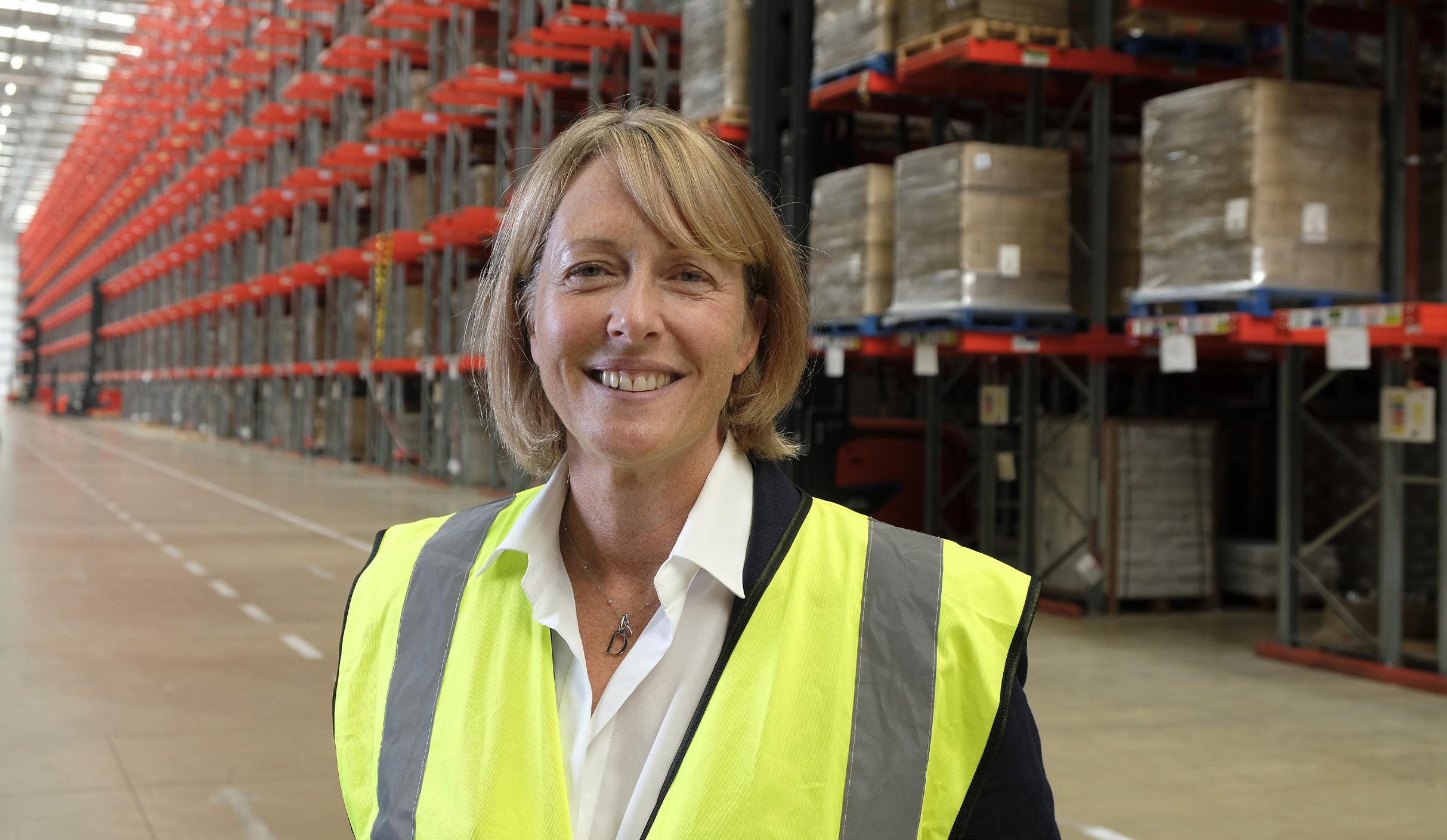
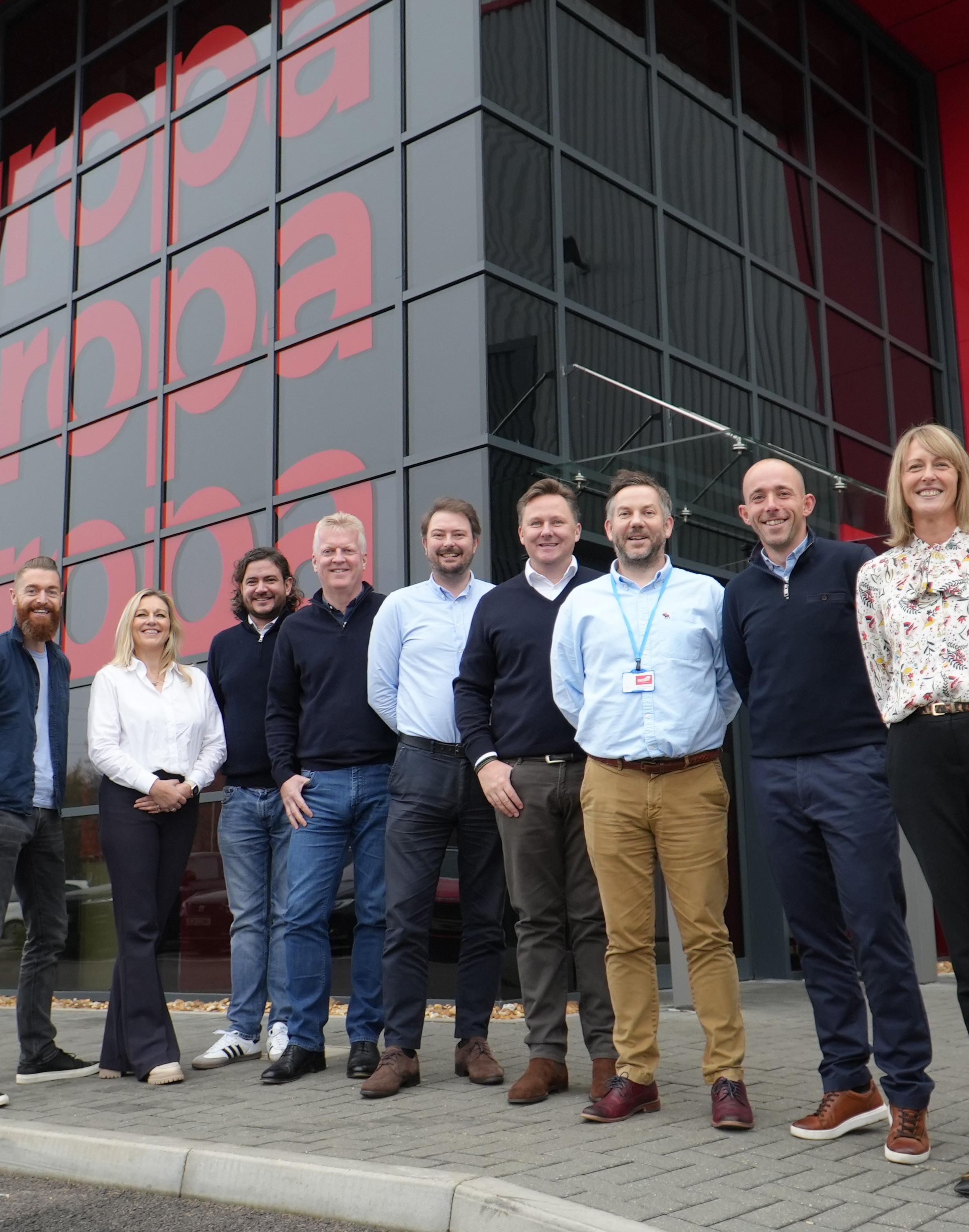
This month at Forwarder we were thrilled to interview Europa’s COO, Dionne Redpath, who is also the Director responsible for the growth of their warehousing division. Here’s what she has to say about innovation in the warehousing space.
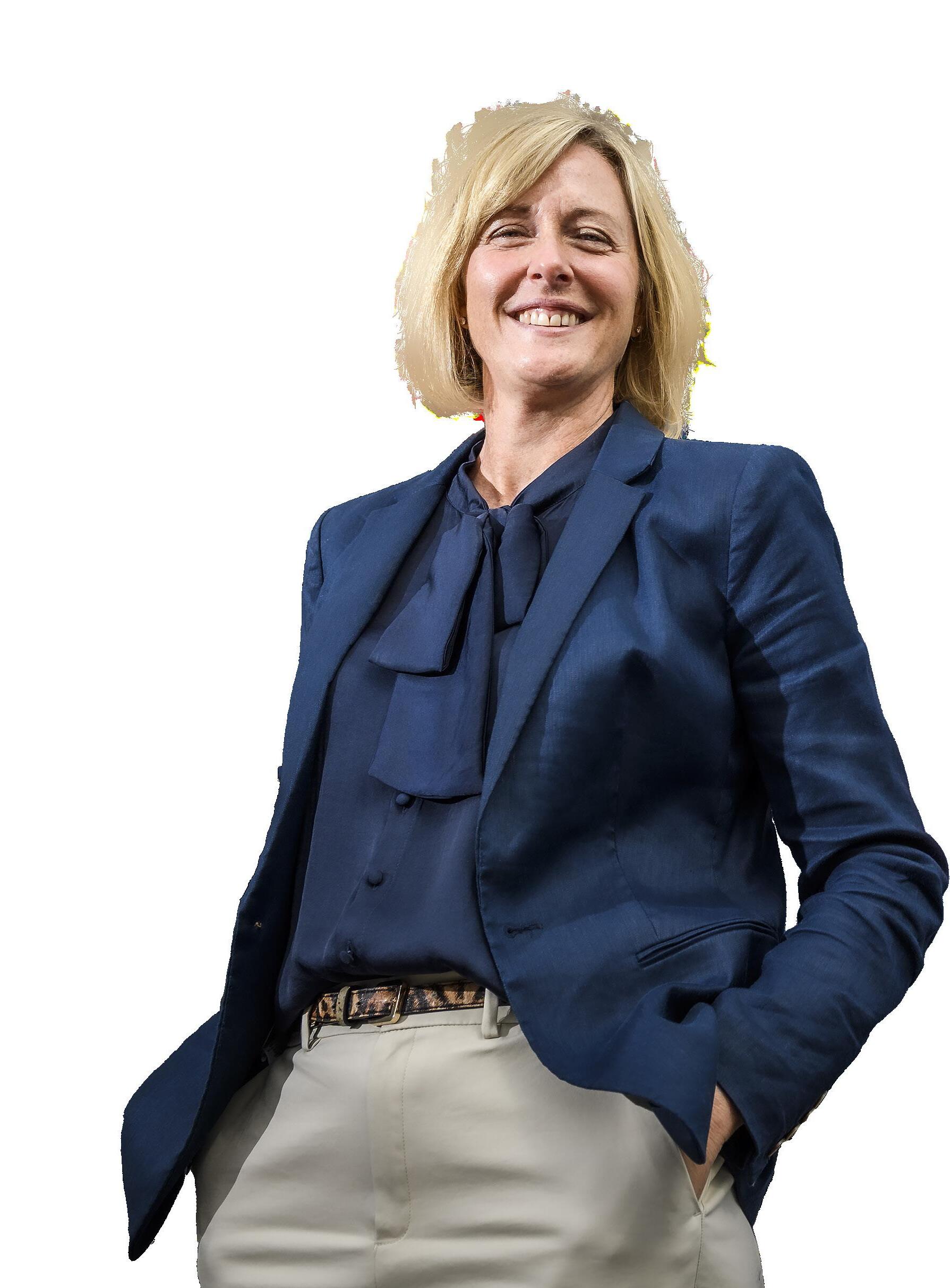
It has to be the team. Every day we come into work and we think ‘How can we optimise this?’ There’s a culture of everyone working together with the same goal in mind and I love that about Europa.
We've been through a journey over the last three years to fully integrate our warehouse solutions. There's a sense that we're the new kids on the block when it comes to warehousing, but we've been doing it for years, just on a smaller scale than we do now. We've come a long way. Rather than thinking, this works, great, we are constantly thinking 'How can we make this even better?'
In 2020, we invested in opening our multi-functional 3PL fulfilment centre in Corby. This enables us to provide flexible solutions to customers' problems, whether they’re a global corporation or a startup. Our ambient warehouse spaces are secure, optimised and open for business. Once we realised how quickly our spaces were filling, we started on our next big idea: developing an Automated Picking Line. It was a milestone project for us and didn’t come without its bumps. However, having developed the concept in early 2021, the system picked its first product in September 2021 and was running seamlessly from March 2022.
Our focus is always on customer care. We anticipate supply chain challenges and put the systems in place to problem-solve. We work very quickly once we’ve identified a new challenge, it’s in our nature to want to investigate these issues and come up with straightforward remedies.
They love it! There’s a part of our team who could have felt threatened by automation, but they don’t. They see the opportunity that these developments offer, from improving job satisfaction to long-term career development. I’m grateful to everyone for that, for their unshakeable determination to go on this journey with us and to help us in solving these challenges for our customers.
We don’t take on these projects for the sake of it, there’s always a customer need at the core. I think that’s what drives our confidence and determination because we know it will make things better for our customers.

Each project is planned out meticulously, with customers updated at every stage. We test everything rigorously with quality checks at every stage of development. If it isn’t working, we’ll park it and dream up something better.
We develop quality checks at regular intervals, both automated and people-checked. It means there’s no room for errors, in fact since our automation project began we have a 99.999% accurate pick rate.
It’s not just about knowing that each innovation is effective, but about communicating this to our customers, reassuring them that everything is on track and that their high-value goods are safe.
One of our loyal customers, Simon Barnes at B-Corp Funkin, said, It’s the people at Europa who make a difference to our business proposition. The team shows a real willingness to help and support us as we look to meet the ever-changing demands of the marketplace in the coming years. [There is] a desire to make continuous improvements to the service provided. I think that this statement sums up how we work, and how we embrace innovation.
Exactly. We’re always looking to help our customers in some way. From managing the returns process to advising on new routes to market – it keeps us focused and gets us out of bed in the morning.
We implement the latest security technologies as an extension of our quality-checking measures. If our automated picking machine flags an error we can easily identify where and why that error occurred to fix it in real time.
We have a lot of plans on the horizon and we’re excited to see what the next few years will bring – but I think I’ll save those for the next interview.
Thank you to Dionne at Europa for speaking with us, it was an absolute pleasure. If you want to hear more from Europa, watch this space, we’re sure they’ll be speaking at a Forwarder Event soon.
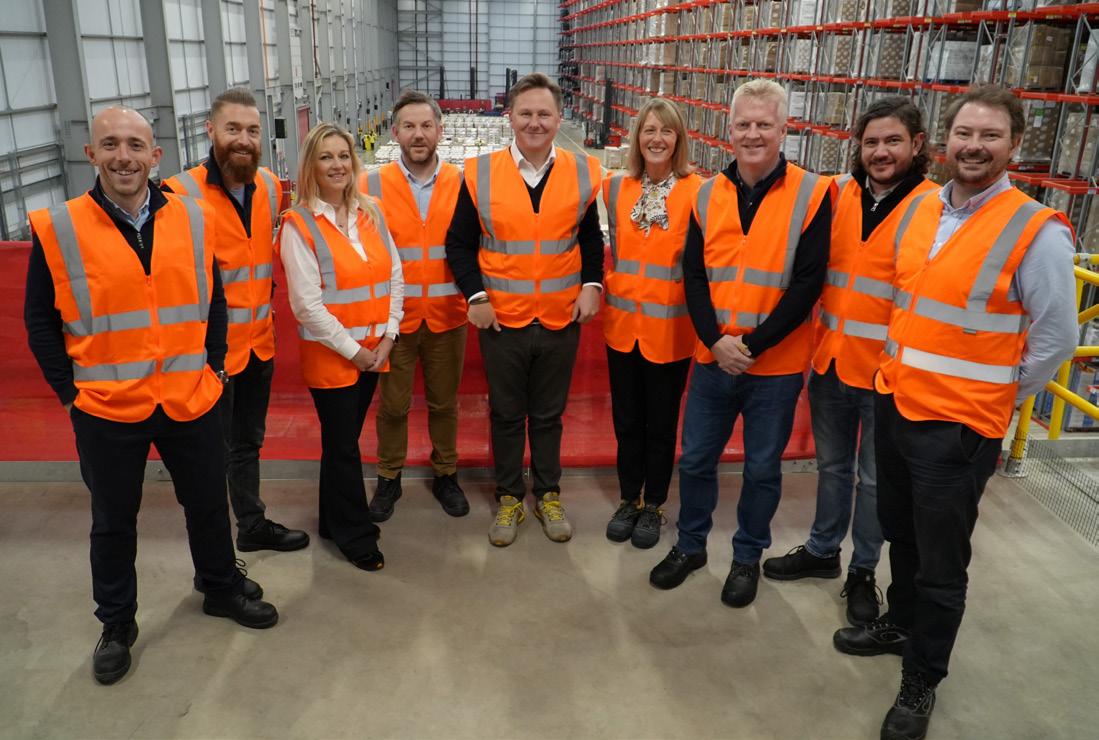
Taking logistics by storm, Europa is expanding its divisions and capabilities. With over 1,400 people globally and a 13.2m turnover across three divisions, they’re rapidly becoming one of the leading - and most innovative - logistics powerheads. With the aim of doubling turnover every 4 or 5 years, Europa is growing at pace and taking its existing customers on the journey.
CEO Andrew Baxter was the first person to grace the front cover of FORWARDER magazine in 2016. His entrepreneurial spirit, passion for technology and friendly energy are central to their growth. He explains: We have a thirst to solve our customer’s supply chain challenges. That’s how we innovate. We see our customers’ problems and they become our problems. We think, ‘How can we help? What else could we be doing?
At Europa, every element of the supply chain has a person behind it driving continuous improvement. Split across three divisions: Road, Sea and Air, and Warehousing, the Europa team provides seamless integration across the supply chain.
Since Andrew acquired Europa in August 2013, the business has increased its turnover by 400 per cent. Despite this impressive growth, Europa is resolved to deliver one thing: continuous improvement for customers.
Dionne Redpath, Group COO and Director of the Warehousing Division describes the team’s focus:
Innovation to us can only be about optimising our processes, systems, and products to drive efficiencies and cost-savings for our customers or support their growth journey. This is possible because we listen to our customers, their wants and needs are at the heart of what we do.
Innovation runs across their three divisions, from Brexit-busting Europa Flow, a unique DDP Customs product, to a bespoke automated picking solution. Aimed at delivering end-to-end supply chain solutions, Europa is constantly evolving.
In 2020, Europa opened its dedicated 3PL fulfilment centre in Corby, a multi-functional space that supports companies of all sizes and needs, from start-ups to global corporations. Europa is fully committed to providing solutions to support business growth. They’ve worked with start-ups and supported their journey to SME and beyond. The Corby site has been a success from the start, but no sooner than it had opened, Europa was onto the next big plan: automation. Each project leads seamlessly into the next, with teams all focused on the bigger picture.
Having invested significant resources into developing tech, Europa is home to an 80-strong IT team deployed across the three divisions. They aim to create systems that increase productivity, streamline processes, and develop new products to enhance their offering. Not easily distracted by the latest shiny tech, the team challenges new ideas by honing in on customer problems.
Dionne says: We could be investing in robots, but we wouldn’t do that without a customer need. It’s about solving problems and testing our ideas rigorously to maintain the highest standards possible.
Channelling this energy, the team offers reassurance to customers, talking them through the benefits of the latest innovations and absorbing any risks to their business. Quality is paramount at Europa. Through frequent checkpoints along the supply chain, they provide seamless, safe and cost-effective solutions from end to end.
Value added 3PL and palletised storage company, Europa Warehouse, works to facilitate the business expansion targets of cocktail retail brand, FUNKIN Cocktails (FUNKIN), with stronger inventory management and daily stock processes.
FUNKIN, a well-established brand name in the food and drink sector, has become the first cocktail company in the UK to be granted B CORP certification for its social and environment performance. Founded in 1999 with bartenders in mind, the company is the number one cocktail brand in the UK on and off trade, with its extensive range of purées, mixers, syrups and ready-to-drink (RTD) cocktails.

Following an initial contract with Europa Worldwide Group in 2015, award-winning Europa Warehouse continues to deliver pick, pack, warehousing and transport services to FUNKIN, on a contract now worth over £1m.
A dedicated team at Europa Warehouse, supports the brand all-year round, both operationally and through administration support. It provides a highly personalised service, allowing FUNKIN to meet customer demand and expand its consumer and business-to-business portfolio.
Lukas Skowron, General Manager at Europa Warehouse, is responsible for overseeing these warehouse operations. He explained: Our approach is very much about working in partnership with FUNKIN as an extension of their own team. We make every effort to understand their needs and flex our service accordingly.
Just this past year, we have been able to allocate additional pallet space in our warehouse to support FUNKIN with their business expansion targets. We have also strengthened our inventory management and daily stock take processes to improve accuracy to within a 0.009 per cent margin. FUNKIN is an incredibly valued customer, and we look forward to working alongside them to provide an even better service, wrapped in passion and personality, which will enable them to scale up in line with their ongoing growth plans.
On an ‘average’ week just under 48,000 cases are despatched from Europa to FUNKIN’s wide range of customers across both the On and Off Trade. This is up from 41,500 case per week in 2021 as the business continues growth of just over 15 per cent year on year. FUNKIN is also likely to see a continued increase in online sales because of the cost of living crisis where, according to the British Retail Consortium, people are more likely to entertain at home. Plans are quickly put in place by Europa to boost team capacity when order levels spike, ensuring fulfilment continues in the most timely and cost-effective way.
“The introduction of a team leader on our account has helped us to take a big step forward in creating a more efficient operation. More recently, perpetual inventory checks from the stock team have also been a real success in minimising picking errors overall.
At FUNKIN, we see this relationship going from strength to strength, because under the current management there is the right attitude of cooperation and understanding, and just as importantly a desire to make continuous improvements to the service provided.
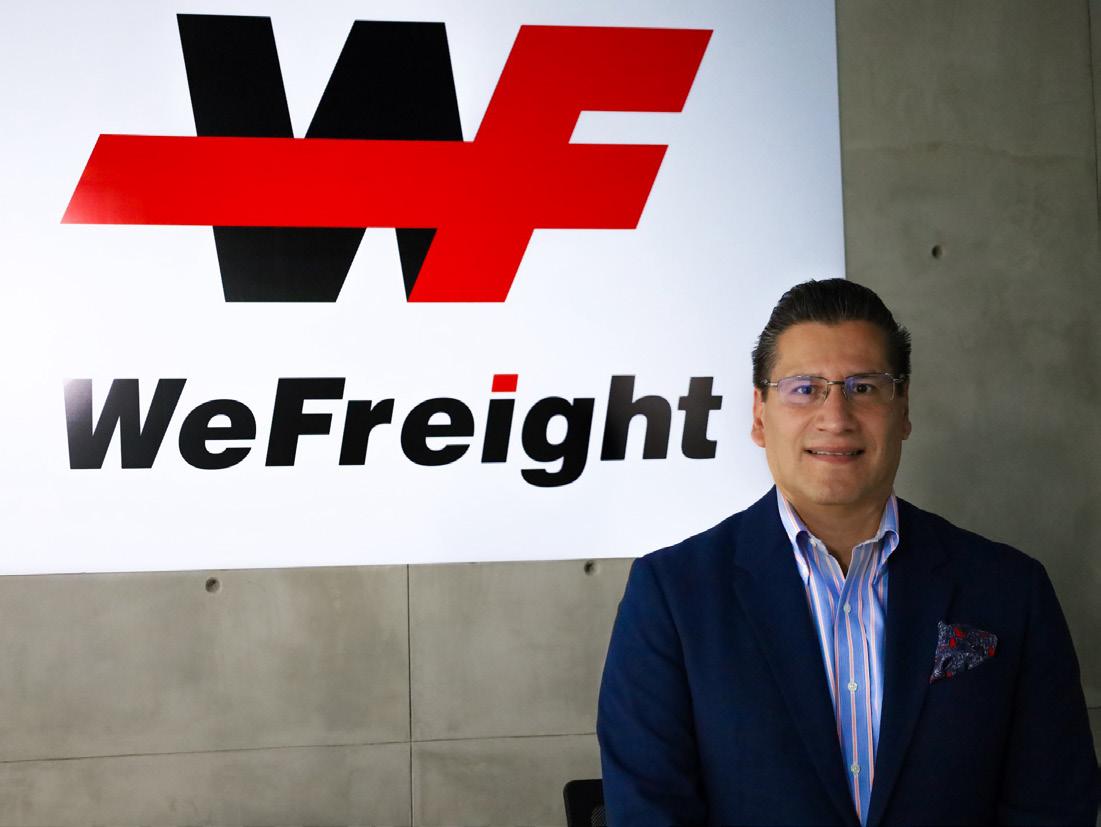
WeFreight, a leading emerging markets freight forwarder, is pleased to announce the official commencement of its operations in Mexico. This expansion marks another significant milestone for WeFreight as it continues to establish itself as the agile leader in emerging markets logistics.
Ingo Kloepper, Global Managing Director at WeFreight, highlighted the significance of the expansion, stating, We are pleased to launch our operations in Mexico, which is a market with solid growth potential. This move represents a strategic step forward for WeFreight as we continue to strengthen our global footprint and bring our unique perspective to the world of logistics. We believe that our digital approach, combined with our deep understanding of key industries, will enable us to offer unparalleled value to our customers in Mexico.
Experienced executive Miguel Trejo, Managing Director of WeFreight Mexico, commented, Mexico is a dynamic market with a growing economy, and we are delighted to be part of its logistics future. We are committed to leveraging our extensive experience and industry knowledge to deliver tailored solutions that address the specific needs of our customers in Mexico. With our customer-centric approach and focus on technologydriven efficiencies, we are confident that WeFreight will quickly establish itself as a trusted partner for businesses across the country.
Situated among the world's top 15 economies and holding the title of Latin America's second-largest, Mexico exhibits a strong commitment to trade and a diverse manufacturing sector deeply embedded in global value chains. After posting a 4.7% growth rate in 2021, the economy expanded by 3.1% in 2022. This positive trend led the International Monetary Fund (IMF) to revise Mexico's GDP growth estimates upward to 1.8% in its April 2023 report, reinforcing the country's economic prowess underpinned by its thriving manufacturing base.
WeFreight's entry into Mexico aligns with its vision to be at the forefront of emerging markets logistics, offering innovative and flexible solutions that drive growth and enable seamless trade. With its digitalfirst approach, WeFreight aims to improve the logistics industry by providing transparent and efficient services that deliver value and optimize supply chains.
WeFreight is a fast-growing freight forwarder with a digital focus on serving customers both large and small with a full range of products and services. Our experienced teams are ready to support and handle all types of shipments. We are focused on becoming the agile leader in emerging markets logistics. Customers like working with us as we bring a new perspective to the world of logistics and back it up with detailed knowledge of key industries.
AGI Global Logistics are delighted to announce the recent opening of their new Leeds office. The opening of the AGI Leeds office has increased their coverage in the North of England, and takes their total number of offices to 18.
The Leeds office is an extension of their Derby operation, and will be run by Dale Cross and Steven Barrett, specialising in Air Freight, Road Freight & Sea Freight, with Nickie Bassett the main contact for all sales enquiries for the office.
As well as offering Air, Road and Sea transport, the AGI Leeds team also specialise in DDP Regime 42 movements from the UK to Europe for groupage, FTL and dedicated express vans. This allows the team to meet all freight and logistics requirements.
The office is located in Wakefield, and it offers excellent road links via the M1, M62 and the A1(M). The Leeds Bradford Airport is just moments away too.
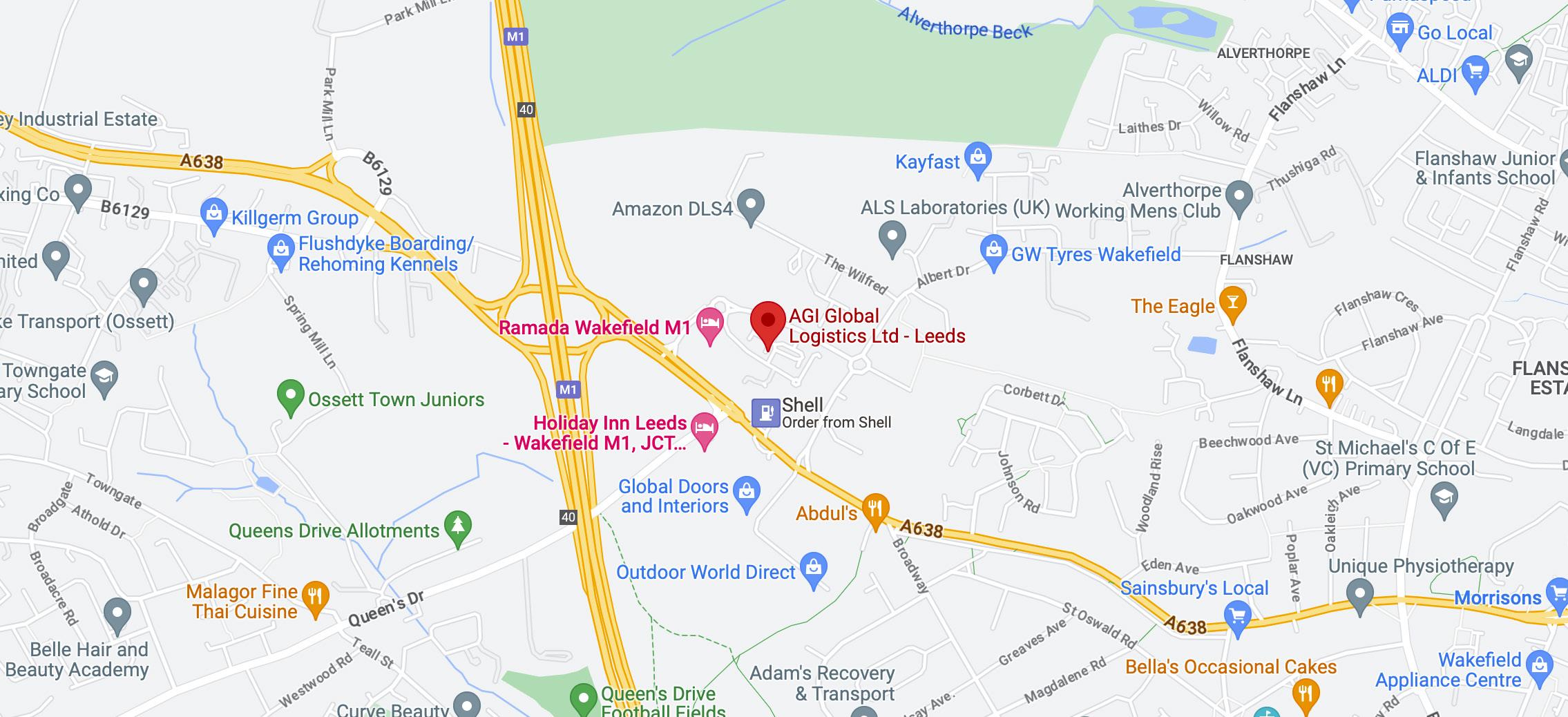
The opening of this office cements AGI’s commitment to offering logistics solutions in the North of England, and it will complement their offices in Manchester, Immingham and Newcastle.
To find out more about what the AGI Leeds office can offer, you can call the team on 0113 8631 720 or drop them an e-mail at Leeds@agi.global. And for all of the latest AGI news, don’t forget to follow them on LinkedIn and Facebook!


By ensuring the timely movement of goods to the destination where they are required, logistics companies contribute to the success of many other businesses. The importance of the functions of logistics companies became even more clear during the pandemic. The logistics industry braved the challenges of the pandemic and emerged not only a survivor but also a winner. The future of this industry seems bright with predictions of healthy growth between 2023 and 2028.
Logistics start-ups can avail the advantages of this period, but to do so, they need significant financial resources. Start-ups should look into alternative finance to obtain the resources they need. Here’s a rundown of some great financing options open to logistics start-ups:
A logistics start-up that wants to make no compromise on equity should take this route. It also helps when there is insufficient or no available collateral. Guaranteed unsecured loans share some similarities with small business loans but don’t have the same restrictions. In the case of unsecured loans, there are no security requirements and start-ups can get the capital upfront. One of the major considerations behind the lending decision will be the creditworthiness of the borrower.
A huge advantage of this financing solution is quicker access compared to its secured equivalents. Unsecured loans don’t even have extra upfront costs like secure loans. They are also not limited by the value of the collateral assets. These loans provide additional flexibility to a start-up (as no assets are tied to the loans and more cash is available). The business can repay the loan in monthly or quarterly instalments over a fixed period. From the various available types of unsecured loans, it is advisable for the logistics start-up to choose one that suits its needs best.
Many banks and other lending institutions offer start-up business loans. But, they will first evaluate the business model and take a look at the growth projections and profit-making potential of the start-up. There are several advantages to choosing this financing option. The interest rate for these loans is usually lower. The process is simple, easy, and straightforward compared to seeking funding from investors. To acquire this loan, the entrepreneur as well as the business need to have a good credit record. Start-ups can get between £1,000 and £25,000 from such a loan.
For efficient operations, a logistics company requires expensive equipment. It needs to acquire a sterling fleet. By utilising the latest technology, a logistics start-up can increase its competitive edge, increase its efficiency and minimise fuel costs. To avail of the benefits, it first needs to invest in the latest technology. And it needs an appropriate financial solution to make this investment. Asset finance solutions make it easier to invest in assets that are in line with the latest technological developments.
With this financial solution, start-ups can break up and repay the cost of the asset in more manageable monthly instalments. The asset finance package will depend on the value and term of the asset that the startup needs to acquire. Because of asset finance, financial issues won’t affect the operations of the start-up even immediately after acquiring expensive equipment or other assets.
Through invoice finance, as the name suggests, businesses can raise cash against existing unpaid invoices. Even before a client pays up, the business can raise money against the invoice. A third party can purchase the invoice and release the funds to the business.
This user-friendly financing solution helps in maintaining cash flow. It enables growth in the fast-paced business environment. Using invoice finance, a start-up can free up internal capacity. This puts the start-up in a better position to allocate additional resources to the growth of the business.
Invoice finance proves very useful when a start-up needs expensive equipment for fulfilling contracts, or in cases of slow-paying customers, or even if it wants to avail the advantages of price fluctuations. Invoice factoring, confidential invoice discounting, and selective invoice discounting are types of invoice finance.
Logistics start-ups can recoup at least some of the costs associated with their early innovation effort using R&D tax credits. They can claim R&D tax credits for the design, development, and implementation of systems, technologies, and processes related to logistics. This last part is especially important; the R&D activities need to be related to the trade of the start-up, which, in this case, is logistics.
The R&D efforts must seek to resolve some scientific or technical uncertainty or they must be directed towards development in the field of science and technology. Some examples of the kind of activities that can fetch R&D tax credits for logistics start-ups are the development of better vehicle safety systems and the creation of innovative logistics software systems. To qualify for credit, the research activities need not be successful, but there needs to be evidence of genuine research efforts. For small start-ups, the credit can be as much as 33 percent of the costs of R&D. Start-ups need to claim the lucrative benefit of this financial incentive from the government. Start-ups might be able to offset payroll taxes with R&D tax credits for up to 5 years.
Since 2023-2028 is a good time for the start or growth of a logistics company, many will be interested and competition will naturally increase. A start-up needs to understand the pros and cons of the available financial options. Obtaining the required funds is only the beginning. The start-up then needs to manage and utilise the funds well in order to succeed.


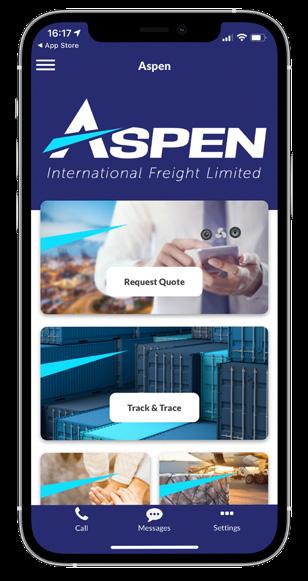
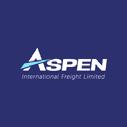

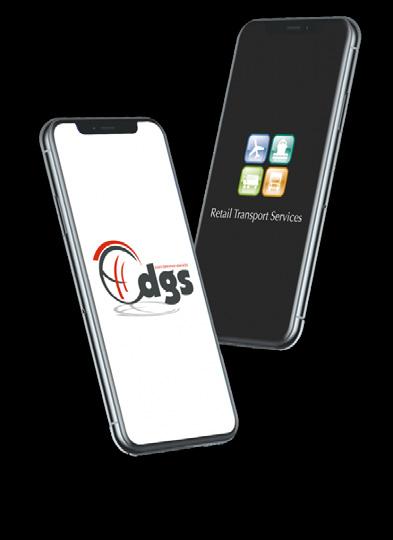
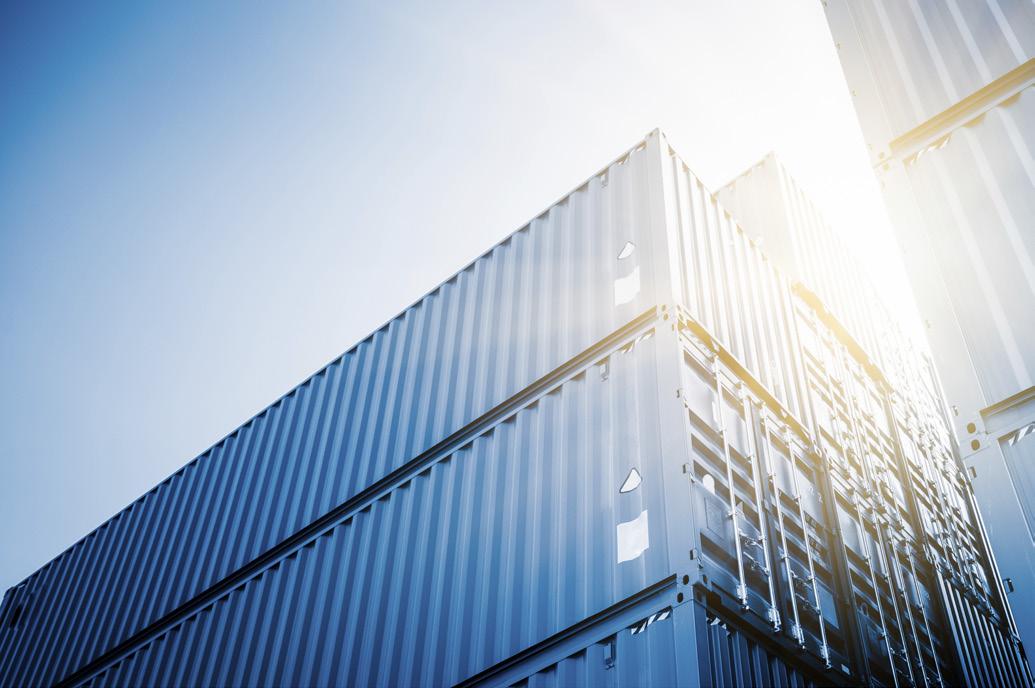





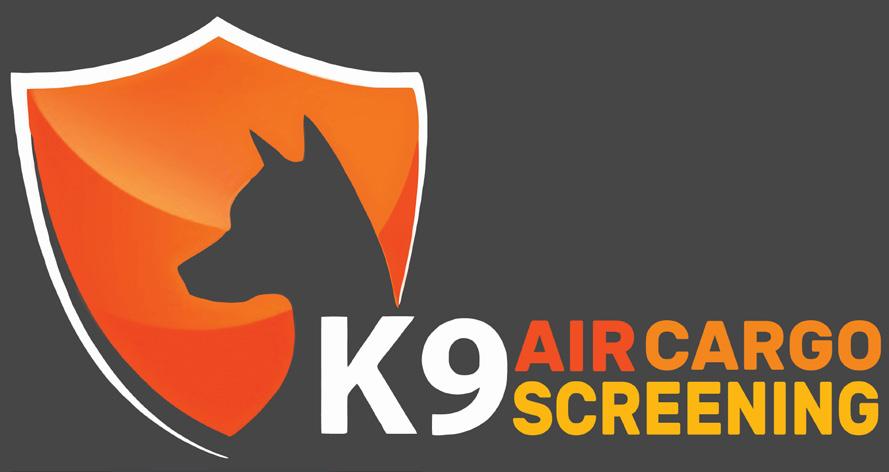





From money woes to monkeypox, from climate change to COVID, there's usually something going on that needs close monitoring. Here we'll report your stories about emergency management.

Related topics
COVID-19
Cost of living
Global warming
The International Air Transport Association (IATA) released data for July 2023 global air cargo markets, showing a continuing trend of recovering growth rates since February. July air cargo demand was tracking just 0.8% below the previous year’s levels. Although demand is now basically flat compared to 2022, this is an improvement on recent months’ performance that is particularly significant given declines in global trade volumes and rising concerns over China’s economy.
Global demand, measured in cargo tonne-kilometers (CTKs*), tracked at 0.8% below July 2022 levels (-0.4% for international operations). This was a significant improvement over the previous month’s performance (-3.4%).
In July, the global supplier delivery time PMI was 51.9, signaling fewer supply chain delays. All major economies, except China, had PMIs above 50. The U.S., Europe, and Japan recorded PMIs of 54.2, 57.7, and 50.4, respectively.
Capacity, measured in available cargo tonne-kilometers (ACTKs), was up 11.2% compared to July 2022 (8% for international operations). The strong uptick in ACTKs reflects the growth in belly capacity (29.3% year-on-year) due to the summer season.
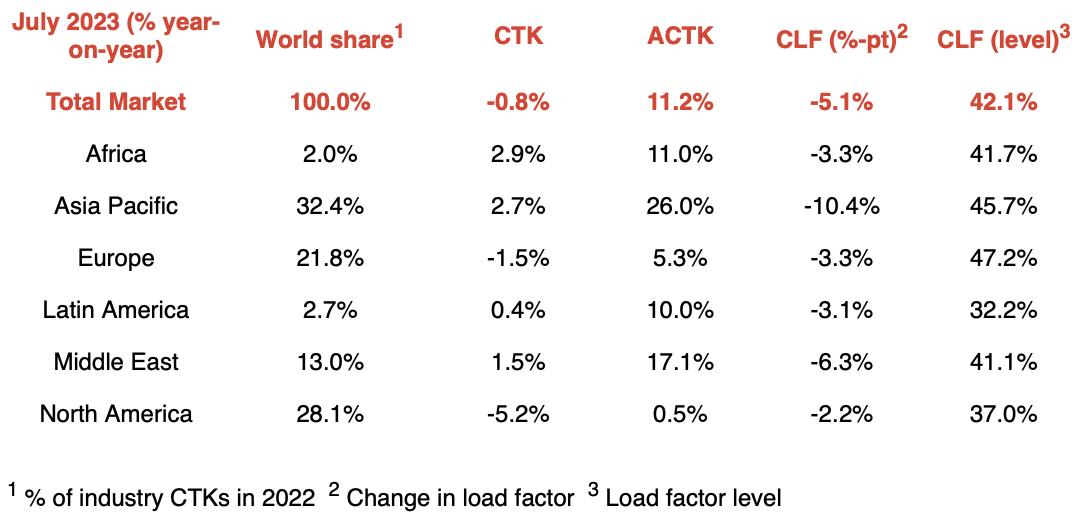
In July, both the manufacturing output Purchasing Managers Index or PMI (49.0) and new export orders PMI (46.4) were below the critical threshold represented by the 50 mark, indicating a decline in global manufacturing production and exports.
Global cross-border trade contracted for the third month in a row in June, decreasing 2.5% year-over-year, reflecting the cooling demand environment and challenging macroeconomic conditions. The difference between the annual growth rates of air cargo and the global goods trade narrowed to -0.8 percentage points in June. While air cargo growth is still lagging world trade, the gap is the narrowest since January 2022.
Inflation saw a mixed picture in July, with the increase in US consumer prices picking up pace for the first time in 13 months. Meanwhile, in China, both consumer and producer prices fell, pointing to a possible deflationary economy.
Compared to July 2022, demand for air cargo was basically flat. Considering we were 3.4% below 2022 levels in June, that’s a significant improvement. And it continues a trend of strengthening demand that began in February. How this trend will evolve in the coming months will be something to watch carefully. Many fundamental drivers of air cargo demand, such as trade volumes and export orders, remain weak or are deteriorating. And there are growing concerns over how China’s economy is developing. At the same time, we are seeing shorter delivery times, which is normally a sign of increasing economic activity. Amid these mixed signals, strengthening demand gives us good reason to be cautiously optimistic.
Willie Walsh, Director General, IATAIn an increasingly complex and uncertain global supply chain operating environment, forwarders and their shipper customers must be prepared to handle crises when they occur, whether they are in the form of natural disasters such as hurricanes and floods, geopolitical or labour issues, or health-related, such as Covid-19.
Preparing for disruptions, delays, and damage to infrastructure and equipment, in the case of a hurricane, for example, is particularly difficult. Hence, it is crucial for logistics providers to be prepared and take proactive measures to minimize the impact of disruptive events and ensure a swift recovery.
The first step is to do a risk assessment to identify potential supply chain vulnerabilities. Comprehensive contingency plans should be developed that outline actions to be taken. These plans may involve alternative transportation routes, backup storage facilities, and close coordination with customers and suppliers.
Here are essential continuity planning steps that forwarders can take to prepare for logistics disruptions.
The development of a disaster management continuity plan...
1An area that is particularly critical for continuity planning is collaboration and communication. Timely, consistent communication with all stakeholders, including customers, suppliers, carriers, and government agencies, is crucial during disruptive events. You’ll want to contact the shipping carriers and suppliers involved in your client's shipments to determine their contingency plans and any potential delays. Be proactive in coordinating with them to explore alternative transportation routes and options. Adopt a cloud-based digital freight management platform that employs collaborative, communication tools to ensure everyone is informed of a situation and can work together to find solutions. By notifying shippers as early as possible, they can quickly address shipment exceptions and reduce unanticipated costs. Moreover, proactive communication supports meaningful coordination between a forwarders’ team and a shipper’s operations and logistics group in re-establishing operational and logistics schedules. This collaborative exercise fosters the development of alternative solutions to get cargo flows back up and running.

2Identify alternative transport routes and backup storage facilities. Before a weather event shuts down a major port or rail network, be prepared with knowledge of your ocean or air transportation vendor's scope of services in order to be prepared with alternate routing options. Additionally, compile data about land-based routing options in those markets where your customers’ supply chains could be impacted.
3Create a strong partner network to support supply chain resiliency, flexibility, and safety. Join a collaborative industry network that securely connects your business to global shipping industry participants 24/7. Magaya customers have access to the Magaya Network, a community of Magaya users, throughout the world, that allows participants to access market updates from agents in other countries. They can also electronically exchange transactional information, including shipping documentation with other global Magaya users. A collaborative, global industry network that offers timely peer-to-peer dialogue when supply chain disruptions are occurring is an invaluable tool that provides critical market and infrastructure information. It allows for building strong, constructive global relationships through direct communication and helps facilitate reliable origin-to-destination cargo flows. Information can be exchanged faster, more securely, and more accurately when sent electronically in the cloud.
4
Social media may present an opportunity to expand communication capabilities. Companies are tuned into the power of social media and the existence of the citizen journalist. Understanding and engaging with social media may provide a useful information resource during disruptive events.
5
Cloud-based technology is less vulnerable to hazardous weather events and offers greater flexibility, access to data, and reliability when disruptions occur. Relying on old, onpremise systems is limiting, especially if you’re unable to physically travel to your headquarters location. Those businesses with modern, connected, cloud-based systems with redundancy built in can pivot more quickly by working remotely to access important business data online for effective business decision-making.
In the fall of 2012, a destructive hurricane, Superstorm Sandy, hit the New York metropolitan area. In its path was the Port of New York and New Jersey, the 3rd largest port, based on container volumes, in North America. Deputy Baroni, Executive Director of the Port Authority of NY/NJ, at the time, said The storm's impact on Port Authority-related operations delayed or cancelled flights for 900,000 airline passengers; diverted 25,000 shipping containers to other ports; and spilled 125 million gallons of seawater into the World Trade Center site. There was also a complete shut down of marine terminals at the Port. When these natural disasters occur the impact on supply chains is devastating. As a logistics provider, it may be well advised to recommend to customers specific strategies to address risk, such as splitting their distribution networks between East and West Coast ports.
6
Strengthen physical infrastructures and leverage weather forecasts when a hurricane or major storm is on its way. This allows you to anticipate potential weather-related disruptions and adjust operations accordingly. Regular monitoring of weather updates allows you to stay informed about a hurricane's path, intensity, and potential impact on physical infrastructures, such as ports, roads, and bridges. In addition, it provides the opportunity to protect warehouses and distribution centres by installing hurricaneresistant doors and reinforcing roofs when hazardous weather conditions are forecast.
7
Protect shipments with cargo insurance. Cargo should be adequately insured for any potential damage or loss caused by weather events or other possible disruptions. Carefully review the insurance policy and terms to determine if it is tailored to the cargo’s value and to be aware of any exclusions that could limit coverage.
No one can predict when or where the next emergency will occur. But we can reduce the impact of disasters through planning, working cooperatively, and bolstering communities.
Jock Menzies, President, the American Logistics Aid NetworkMitigating the impact of hazardous weather on global supply chains requires a combination of proactive planning, advanced Cloud-based technologies, strong communication, and the ability to adapt swiftly. By implementing the planning strategies outlined here logistics providers can enhance their resilience and better serve their global shipper customers during challenging times.

A safeguard that can strengthen shipment continuity is the implementation of a cloud-based platform for advanced tracking and monitoring of shipments. These systems provide timely visibility into the location of cargo along its journey. This enables logistics providers to proactively work to reroute shipments to avoid areas affected by disruptive events.
8
Nomar Ramis, Chief Customer Officer at MagayaWEATHERING
...CRISIS PREPAREDNESS FOR FORWARDERS & THEIR CUSTOMERS

Organisations and bodies that provide and train staff for the freight and logistics industries.
Related topics
Certification
Organic growth
Safety awareness
Sponsored by
Gi Group, one of the UK’s leading HR and recruitment agencies, is launching an HGV Driver Academy apprenticeship programme to tackle the perpetual shortage of drivers in the logistics industry.
Starting this September, in partnership with one of its subsidiary businesses, Tack TMI, Gi Group will be offering its new Driver Apprenticeship Schemes across the UK.
Leading the way for the recruitment sector, Gi Group are pioneering the Driver Academy as the only recruitment and HR company to offer these training opportunities. The scheme will provide candidates with a full support package, from bespoke training to helping each successful candidate to secure their dream role once qualified.
Our new mission within our Driving division is to create a long-term, sustainable solution to the challenges posed by industry-wide driver shortages. Over the past few years, the industry has been hit hard from every direction, so we felt it was time we initiated a positive step forward to create a brighter future for the driving industry. There is a stigma in the industry around the gender and age of HGV drivers, but this just doesn’t need to be the case. We’re passionate that the future of the industry can be shaped by young, innovative men and women. Driving offers people a flexible working environment and opens up opportunities to work around your life, with the possibility of some serious salaries.
Andrew Fletcher, Operations Manager for the South, Gi GroupGi Group will start its apprentices off at a salary of around £11/£12 per hour, meaning most applicants won’t see a dip in their income. Throughout the course of the 12-month programme, there will be opportunities for individuals to increase their salary as they progress and become further qualified. The courses on offer cover Class 1 and Class 2 qualifications including hands-on blended learning throughout.
Research has found that at the beginning of 2022 the industry was short of around 100,000 HGV drivers. While this number dropped to 60,000 by the beginning of 2023, this is still a significant shortage in an industry that has suffered for over a decade – and there is clearly an urgent need for a long-term, sustainable recruitment solution.
Gi Group isn’t just providing a solution for driver shortages, it is also supporting its clients to invest in the future of their industries. Offering apprenticeship options supports the industry as a profession, and projects a more respected career.
With the cost-of-living crisis still affecting millions of families, there is nationwide concern around the security of job roles and the opportunity for progressive salaries. Gi Group’s new programmes support a worklife balance, provide a flexible working routine that can fit around children and childcare and can lead to positions which can pay around £60,000 per year once fully qualified.

The UK’s apprenticeship system needs a radical overhaul if businesses which make regular levy payments into the scheme are to be able to train new recruits using these funds, according to a new report from business group Logistics UK. According to Logistics UK’s Skills Review, there is great interest across industry to take on apprentices however, over the past five years, only 4% of levy paying employer accounts were able to fully utilise the funds available to them.
Our latest report found that the total estimated amount of funding possible to be recovered by businesses in transport and logistics since the levy was introduced was £250 million: however, during the same period, the sector paid in £825 million in levy funds. This is unacceptable – especially considering the current economic climate –and highlights the urgent need to overhaul the Apprenticeship Levy, especially if industry’s long-term skills shortage is to be resolved. With 68% of respondents to Logistics UK’s survey interested in taking on
Logistics UK is one of the UK’s leading business groups, representing logistics businesses which are vital to keeping the UK trading, and more than seven million people directly employed in the making, selling and moving of goods. With decarbonisation, Brexit, new technology and other disruptive forces driving change in the way goods move across borders and through the supply chain, logistics
apprentices, it is clear the demand across industry to support growing talent is there, but the current system is fundamentally flawed. Traditionally, there have been many barriers to entry for candidates and businesses, such as minimum skills requirements and minimum duration of the apprenticeship – many of which do not apply to logistics roles – as well as restrictive business size specifications which prevent further uptake of the training scheme. Since 2021, Logistics UK has been highlighting to government the need for the current system to be replaced with a more flexible Training Levy to enable realistic training and development programmes for new recruits. The industry itself is working hard to fill skills gaps and introduce the next generation of workers to the sector – via initiatives such as Generation Logistics – however it is now vital that government responds accordingly to remove the barriers and ensure a continued skilled workforce is available to keep the UK economy supplied with everything it needs.
Michelle Gardner, Deputy Director of Policy, Logistics UKhas never been more important to UK plc. Logistics UK supports, shapes and stands up for safe and efficient logistics, and is the only business group which represents the whole industry, with members from the road, rail, water and air industries, as well as the buyers of freight services such as retailers and manufacturers whose businesses depend on the efficient movement of goods. For more information about the organisation and its work, please visit logistics.org.uk
Growing freight software management firm, Forward Solutions, has boosted its leadership team. The expanded team features the promotion of one of its key members of staff and the return of a familiar face.
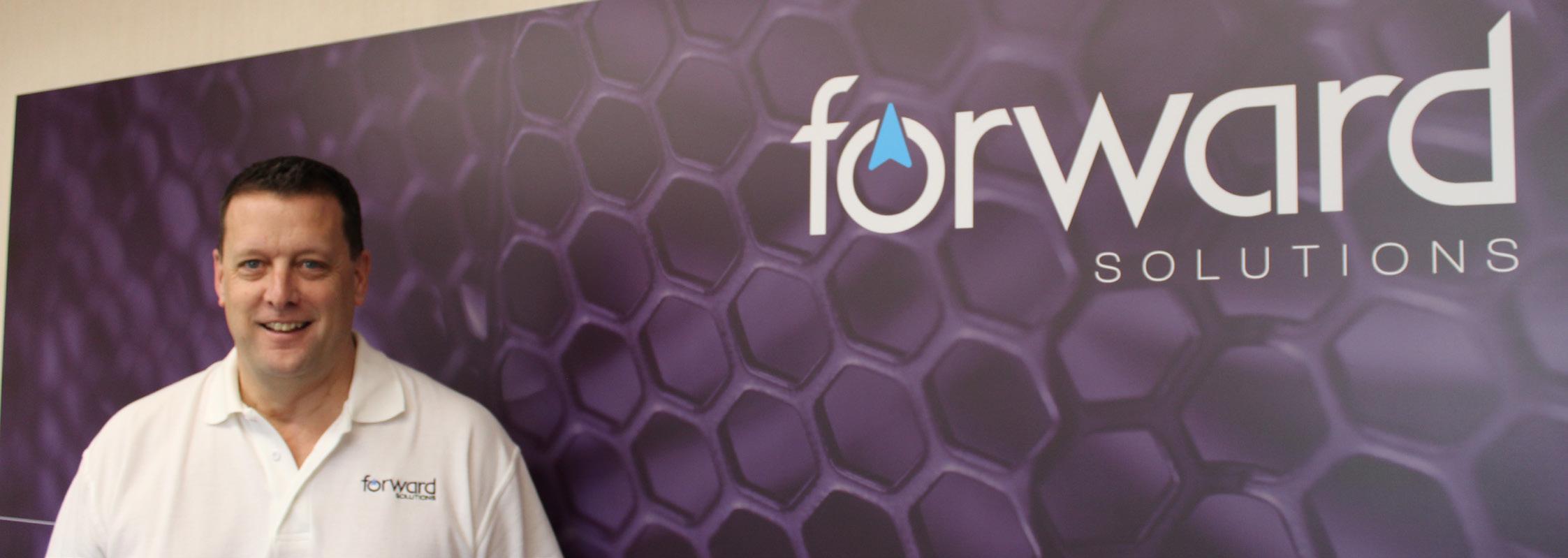
Tony re-joins Forward with over 30 years of experience, having provided services for organisations such as ITV and Manchester City FC. Tony had previously worked for Forward under its previous guise, Forward Computers, as a Senior Developer.
Tom Donnelly becomes Manager of Operations, which will see him play a crucial role in driving the company’s strategic initiatives and advancing its work in providing the freight industry with cutting-edge technology.
Tony Eley has also re-joined Forward Solutions, as Development Manager, bringing with him many years of industry experience from across the sector.
Tom has been at Forward Solutions for over 19 years, and has worked his way through the ranks at the Nottingham-headquartered firm. His time at Forward Solutions has seen him work as both a Software Support Engineer and Product Specialist, making him perfectly placed to help oversee the strategy for the business.
I’m delighted to have been made Manager of Operations at Forward Solutions. It has been a great journey for me at the company. It’s a fun prospect to be managing more of our fantastic team. We want to continue improving our team and ensure we are working together as effectively and efficiently as possible. Through working with Tony, we will ensure that we are on-track with projects and helping customers continue to improve their own services.
Tony said: It feels fantastic to be back at Forward House after 18 years away! It has been great to meet the new members of the team, as well as those who’ve remained here. I’m excited to get going in my new role and take a wider overview of the company, which will be critical to our delivery moving forward.
Tom and Tony are the future management team of Forward Solutions, and I have great confidence in both of them to do a fantastic job in their new positions. For Tom, this promotion is well deserved, he is a critical part of the makeup of our team here at Forward, and we can’t wait to see him grow further professionally. We welcome Tony back, some 18 years after his previous stint with us, his impact upon our team has been fantastic already and he will be key to the growth of the company. For us, these moves are about consolidating our high levels of customer service and delivering of our products, which truly do make a difference to our customers. Tom and Tony will help ensure that the Forward Solutions customer experience is as smooth as possible, which is what enables us to stand out, in a hugely competitive market.
Richard Litchfield, Managing Director, Forward Solutions



























Palletline has, for the first time, appointed a new Chair of the Board of Directors from outside the network, demonstrating the business’ commitment to innovation and growth.
Forsyth Black has been enlisted to introduce an independent and dynamic way of thinking which will help bring a fresh perspective to the network.
He joins the business at a time when the UK’s leading palletised freight distribution network is going through something of a resurgence with investment, new developments and people featuring prominently in Palletline’s future roadmap designed to reinforce the company’s market leading position.
The announcement was made at Palletline’s recent AGM at which former Chair Jim Welch, Managing Director of Welch’s Transport – a long-standing member of Palletline – passed the baton on to Forsyth.
Having spent six years in the role as Chair, and 10 years on the Board, Jim has steered Palletline through some challenging times including the tail end of a recession, the pandemic and driver shortages. His knowledge of the industry and respect amongst Palletline members have been invaluable over the years.
Forsyth's track record within the logistics sector is impressive introducing an exciting new skill set into the business and one which is set to play an integral role in Palletline’s long term strategy. His career spans more than two decades and has seen him hold a number of senior
positions in transport, logistics, and aviation where he has driven innovation, cultural change, and profitability.
One such example, was in his role as Managing Director of Menzies Distribution, where he steered the company from structural decline to sustainable profitability through a move away from newspaper and magazine distribution into the parcel and pallet sector.
I’m delighted to join Palletline at such an exciting time and relish the opportunities it presents for growth. Palletline has an enviable position in the market. It has several unique features including its fully member owned model and I hope my experience will benefit the network as it continues to thrive.
A Chartered Management Accountant, Forsyth also holds a BA in Accounting and an MBA. He currently has a portfolio career which includes Chair of Glasgow Prestwick Airport, a Board position at the Port of Aberdeen, and he leads a small boutique advisory firm working predominantly in mergers and acquisitions for aviation, security and logistics clients around the world.
Two further Board members were elected at the AGM: Palletline members Jonathan Edge, Managing Director of Edge Transport and Ed Sanderson, Commercial Director of Stephen Sanderson Transport.


Bill Bowker, Managing Director of Bowker Group, also steps down from the Board this year. Thanks go to him for his substantial contribution during his tenure.
 CHRISTINE KLEMMER CHIEF
CHRISTINE KLEMMER CHIEF
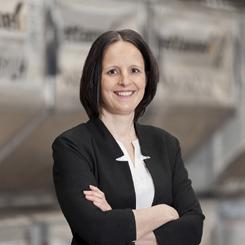
Jettainer is continuing its path to drive forward digital and non-digital innovation by appointing Christine Klemmer as Chief Innovation Officer.
The newly established department aims to enhance ULD management services through cutting-edge technology, strategic AI applications and tracking solutions. As the company continues its growth trajectory, Klemmer’s focus will ensure that Jettainer remains the industry’s leading innovator in ULD management, providing forward-looking services to customers worldwide.

As newly appointed Chief Innovation Officer, Christine Klemmer is driving forward digital and non-digital innovation. The primary goal of this new department is to leverage cutting-edge technological developments to enhance Jettainer’s ULD management services even further. This includes the strategic utilization of AI applications and exploring innovative tracking solutions beyond BLE. Additionally, Jettainer’s own IT landscape JettwareNG will be further improved and automated, facilitating faster and more user-friendly experiences for customers, service providers and employees through smart workflows.
Staying innovative and leveraging the latest technological opportunities is crucial to ensure efficient ULD management for our customers around the globe. That is why we have now created the structures that give room for new and creative solutions. Christine Klemmer’s experience at home and abroad and her wideranging expertise in ULD management, air freight, and IT, makes her the ideal fit.
Thomas Sonntag, CEO, Jettainer“Jettainer’s customer-centric and innovation-driven approach puts us in an outstanding position to continue on our successful growth trajectory. I am eager to explore new possibilities and to ensure Jettainer remains the leading innovator in ULD management, offering topnotch and forward-looking services to our customers and the industry,” said Jettainer’s new Chief Innovation Officer, Christine Klemmer.
In addition to her new role, Christine Klemmer will remain responsible for strategic development at the ULD specialist and manage Jettainer’s project portfolio and corporate communications. Christine Klemmer joined Jettainer in 2019 to further develop the ULD sharing platform skypooling. Previously, she held several international management positions in air cargo where she was responsible for business development, operations as well as quality and process management.
ATLANTA, GA
SALARY: $ 90,000–$100,00
We are seeking an experienced and driven Senior Business Development Manager/Sales Executive to join our team in Atlanta, Georgia. The ideal candidate will possess a strong portfolio of customers with a Gross Profit (GP) ranging from $1 million to $2 million per year, along with a proven track record of success in the international freight forwarding industry. As a Senior BDM/Sales Executive, you will be responsible for expanding our client base, promoting our suite of international freight forwarding services, and achieving revenue growth targets.
• Client Portfolio Management Maintain and nurture existing customer relationships with a focus on driving growth and increasing GP. Leverage your established connections to identify opportunities for upselling and cross-selling our comprehensive suite of international freight forwarding services.
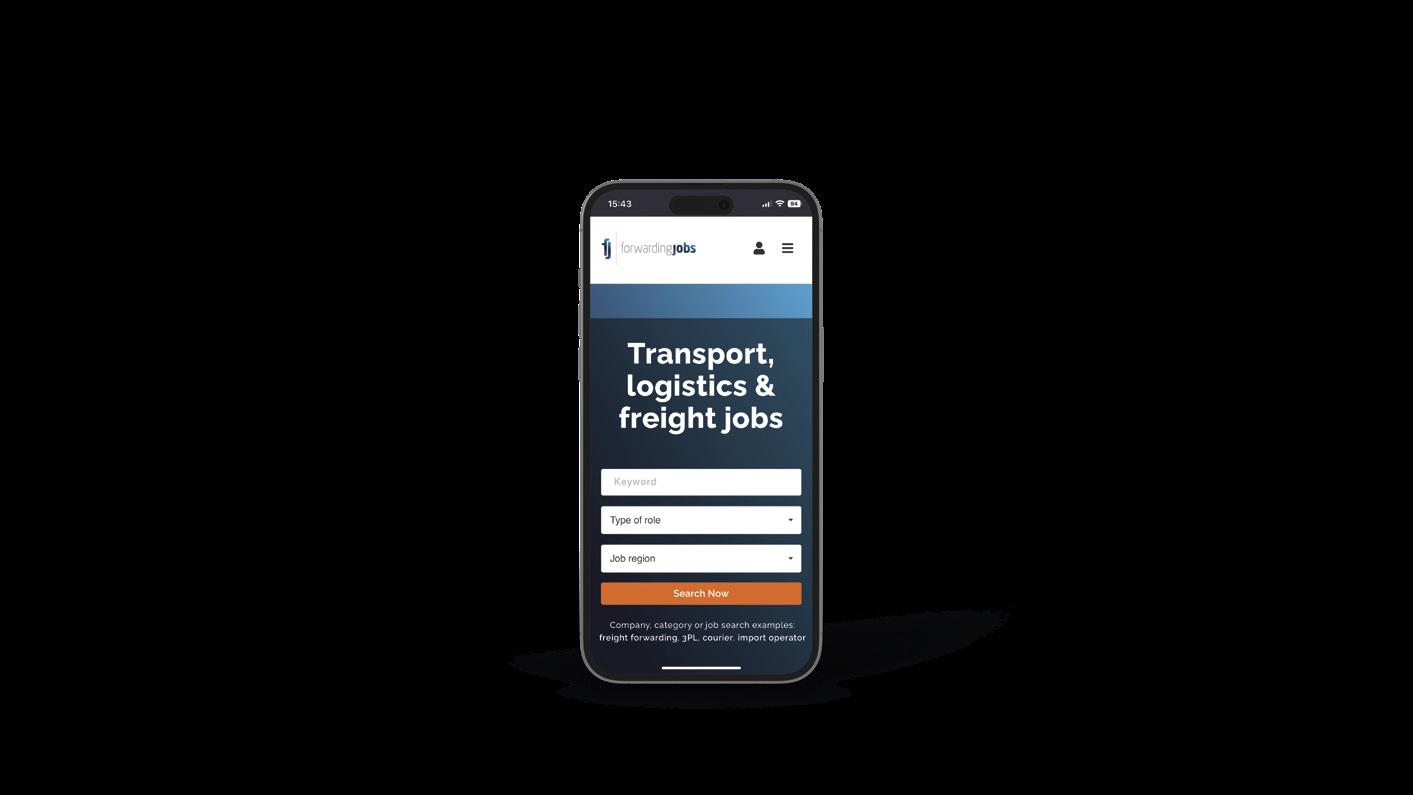
• Business Development Identify and target potential clients within the international logistics and supply chain sector. Develop and execute strategic plans to penetrate new markets and expand our customer base.
• Sales Strategy Develop and implement effective sales strategies that align with the company’s goals and objectives. Utilize your in-depth knowledge of international freight forwarding services including AIR, OCEAN, IMPORT/EXPORT, and CUSTOMS to present customized solutions to clients.
• Revenue Generation Achieve and exceed sales targets by effectively negotiating contracts, pricing, and terms with clients. Drive revenue growth by consistently closing deals and maintaining a robust sales pipeline.
• Market Analysis Stay current with industry trends, market dynamics, and competitor activities. Utilize this information to identify opportunities and propose strategies that give us a competitive edge in the market.
DÜSSELDORF/HAMBURG, GERMANY
€75 ,000–€100,000
Our client is looking for a sales-orientated Branch Manager with a focus on Ocean Forwarding across the trade lanes between Europe and Asia to be part of the growth of their business in Germany.
• Handling P&L of the Germany branch with respect to Freight Forwarding and other allied services
• Act as a Branch Sales Manager and generate sales in Free Hand Market by Finding & developing qualified leads, then converting them through the sales process into prospects and customers.
• Continuously keep the sales pipeline full with deals at various types and stages, including fresh/new (qualified) leads/ introductions and mid and late stage sales life cycle targets.
• The ideal sales pipeline will always be full with a wide variety of account types, company sizes, diversified industries, transactional vs strategic businesses and services offered.
• Develops a business plan and sales strategy for the market that ensures the attainment of company sales targets and profitability, either individually or collectively with the sales team
• Responsible for the performance and development of the Sales Team and supporting revenue generation initiatives.
• Ensuring quarterly/half-yearly/annual budgets are met for the territory in terms of Nomination & Free-Hand Businesses.
• Enhancing operational excellence in the region and mitigating costs to improve overall efficiency
• Coaching, guiding and mentoring the team for future growth and overall development
• Co-ordinate with different verticals, functions, offices & agents to ensure smooth functioning of the branch
• Identifying market trends and strategising & implementing competitive rate actions for the sales team.
EL PASO, TX
SALARY: COMPETITIVE
Finance Manager manages multiple functions and operations including G/L, accounts payable, accounts receivable, revenue, assets, cost, and tax accounting. Implements accounting policies and procedures that adhere to governmental financial and tax regulations and comply with GAAP and IFRS standards. Responsible for monthly financial close processes and reporting. Evaluates accounting processes and systems and implements optimizations. Ensures that project/department milestones/goals are met and adhering to approved budgets.
• Implement and supervise the company’s financial plan crossing U.S. and Mexico.
• Provide financial analysis and support business managers to financial objectives.
• Oversee and direct all day-to-day accounting activities to ensure expenses and revenues are accurately recorded in accordance with GAAP (generally accepted accounting principles)
• Supervise the functions of accounts payable, account receivable, fixed asset recording and cash management.
• Responsible for G/L accounting.
• Handle the company’s transactions and debts and do cash flow forecasting.
• Create management reports from different angles to dissect business performance.
• Assist in finance management to achieve a smooth and efficient operation in both accounting and finance department.
• Ensure basic internal control process is in place to avoid loss of revenue, assets and risks.
CHICAGO, IL
SALARY: $60,000–$70,000
Reporting to the Vice President of Sales, the Sales Representative is responsible for developing new client relationships, generating business revenue streams and following up on leads from internal and external sources, by phone and in person.
• Gathering client data, identifying the client’s organizational structure and decision makers
• Acting as the client advocate during solution development
• Obtaining client agreement and commitment to proceed with projects
• Overseeing client relationships and channeling customer feedback into the organization
ANTWERP, BELGIUM
SALARY: €60,000–€80,000
Our client, a foreign owned business operating across Asia, Middle East and Europe are looking to launch a new division based in Antwerp. They are looking for a Warehouse Manager/Partner to help them identify and sell warehouse space to clients within 25-50 km of Antwerp.
• Identify and set up warehouse facility
• Manage the facilities in full
• Sell facilities to potential clients
• Hiring and Training of staff
FOR MORE INFORMATION & TO APPLY, PLEASE FIND THESE ROLES ON
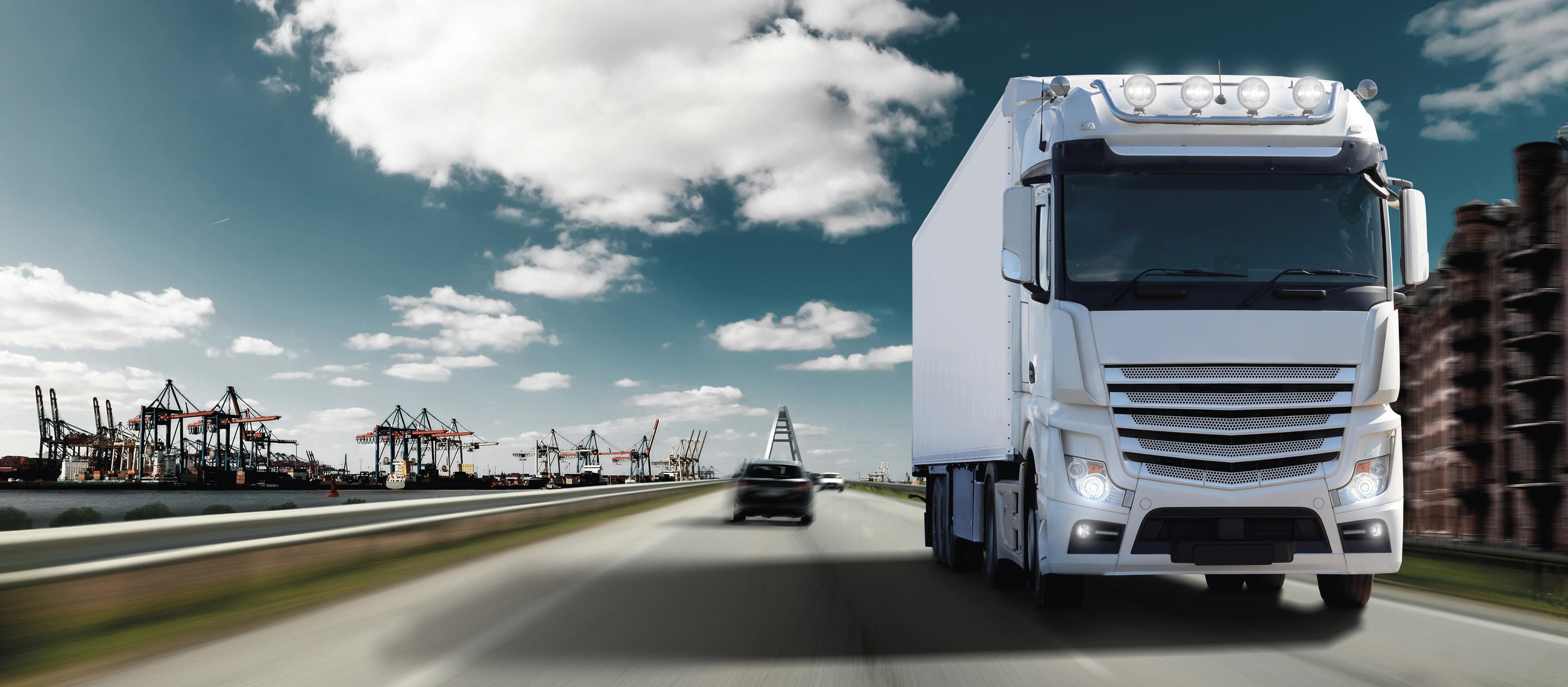














The consolidation of companies or assets through various types of financial transactions.
Related topics
Contracted partnerships
Management buyouts
Valuation
Sponsored by F REIGHT
STAG Industrial acquires multi-tenant distribution asset in strong submarket near Portland
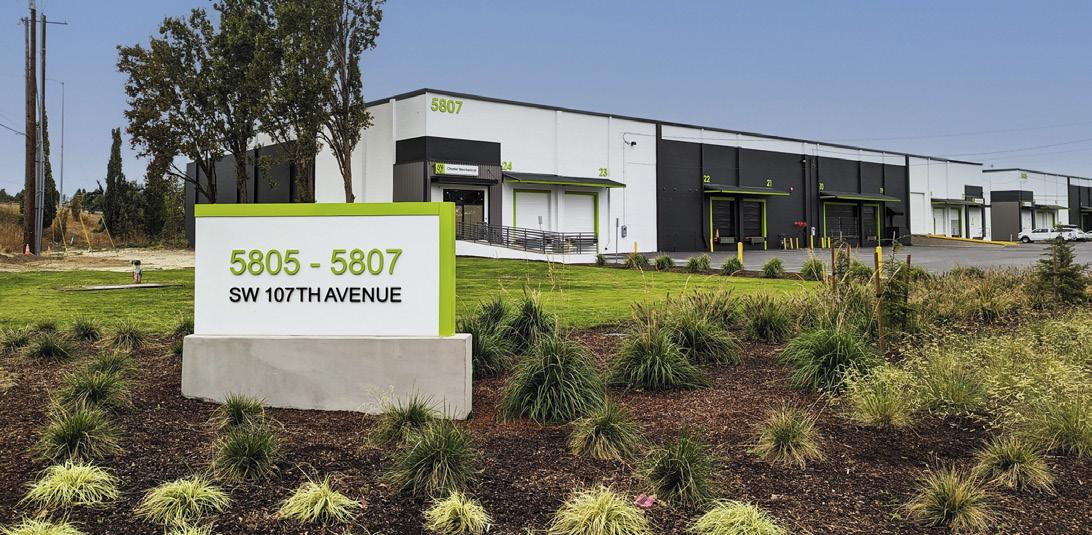
Cushman & Wakefield announced the firm has advised the sale of Beaverton Industrial Center, a recently renovated 121,426-square-foot multi-tenant industrial/distribution project on approximately ±6.4 acres in Beaverton (Portland), Oregon. Originally constructed in the 1960s and extensively upgraded in 2021, the property consists of two freestanding distribution buildings located at 5805 and 5807 SW 107th Ave, that were fully leased to four tenants at the time of sale.
The asset was acquired by STAG Industrial, a real estate investment trust focused on the acquisition and operation of industrial properties throughout the U.S., for $20.6 million.
Cushman & Wakefield’s Bryce Aberg, Jeff Chiate, Jeff Cole, Rick Ellison, Mike Adey, Zach Harman, and Brad Brandenburg of the firm’s National Industrial Investment Advisory Group in Southern California represented the seller, BKM Capital Partners, in the transaction. Greg Nesting, Aaron Watt and Keegan Clay with Cushman & Wakefield also provided local market advisory.
This is a prime industrial/distribution asset located in the 217 Corridor/Beaverton submarket, a preferred location for industrial tenants within the surrounding Portland markets. Beaverton Industrial Center is 100% leased to a strong, highly diversified tenant mix, and offers institutional quality, stable cash flow, and attractive lease terms with staggered expirations. Beaverton’s strong industrial market fundamentals, together with the project’s exceptional quality and financial profile, created a rare investment opportunity in one of Portland’s most sought-after submarkets.
Bryce Aberg, Vice Chair, Cushman & Wakefield
The location provides a highly desirable location just off Highway 217 and in close proximity to Highway 26, Oregon Route 8, and Interstate 5, several airports, and the Portland city center, providing exceptional regional, national and international access.
According to Cushman & Wakefield’s latest mid-year market report, the Portland Industrial market closed Q2-2023 with a tight direct vacancy rate of 2.6%, with the Beaverton/Highway 217 submarket even tighter at just 2.0%. Portland also recorded more than 500,000 square feet of positive net absorption (occupancy growth) in the second quarter, some of which stemmed from modest growth in the Beaverton/Highway 217 submarket.
Expanded operations and offerings to extend global, sustainable access of lifesaving pharmaceuticals
Envirotainer is a specialist in secure cold chain solutions for the shipment of temperature-sensitive pharmaceuticals. va-Q-tec is a pioneer in the area of thermal insulations and thermal energy efficiency and offers a wide range of temperature-controlled packaging solutions, that are based on an award-winning vacuum insulation panel technology, as well as different types of phase change materials. The combination of the two businesses will revolutionise the industry and will lead to a comprehensive and unparalleled temperaturecontrolled offering.
Envirotainer is majority-owned by EQT Private Equity, supported by co-investors Mubadala and Cinven. EQT Private Equity had its majority takeover offer of va-Q-tec approved by the Austrian Federal Competition Authority (Bundeswettbewerbsbehörde) on the 30th of June and the German Federal Competition Authority (Bundeskartellamt) on the 12th of June. This authorization gives the clearance to combine two industryleading brands: Envirotainer for the active part and va-Q-tec for the advanced passive temperature-controlled supply chain solutions.
va-Q-tec’s offering of advanced passive boxes and containers that maintain temperatures from -180°C to +20°C without external energy input is a perfect match to Envirotainer’s solutions, which includes active Unit Load Device (ULD) Containers, (using battery powered compressor cooling and electric heating technology) and CryoSure®, a minus 70oc dry ice shipping solution.
By combining the two entities the operational network of service stations will further expand, which will cater to the global growing demand of temperature controlled pharmaceutical shipping.
The preparations for the integration have already started, and the full combination is expected to be in place during the second half of 2024. During the integration, high levels of service and support will be maintained, guided by a jointly agreed ‘customer first’ principle.
Today starts a new era for our businesses and clients. Together, we will enable even greater global access to life-saving temperature-sensitive pharmaceuticals. The combination marks the start of a new accelerated period of growth for Envirotainer, fuelled by a comprehensive portfolio of temperature-controlled solutions tailored for customers across the whole spectra of the pharmaceutical industry.
Peter Gisel-Ekdahl, CEO, Envirotainerva-Q-tec CEO, Dr Joachim Kuhn, added, “Both businesses have a long history of success and complementary strengths. As one, we will supercharge our ability to develop ever better, innovative and sustainable cold chain solutions. Ultimately, this will improve patient's health while reducing environmental impact.”
The non-pharmaceutical operations of va-Q-tec, providing cold chain for food, and vacuum insulation panels for appliances, construction, technics & industry and mobility, will continue to operate separately.









The promotion and dissemination of knowledge and information about products and organisations both externally and internally.

Related topics
Website design
Social media
Promotional techniques
Sponsored by
Traditional Upper Franconian soccer club now sponsored by logistics company / Orange GW logo emblazoned on Bavarian Regional League players’ soccer jerseys
In future, fans of Spielvereinigung Bayreuth and spectators will notice a new color on the yellow/black jerseys of the German soccer club also called ‘Altstadt’: an orange logo with the letters GW. GW stands for the international transport and logistics company Gebrüder Weiss. The company with its new location in Bayreuth is now a gold sponsor of the traditional club. The new sponsorship was finalized on August 1 between Jörg Schmalfuß, Managing Director of SpVgg, and Werner Dettenthaler, Managing Director Land Transport Germany at Gebrüder Weiss.
The logistics company has recently acquired the Bayreuth-based forwarding company Wedlich, thus assuming the important role of logistics partner for Upper Franconian companies. So, it was clear for us to get involved with the soccer club as well. We have a lot
in common with this traditional club called ‘Oldschdod’ by the locals: team play, speed, precision and, above all, the joy of moving. We look forward to supporting all teams and wish them a successful season, said Dettenthaler when signing the contract in Bayreuth. In addition to the men’s first soccer team, the logistics company will also support the youth and women’s teams of SpVgg Bayreuth.
The history of the soccer club spans more than a hundred years, like that of our new sponsor, Gebrüder Weiss. Top performance thanks to passionate commitment and the skillful interaction of professionals – that is a good match, whether on the soccer field or on the transport routes, added Jörg Schmalfuß at the contract signing event.
Soon, the orange GW logo will appear not only on the soccer jerseys, but also on the fences and the grandstand of the Hans-Walter-Wild stadium. Gebrüder Weiss has nine locations in southern Germany and, in addition to professional soccer, also sponsors cycling, running and volleyball teams.
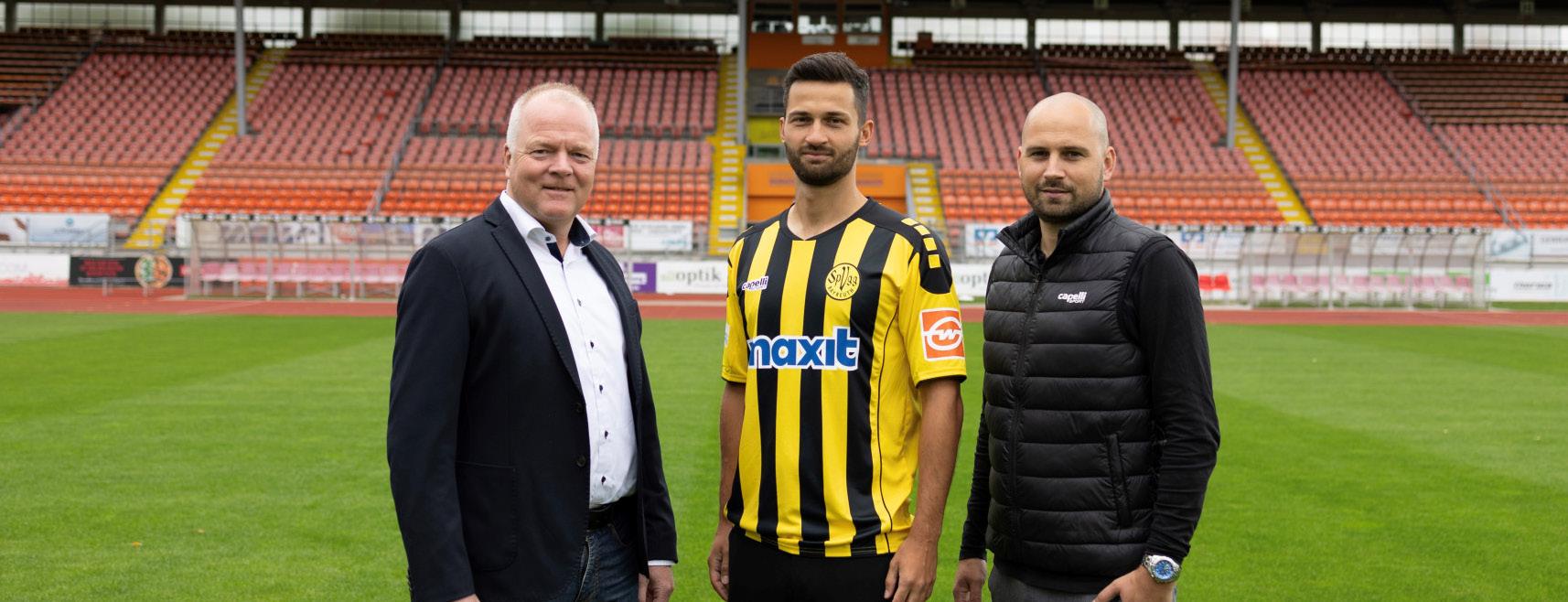
Tunley Engineering, a leading name in engineering solutions, is thrilled to announce its rebranding as Tunley Environmental. This strategic move reflects the company's commitment to empower sustainable solutions and accelerate sustainability globally.
With a renewed vision and mission, Tunley Environmental aims to revolutionise the industry by offering comprehensive services and expertise in carbon reduction assessments and carbon training courses. These offerings are specifically designed to enable businesses to make a genuine and lasting sustainable impact, reducing and offsetting their carbon footprint.
Tunley Environmental's team of dedicated scientists brings extensive knowledge and experience in the field of environmental sustainability. By leveraging cutting-edge technology and innovative methodologies, they provide high-quality carbon reduction assessments that identify potential areas for improvement within businesses. These assessments serve as a roadmap for organisations seeking to implement effective sustainability strategies.
In addition to carbon reduction assessments, Tunley Environmental offers specialised carbon training courses. These courses are designed to empower businesses and individuals with the knowledge and skills required to navigate the complexities of carbon footprint management successfully. By equipping professionals with the necessary tools, Tunley Environmental aims to create a global network of sustainability champions who can drive positive change within their organisations.
We are thrilled to embark on this new chapter as Tunley Environmental. Our rebranding reflects our unwavering commitment to empower sustainable solutions and contribute to a greener future. Through our carbon reduction assessments and training courses, we aim to provide businesses with the necessary expertise to make tangible and meaningful changes towards sustainability.
Dr William Beer, CEO, Tunley EnvironmentalTunley Environmental invites businesses, media outlets, and sustainability enthusiasts to join them in their mission to accelerate sustainability globally. By collaborating and sharing knowledge, Tunley Environmental believes that the collective effort will lead to a more sustainable world for generations to come.
Elon Musk has axed Twitter’s famous blue bird logo, replacing it with an ‘X’. ParcelHero says it’s the latest move in Musk’s plan to transform Twitter-X into a super-app offering global shopping, shipping and payment services

The famous Twitter blue bird logo, named ‘Larry’ after the famous basketball star Larry Bird, has been axed in favour of a new ‘X’ logo. The home delivery expert ParcelHero says it’s all part of Elon Musk’s plan to transform the social media site into X – a global ‘everything’ app focused on shopping and payment services
WeChat appears to be the main inspiration for X. Like Twitter, this was originally a social media platform. It now offers a huge range of services, with people using it to send not only messages to friends and family, but also money. They also use it to pay for shopping and services. WeChat has around 1.29 billion users in China alone and it’s thought some people spend a third of their waking hours on the app.
ParcelHero’s Head of Consumer Research, David Jinks M.I.L.T., says...
When the controversial billionaire Elon Musk finally bought Twitter in October 2023, he swiftly set about pulling apart the popular social networking site. While laying off half its workforce, the changes he introduced included reducing content moderation, monetising blue tick verification marks and limiting the number of messages users can read. These moves now make sense as Twitter begins its transformation away from a dedicated messaging app into a global super-app to be called X.



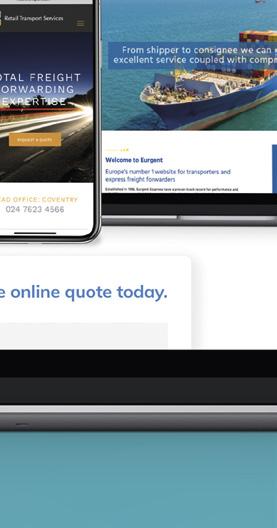


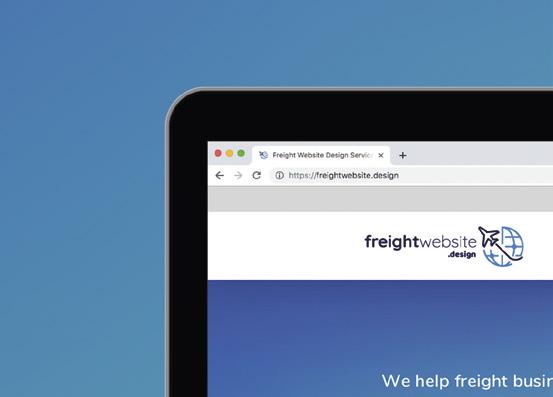
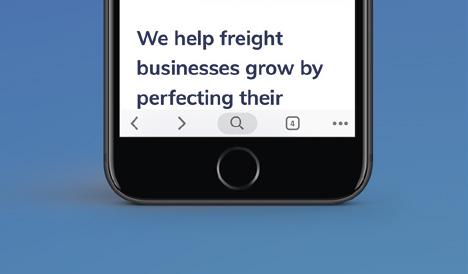
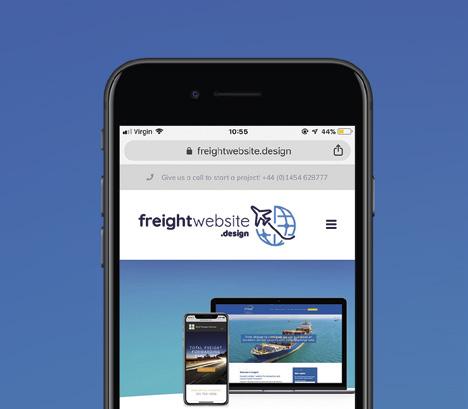
A social media app that is also an e-commerce and payment platform is potentially the future of both retail and communications, all rolled into one. If the project goes according to plan, then we are all likely to be both chatting and shopping on X before very long. At least, that’s Musk’s gamble.
However, its perhaps portentous that Musk is calling messages sent on the new platform “Xs”, rather than “Tweets”. Users may soon choose to be “exes” – previous Twitter users who have moved on to new rival apps, such as Meta’s Threads, in protest against the wholesale dismantling of their favourite messaging site.
The latest moves towards a new “everything” app include changing the name of the business to X Corp and dropping the familiar blue bird logo in favour of a white “X” on a black background.



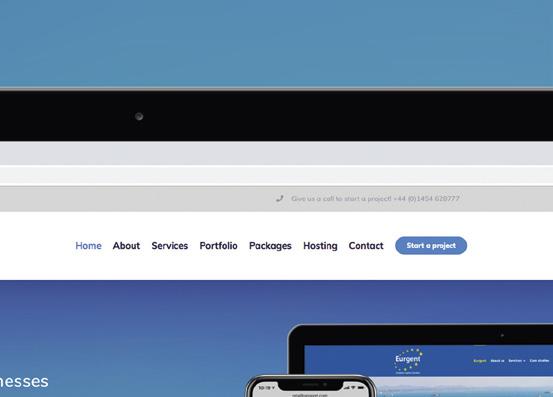


The main reason (albeit reluctantly) Musk paid around $44bn for the loss-making business is to emulate the super-apps that have taken Asia by storm. These include China’s WeChat and Moj, and India’s PayTM, Indonesia’s Golek and Singapore’s Grab. Using these apps, people can shop online, order tickets, book a ride, make a cashless payment and
We believe that X will now begin to transform rapidly into a broader super-app. That could be good news for British shoppers who choose to remain on the platform and want to see broader tie-ins between their interests and activities and information about new products and services. It could also represent new opportunities for UK SME sellers, particularly those who are engaged in US marketplace sales as, initially, this is likely to be where most sales opportunities are focused.
However, even a super-social and sales app won’t be able to counter all the problems around US e-commerce. Currently, the main hurdle is US Customs duties and taxes. Most UK goods exported to the US that are valued at over $800 (the US import tax threshold) are still subject to tariffs of 0% to 37.5%, with the typical rate being 5.63%. ParcelHero’s USA page gives full details on Customs advice, sending food, prohibited items, etc.
Advertising: +44 (0)1454 628 795 tony@

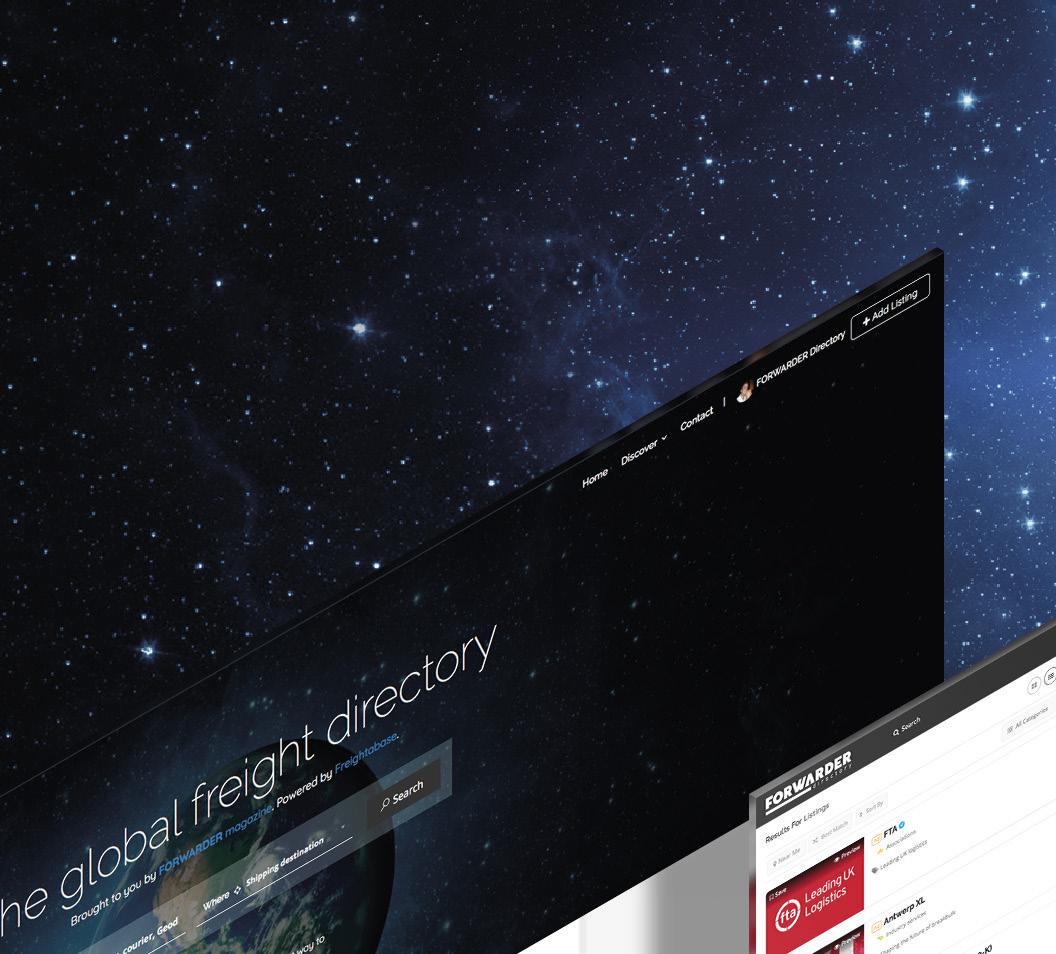





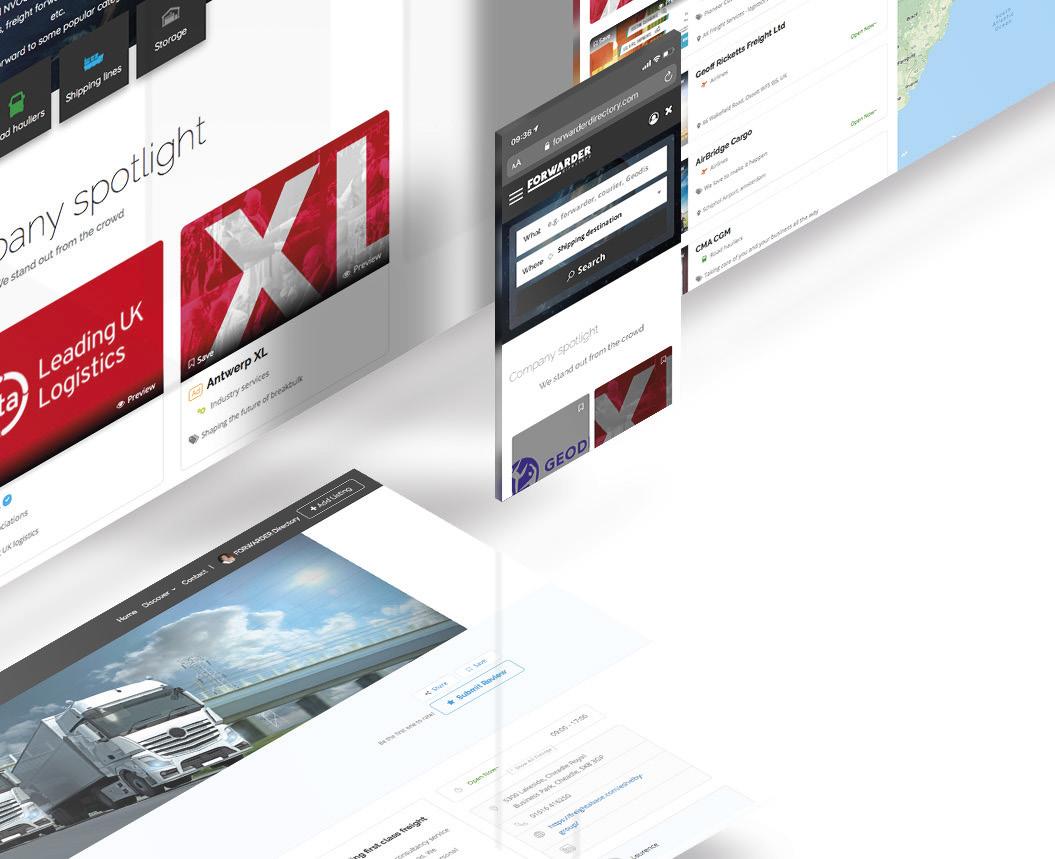
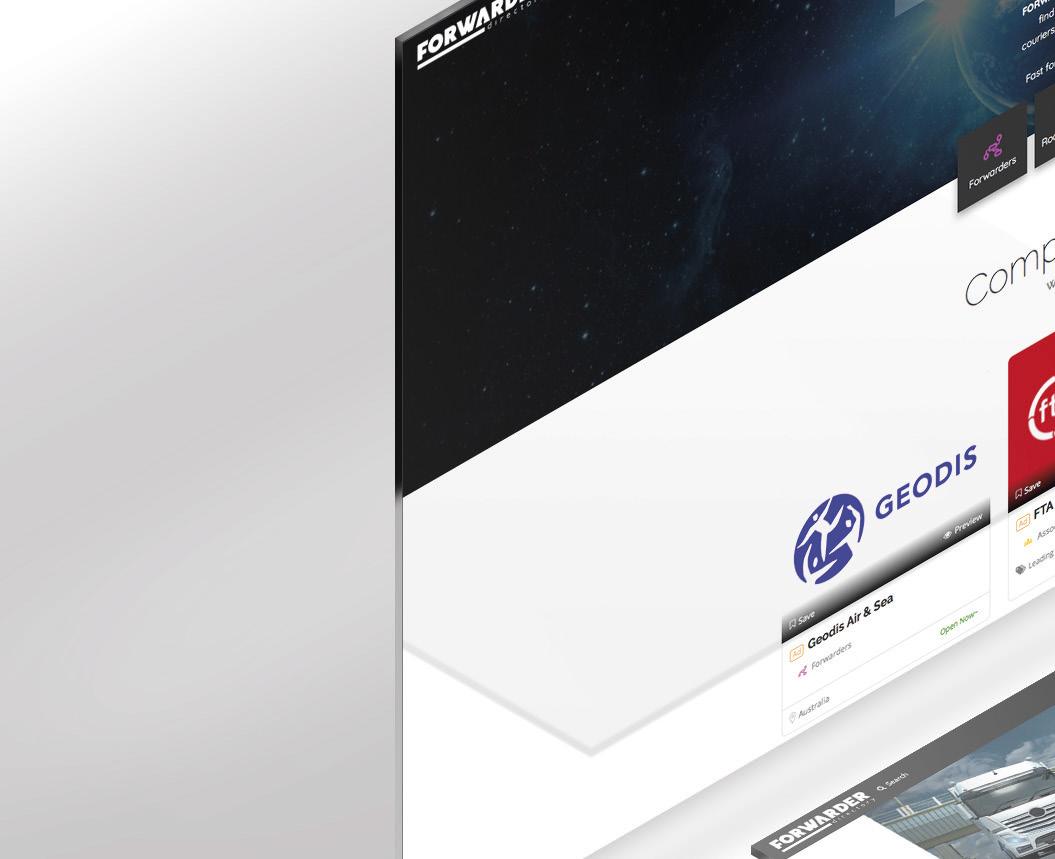
 FROM FORWARDER MAGAZINE POWERED BY FREIGHTABASE
FROM FORWARDER MAGAZINE POWERED BY FREIGHTABASE




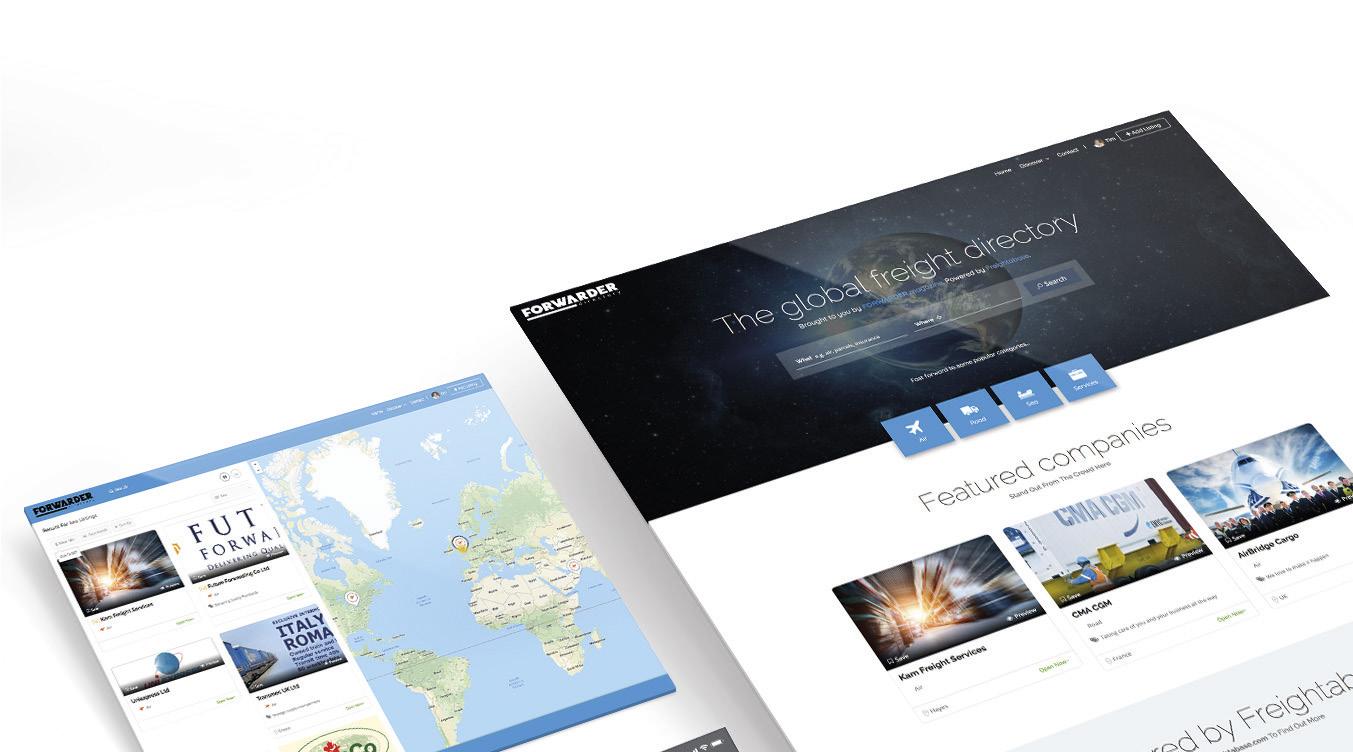


We know you're a generous, caring bunch in the freight world. Let us help you get your message out there...
Webfleet’s EV fleet management solution is helping delivery drivers at organic veg box company Riverford to overcome EV range anxiety, manage routes better and navigate efficiently to charge points.

The software is helping Riverford to track not only vehicle location but also battery health, remaining driving range and real-time energy consumption for their 65 electric delivery vans, navigating drivers to their nearest charge point when they’re running low.
The company has already electrified almost a third of its fleet and is on track to become a 100 per cent final mile electric delivery fleet by 2025.
James Welton, Fleet Manager at Riverford said: Riverford has always had sustainability at its heart, and the health of people and planet is a top priority for us. With Webfleet, we’re putting this into action by helping to take the stress out of anticipating charging needs for our drivers.
Webfleet’s integral OptiDrive functionality also gives drivers direct feedback on speed, steering and braking before, during and after their trip, helping them to drive more safely and efficiently.
We find OptiDrive really useful as it gives us a clearly illustrated breakdown of our drivers’ performance, so we can offer specific coaching and support where it is needed, explained James.
A Mantis live camera system is integrated with the Webfleet platform, giving Riverford the vehicle and video data they need in one convenient dashboard.
The Mantis evidence centre gives us easy access to important video footage, enabling us to constantly review and improve safety for our drivers, added James.
Telematics specialists and Webfleet approved partner In Car Technology advised on both solution and installation.
We’ve built a bespoke infrastructure to help Riverford raise the bar in fleet safety, efficiency and compliance. The solution is already delivering on these business objectives in spades.
Andy Butt , installation manager, In Car TechnologyInnovation and a progressive mindset are vital for successful transport decarbonisation. Riverford have grasped the baton, bringing us another strong example of how data-driven mobility solutions can help us pivot towards a more sustainable future.
Beverley Wise, Regional Director for Bridgestone Mobility Solutions, WebfleetWebfleet’s open integration capabilities means the system is future proofed.
Looking ahead, it’s great to know that the system allows for integration of other solutions too, without us having to worry about switching to a new platform, James added.
Amajority (73%) of consumers want to live more sustainable lifestyles, particularly among those living in emerging Asian markets (87%), but inconvenience and high costs are cited as main stumbling blocks to the adoption of sustainable lifestyles, finds the latest independent research commissioned by Alibaba Group.
The research, titled 'The Sustainability Trends Report 2023', polled more than 14,000 consumers from 14 markets across Asia, Europe and the Middle East. It finds that convenience (53%) and affordability (33%) are critical for driving behavioural changes in consumer sustainability and businesses can make it easier for consumers to make sustainably conscious choices.
But consumers are cynical (38%) towards the underlying motivation of businesses’ 'sustainable' products, with only 15% saying that they completely trust claims around sustainability of products. Businesses need to work harder to build trust among those consumers, especially among people living in European markets.
'As a digital platform company, Alibaba is uniquely positioned and committed to addressing the ‘say-do’ gap challenge; by reducing the inconvenience obstacle, adding more sustainable choices, and optimising supply chains to keep costs reasonable for consumers. Sustainable consumption is crucial for the environment, and in the meantime it provides a great opportunity for businesses, as well as the digital economy as a whole, to have a long-lasting development into a sustainable future for all,' said Liu Wei, Alibaba Group ESG Strategy Lead.
Alibaba published its latest Environmental, Social and Governance (ESG) Report in late July where for the first time it disclosed its Scope 3+ decarbonisation progress since it pioneered the concept in 2021 for a wider pledge of carbon emission reduction across its ecosystem.
Alibaba’s carbon ledger platform has seen a total number of 187 million consumers participating in carbon emission reduction activities in the 12 months leading to March 31, 2023 with 1.91 million products from 409 brands offered on Tmall and Taobao through its low-carbon friendly products programme as of March 2023, its latest ESG report revealed.

Consumers from the emerging Asian markets are the most willing to learn how to make more sustainable purchase online
Consumers globally are embracing more sustainable lifestyles, but there are variations across regions in the level of engagement and how they want to live and shop more sustainably.
The research finds around three in four consumers (76%) would welcome more information about how to be more sustainable. The proportion is highest in the Philippines (93%), Indonesia (91%), and UAE (90%).
Over half (58%) of consumers say they’ve already engaged with sustainable practices and they feel they are already personally doing a great deal. There’s also a general openness towards learning about sustainable online practices, with an average of 73% saying that they would welcome more information about how to make purchases online that are more sustainable.
Respondents from emerging Asian markets (88%) show higher willingness to learn how they can make purchases online that are more sustainable compared with developed Asian markets (66%) and Europe (66%). The sustainable online shopping behaviours also differ across regions, with emerging Asian markets (47%) more inclined to choosing sustainable packaging whereas those in Europe (47%) tend to recycle more.
Half of the consumers would only go sustainable if it’s convenient; with a third believing sustainability is not affordable.
Lack of information about how products are sustainable (48%) and the prices of sustainable products being too high (45%) are cited as the main barriers for consumers to make more sustainable purchases.
Over half of the consumers (53%) surveyed say they would only make sustainable choices if they were convenient, which is especially the case in Asian markets (61%) compared to European markets (36%). A third (33%) say living sustainably is not affordable, with Thailand (84%) leading the pack, followed by UAE (41%) and Spain (37%).
Amid the shifting consumer sentiment, businesses can play a significant role in making it easier for consumers to make sustainable conscious choices, the report finds. Making sustainable products more affordable (61%), making fewer products using single-use plastics and packaging (55%) and a wider selection of sustainable products and services (47%) are the top three ways consumers say businesses can do to promote consumer sustainability.
But businesses need to work harder to build trust among consumers on their sustainability claims, especially among those living in European markets, said the research. 23% of consumers say they 'do not trust very much' the claims around sustainability of products from businesses, with the highest proportion in France (31%), Spain (31%) Germany (30%) and the U.K. (30%).
Nearly two in five consumers (38%) are cynical towards the underlying motivations of businesses’ sustainable products, with Thailand (56%), France (48%) and Singapore (47%) as the top three markets where consumers say sustainable products are just a way for companies to sell their products at a higher price.
We believe companies can better earn trust from consumers by addressing their own ‘say-do’ gap, such as being more transparent and committed with their sustainability claims, and backing their sustainable practices with data. This will also lead to greater empathy towards consumers along our common journey of sustainability, Liu Wei added.
MAKE CHANGES TO TACKLE ENVIRONMENTAL ISSUES
7 IN 10 CONSUMERS ARE WILLING TO

CRAIG EDITOR-IN-CHIEF
GEMMA CONTRIBUTING EDITOR

PAUL MEDIA / EVENTS MANAGER






TONY SALES EXECUTIVE

TIM DESIGNER
MOHIT DIGITAL & SOCIAL
Thanks for reading. Perhaps we'll see you at our next FORWARDER event on 5 October, in Heathrow. Keep the website FORWARDER events bookmarked for details!
Also, thank you to Dionne at Europa for spilling the beans and contributing to the magazine. We love it when we get a chance to feature our friends in the industry on the front cover, so please get in touch if you would like to talk about joining them!
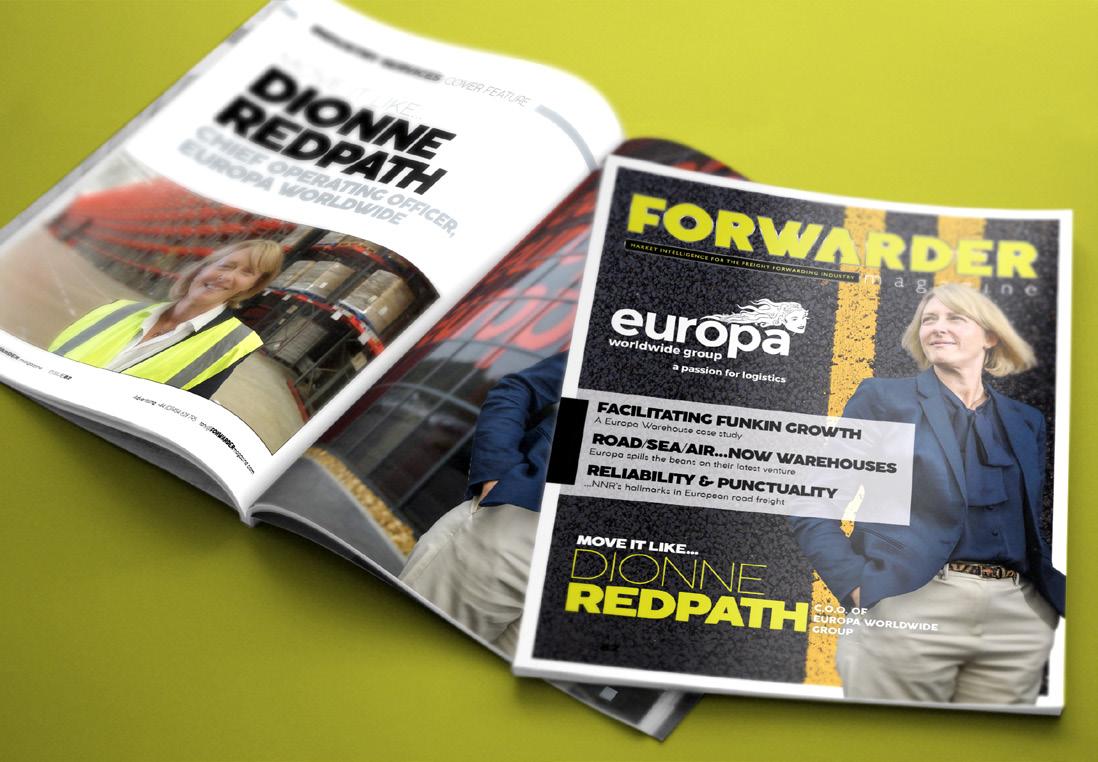
Please keep the great content flowing our way, and we’ll present it to the freight and logistics world, with love from FORWARDER
Tim
, Designer, FORWARDERWe're hosting our fourth industry event on 5 October. It's being held in the Windsor Heathrow area of London. Let us know if you would like to attend. Check it out using the QR code or at FORWARDER .events

We hope you like the new format and hopefully there will be a section that is of interest to you every month. Feel free to get involved! To re-iterate, the main sections are...
If you would like your editorial to feature in next month’s magazine, please contact our editor using the contact details to the right. If you would like to advertise in FORWARDER magazine , full details of our rates and technical specifications can be found in our media pack. Please email us for a copy.
FORWARDER magazine is free in the UK. Please email for a subscription form.
Please visit us online at forwardermagazine.com
When you’re finished with this magazine, please
